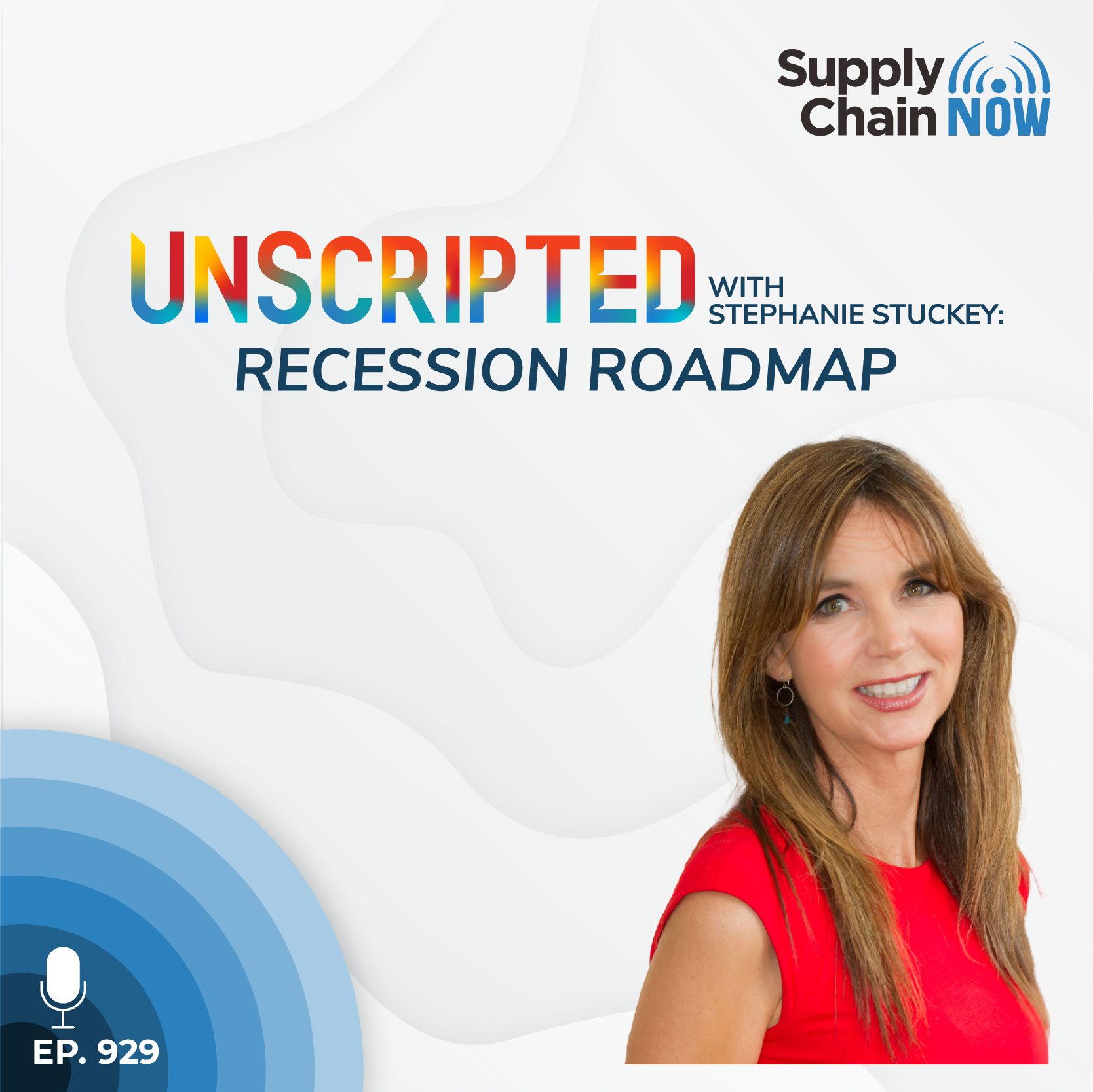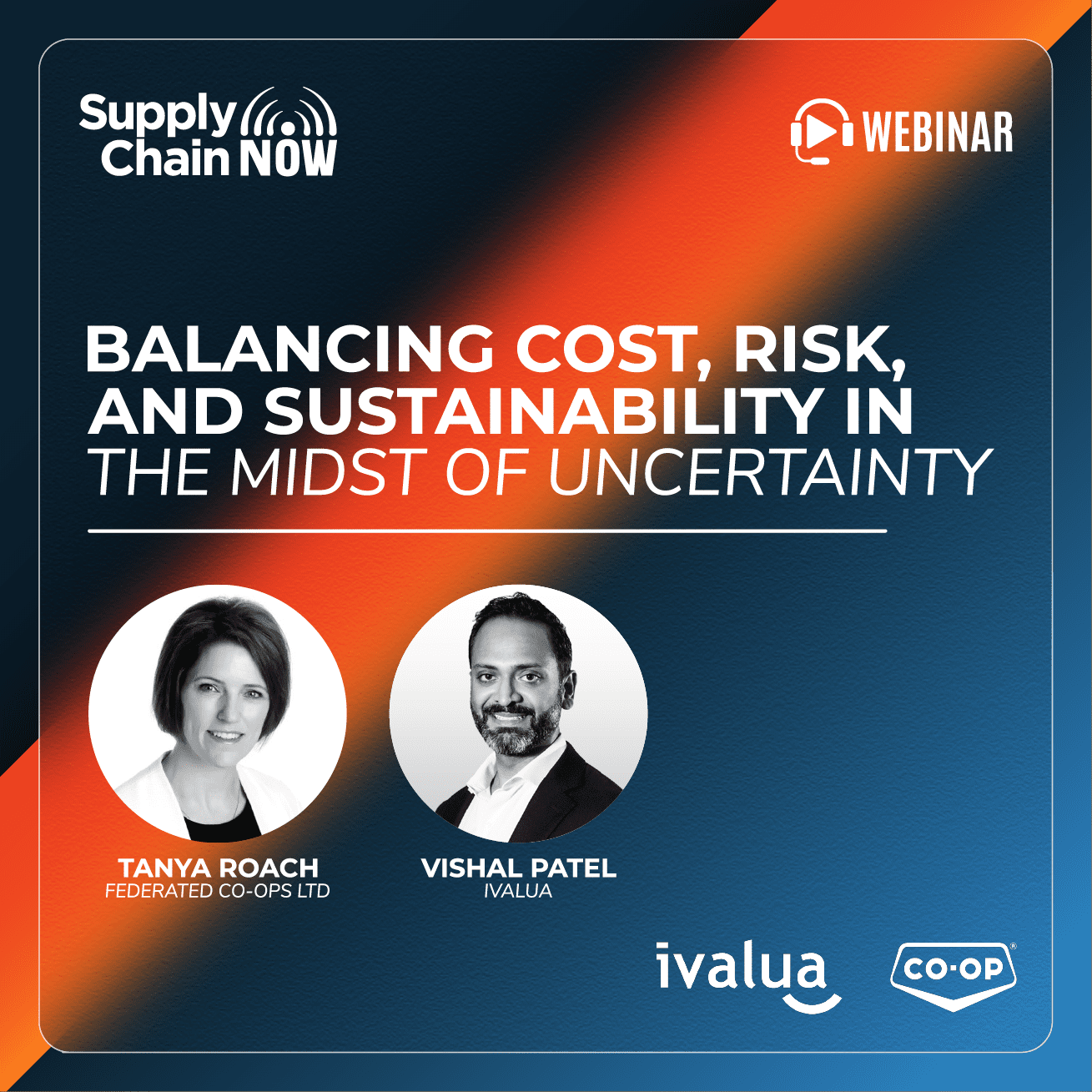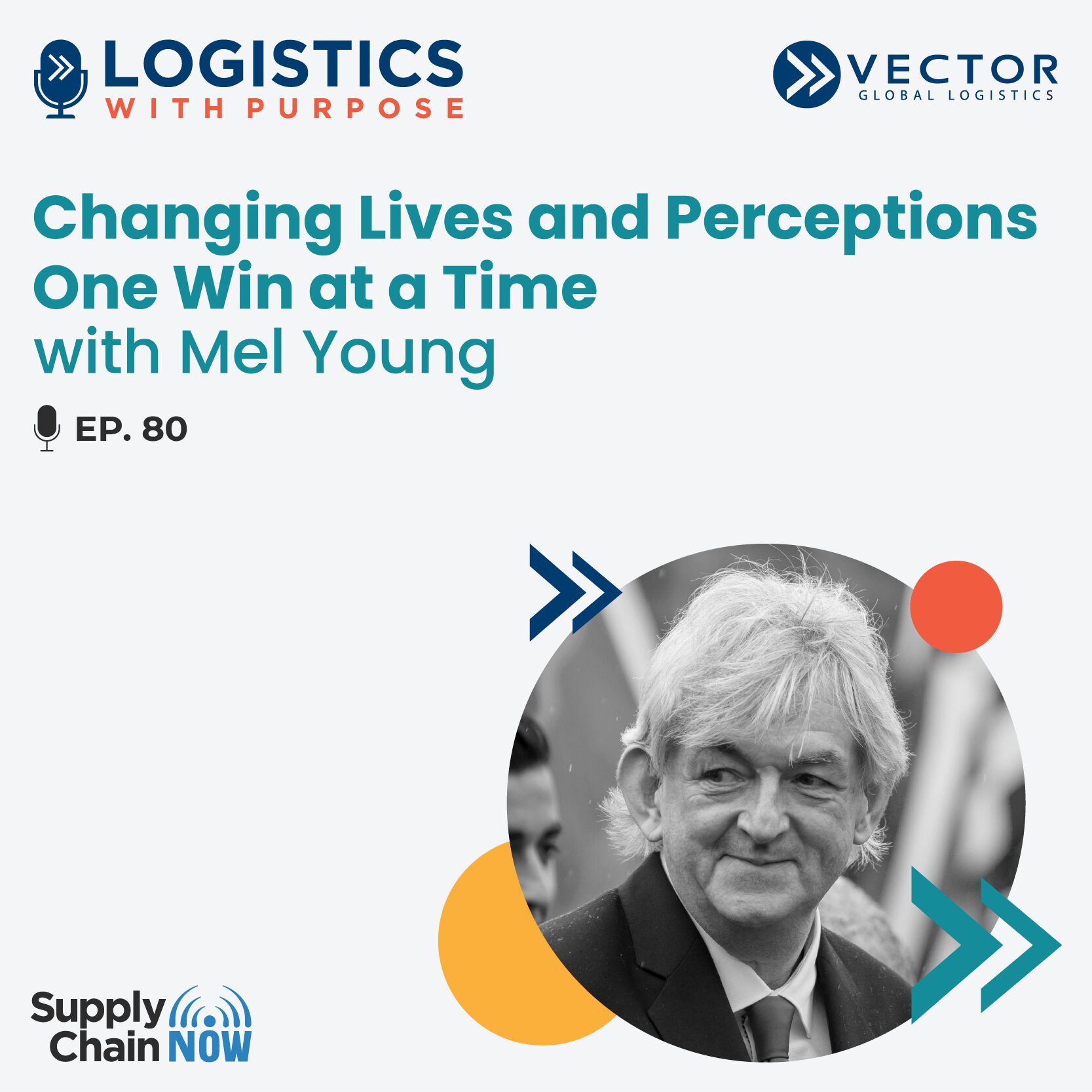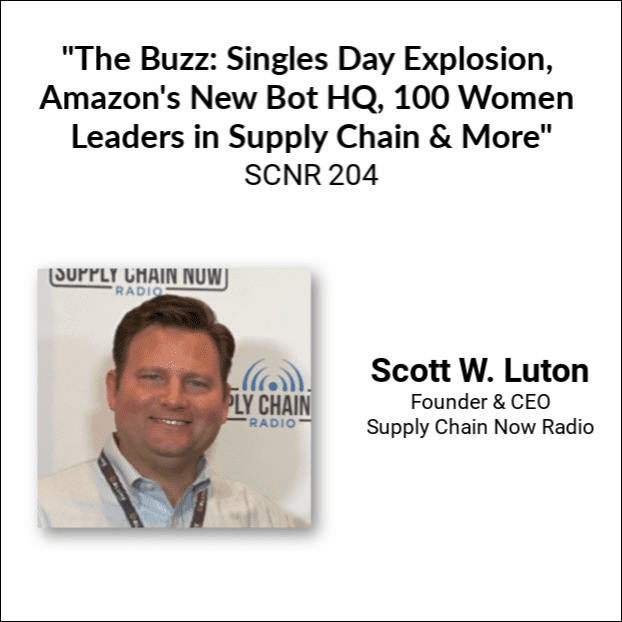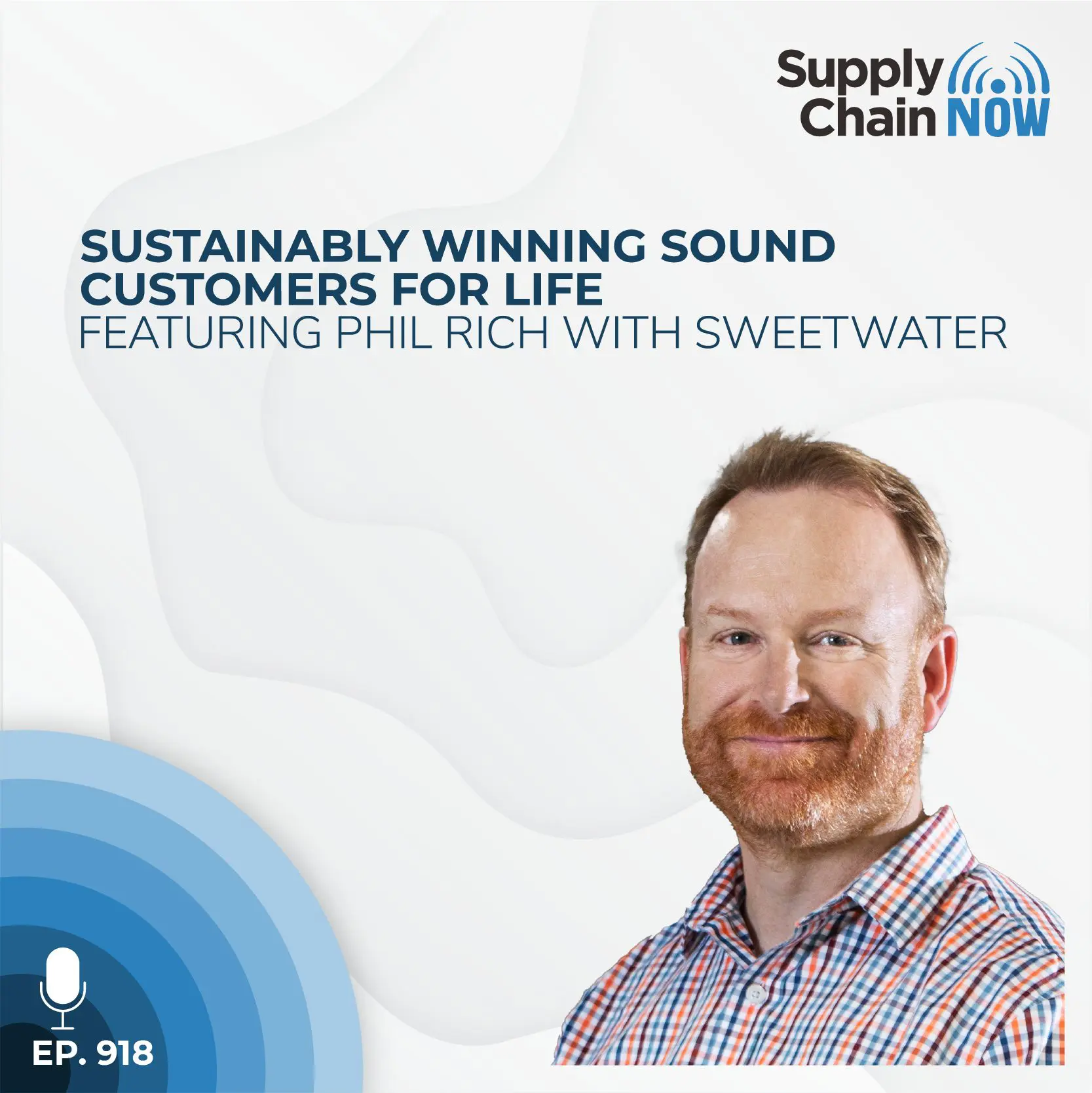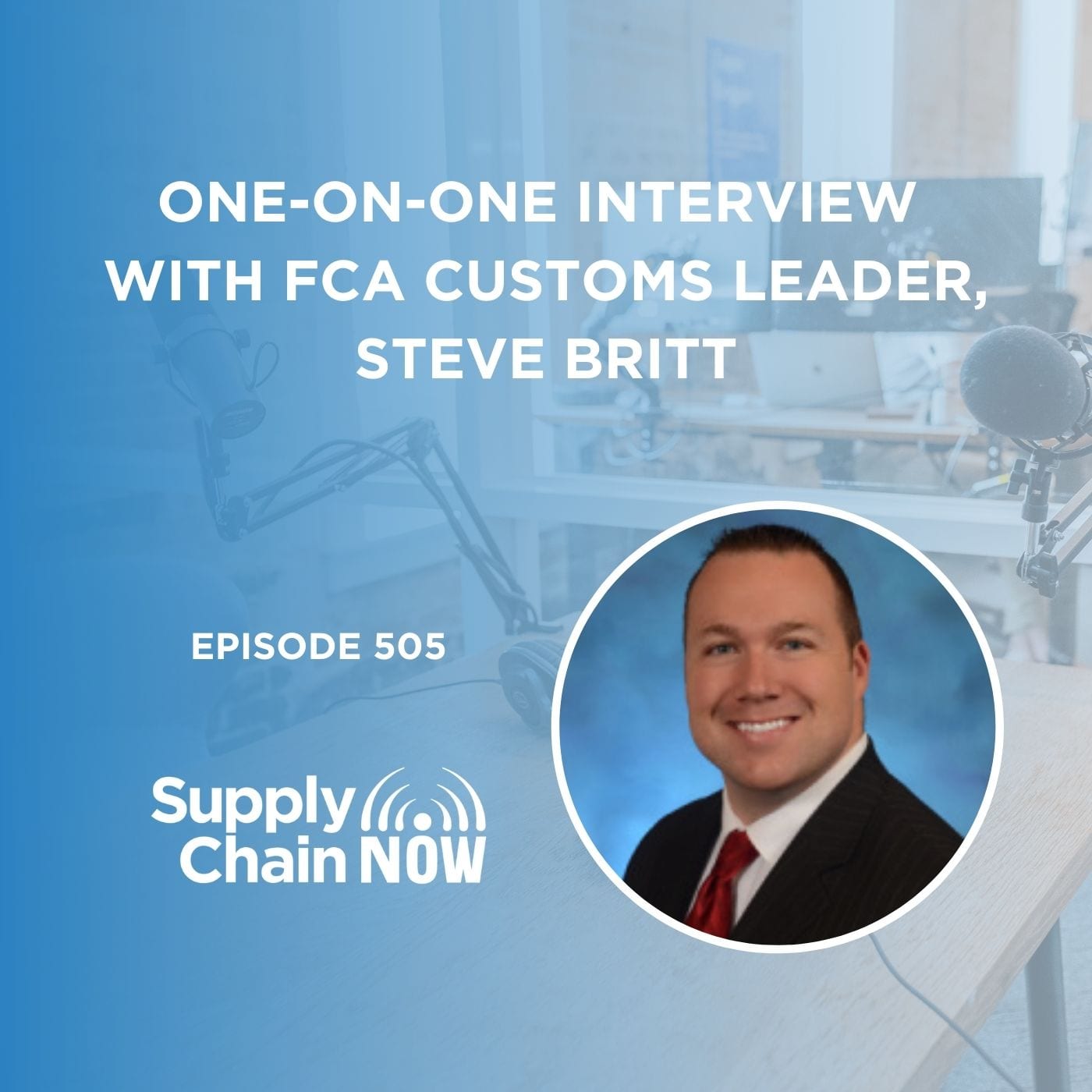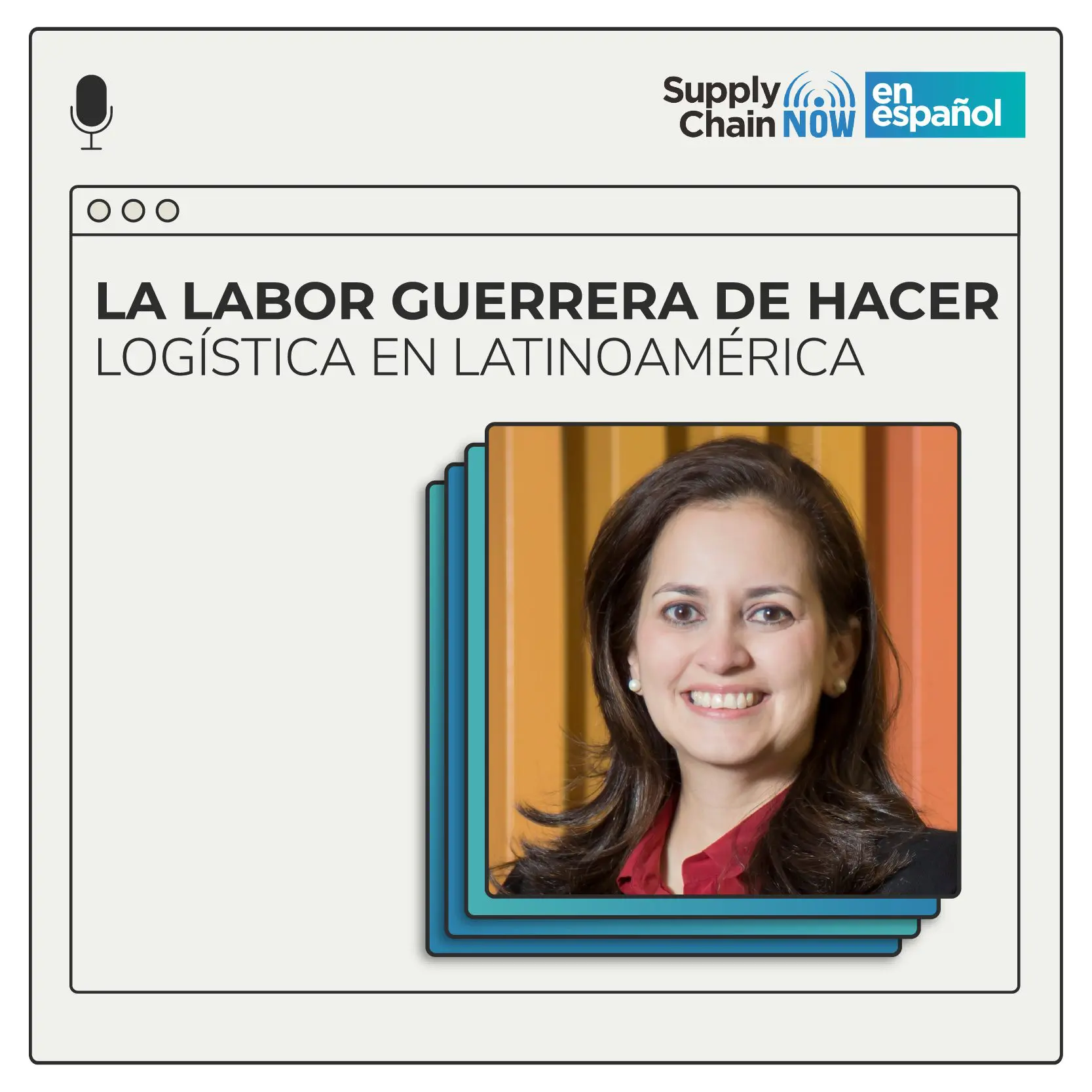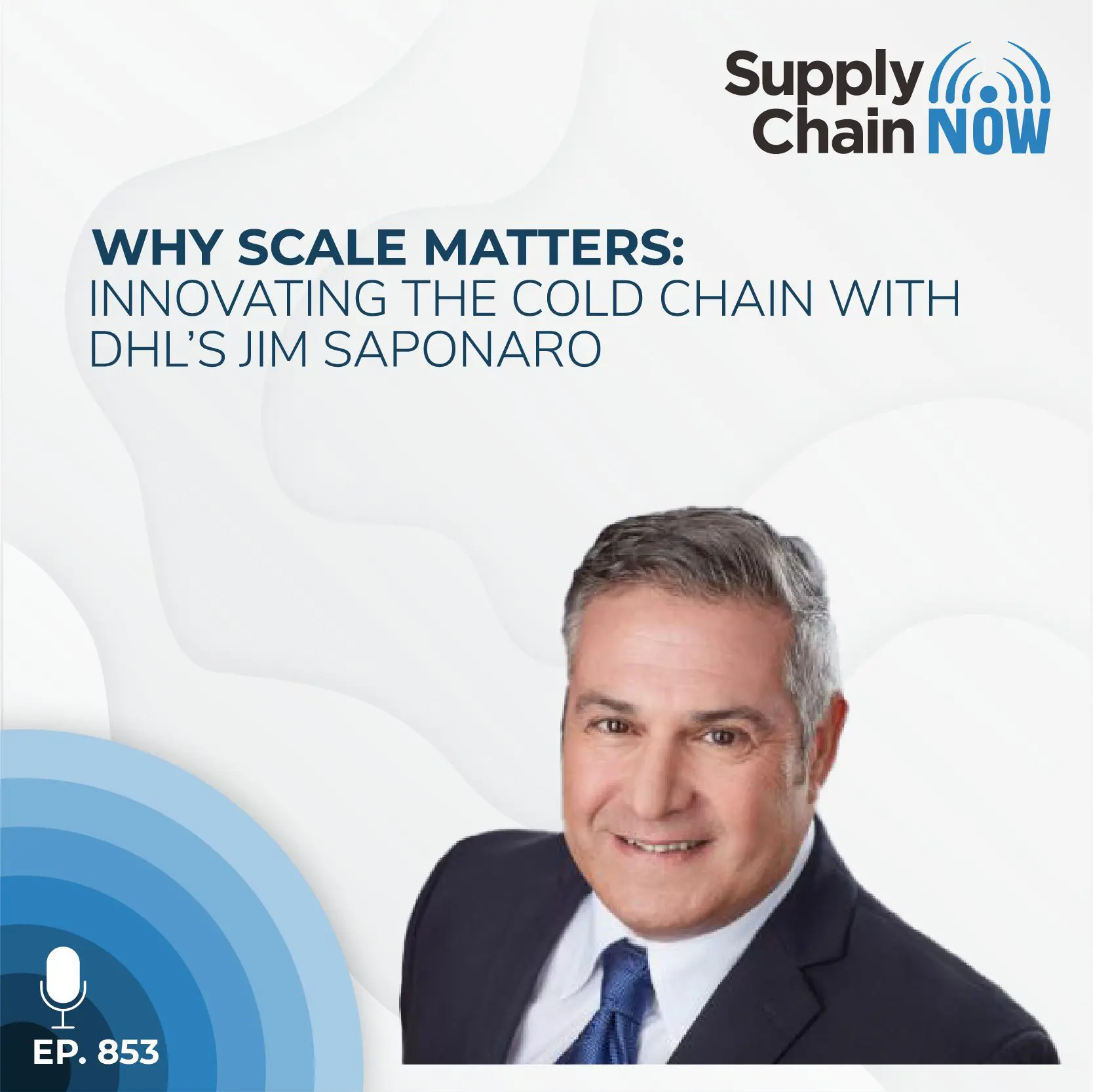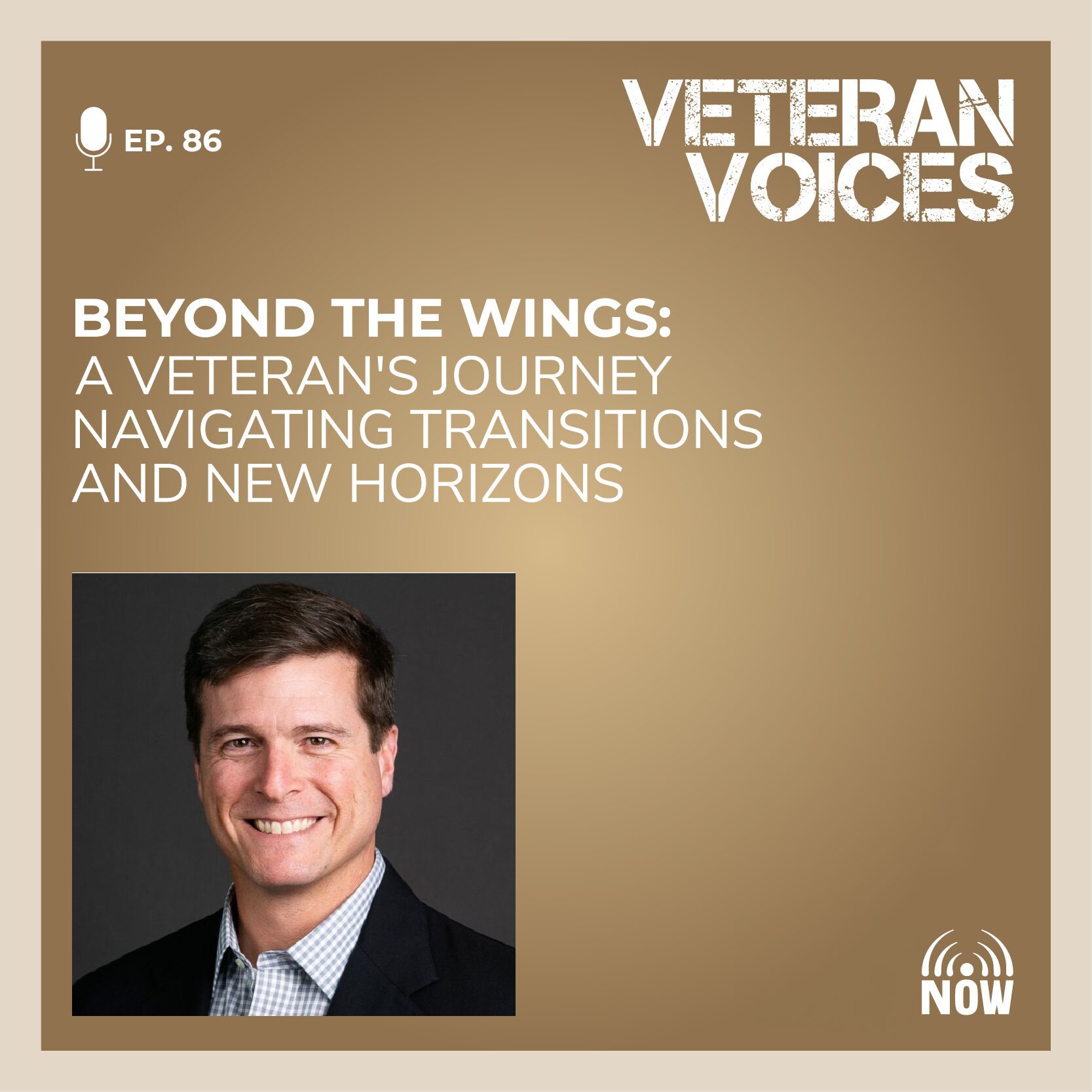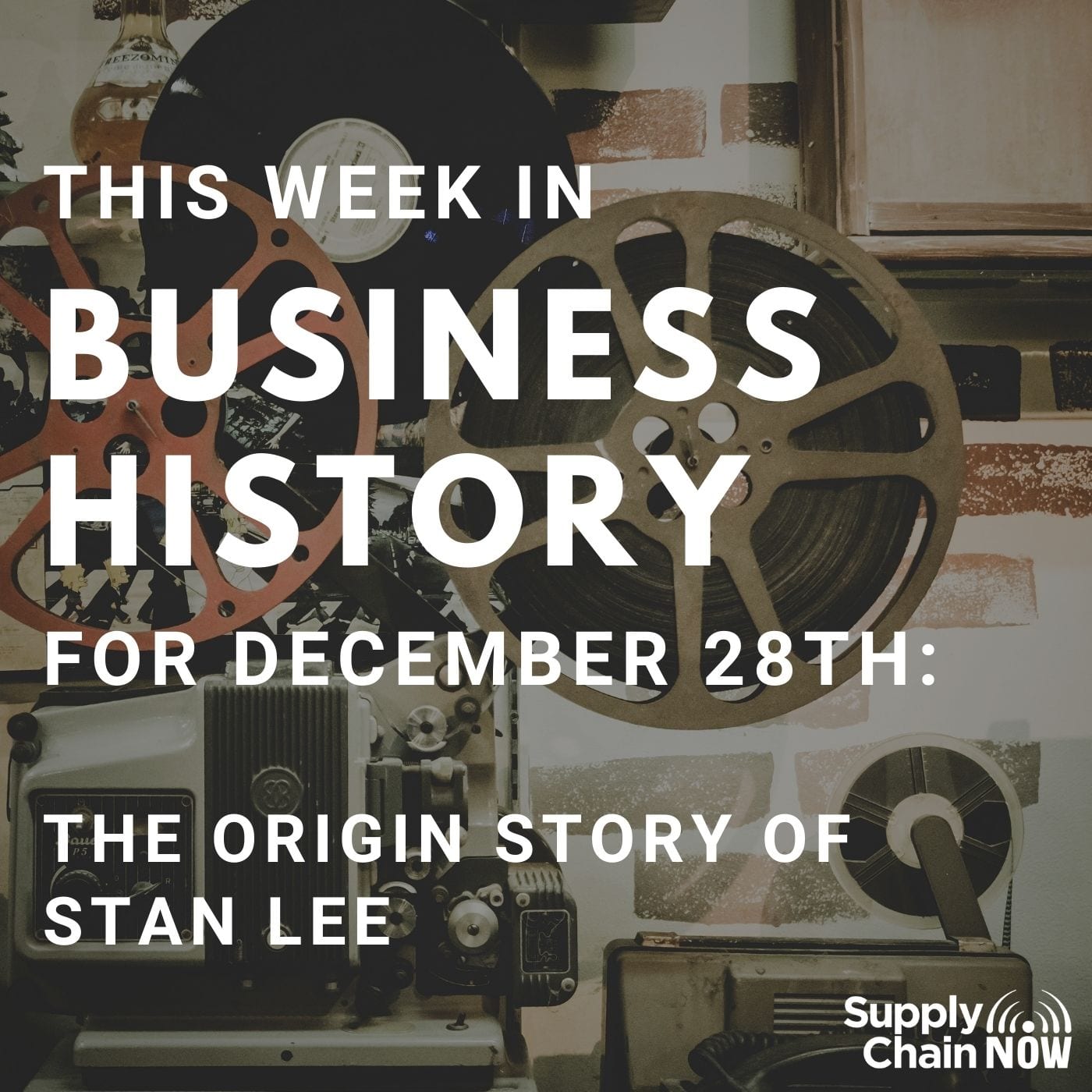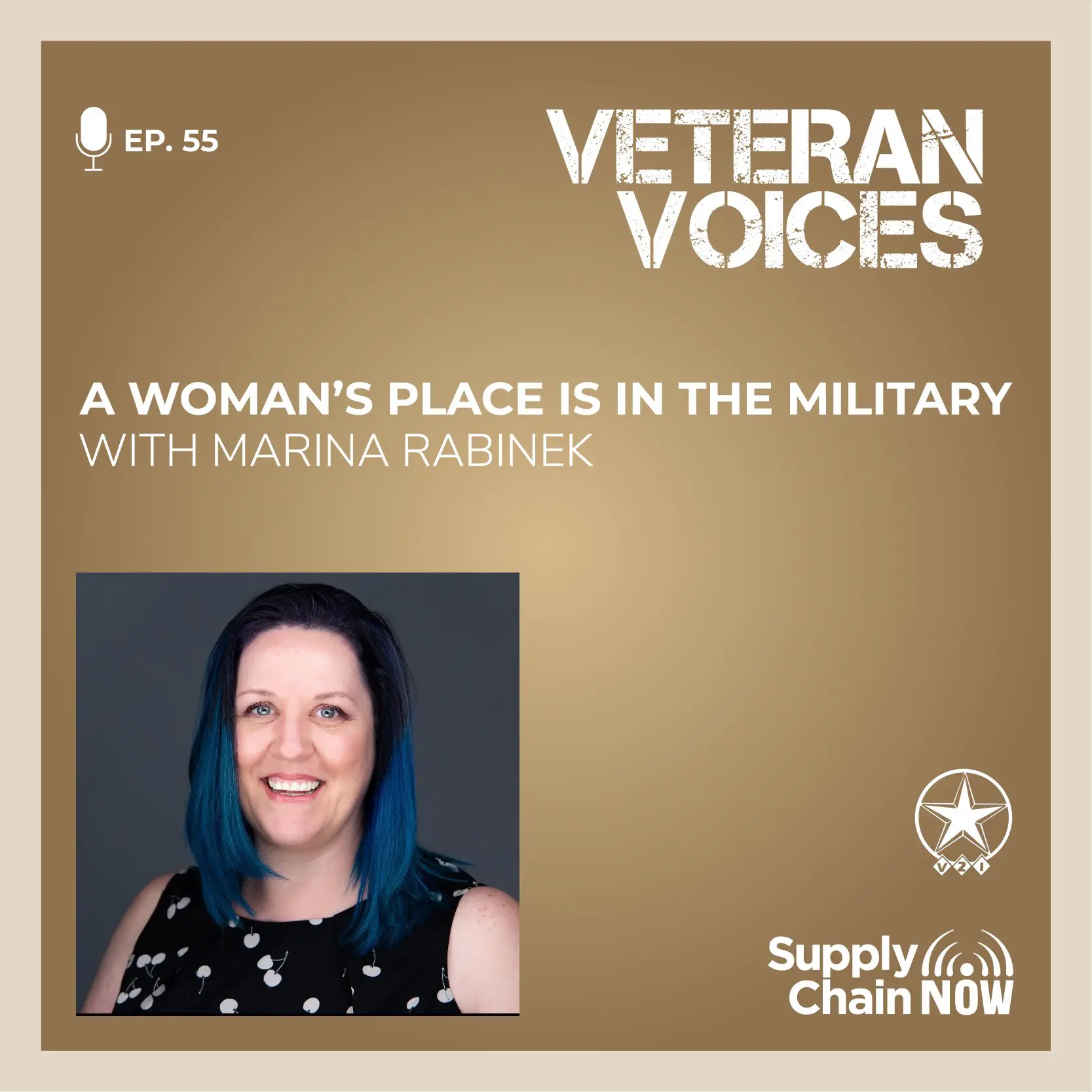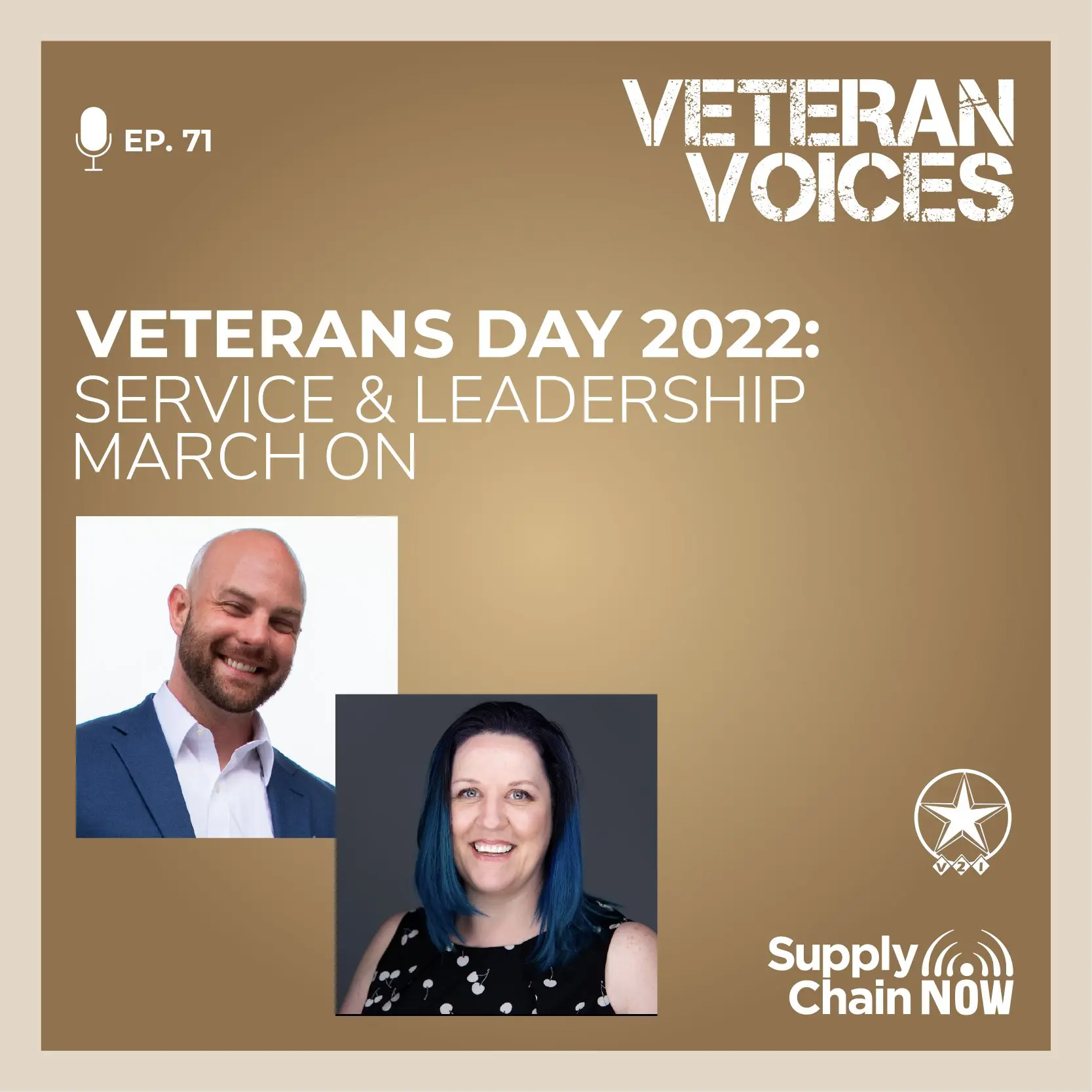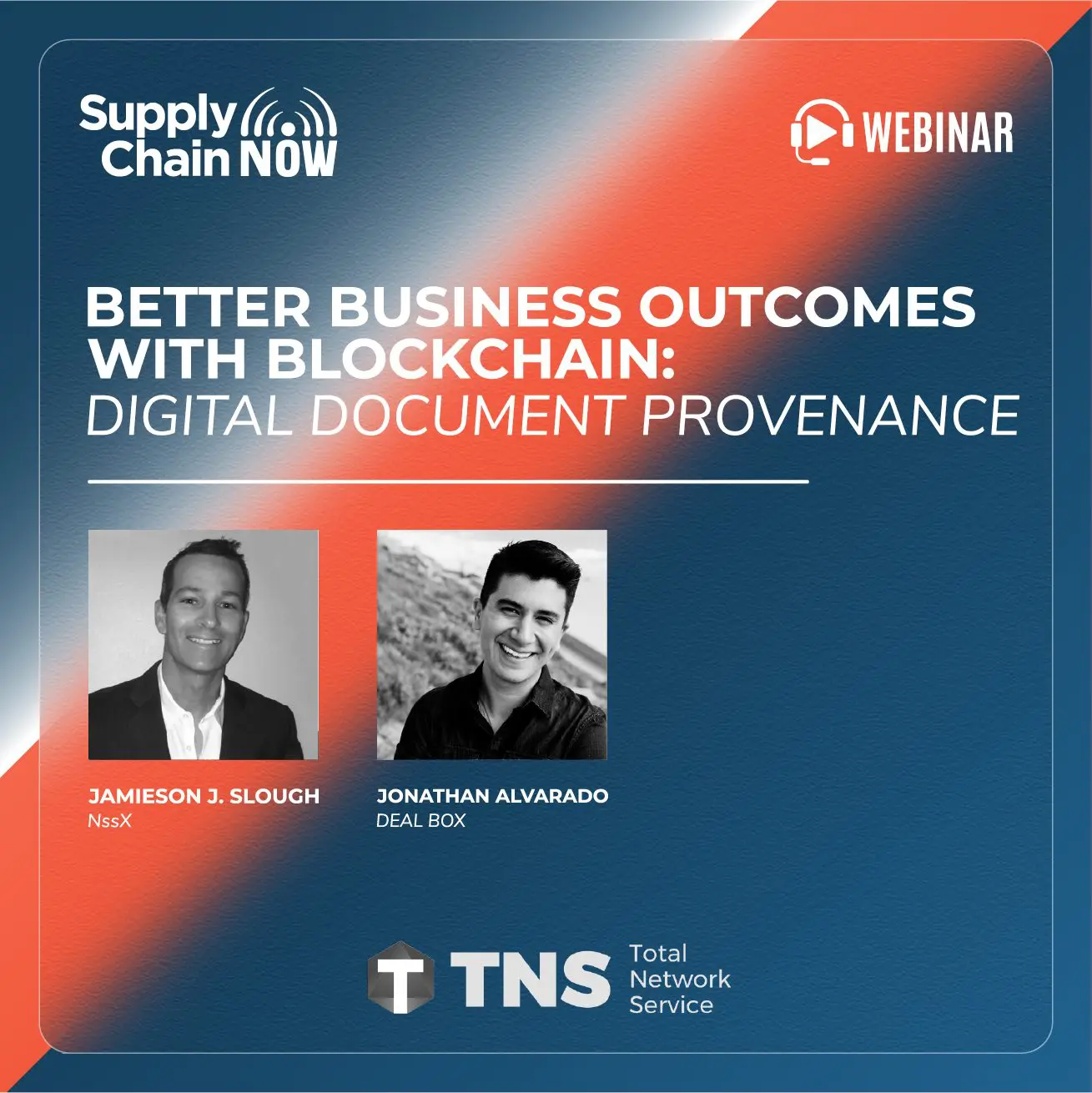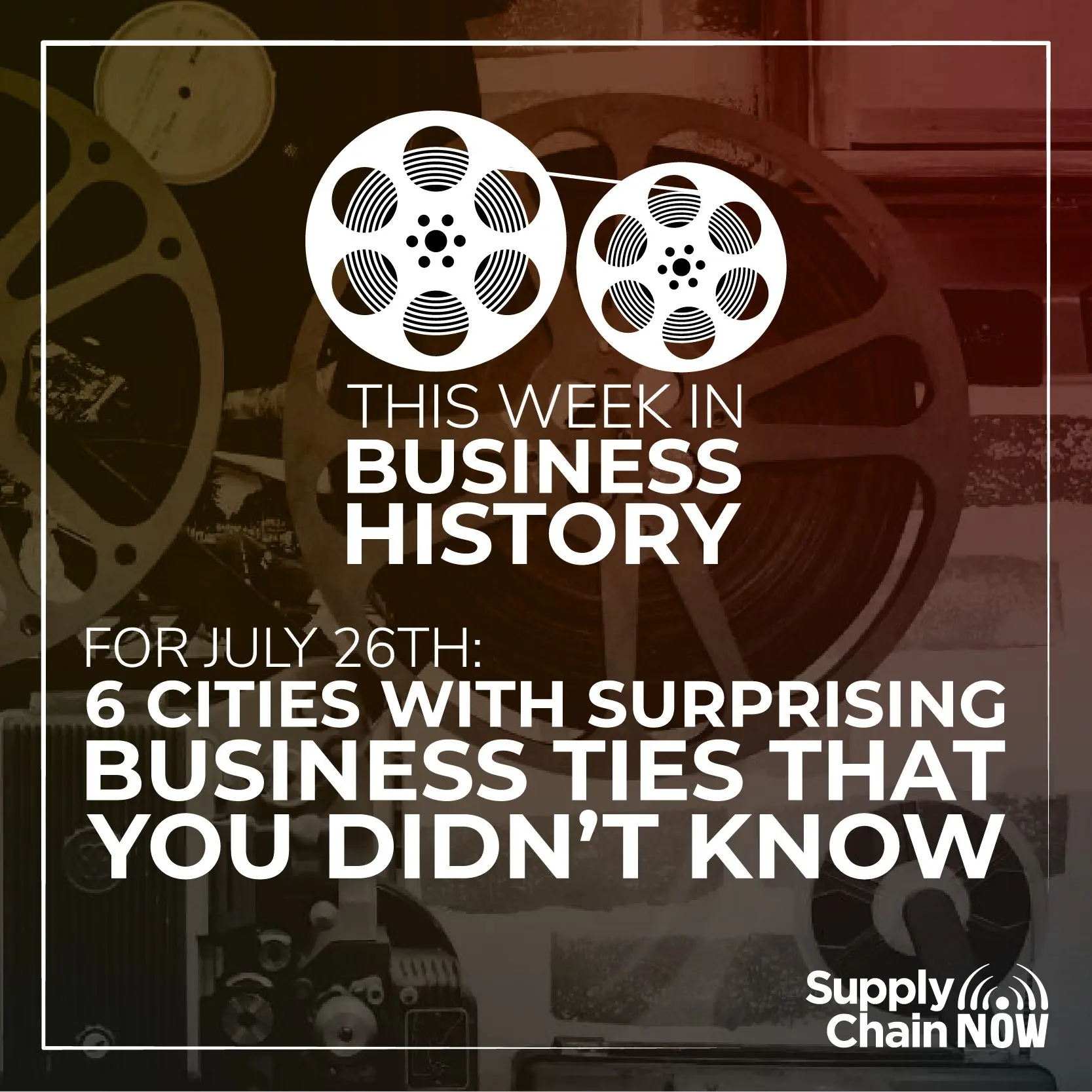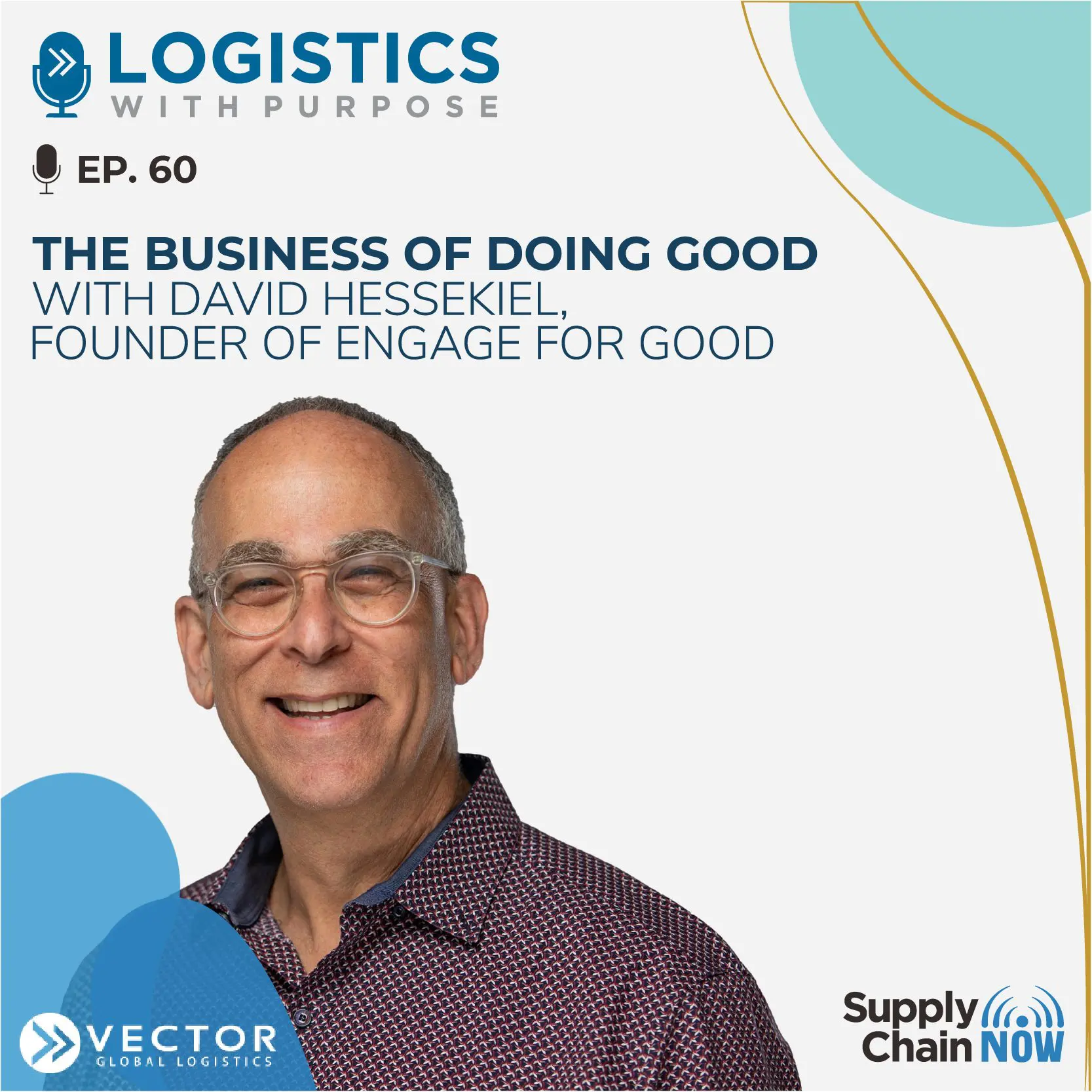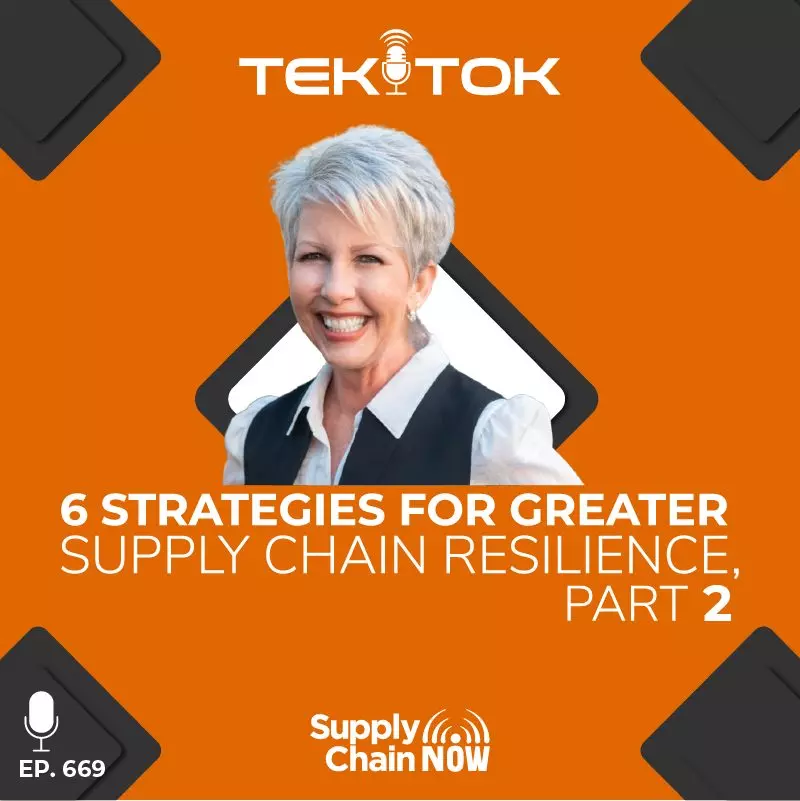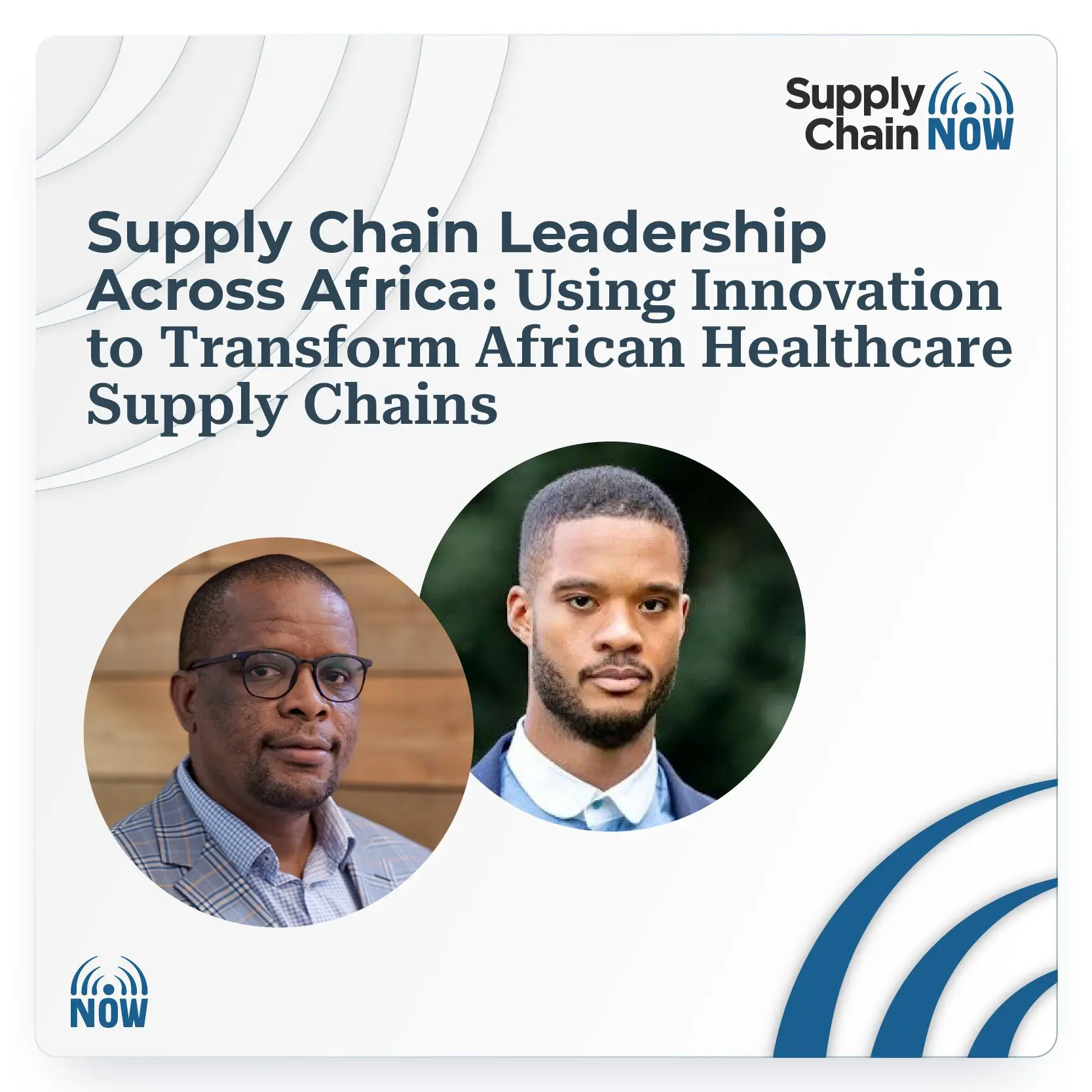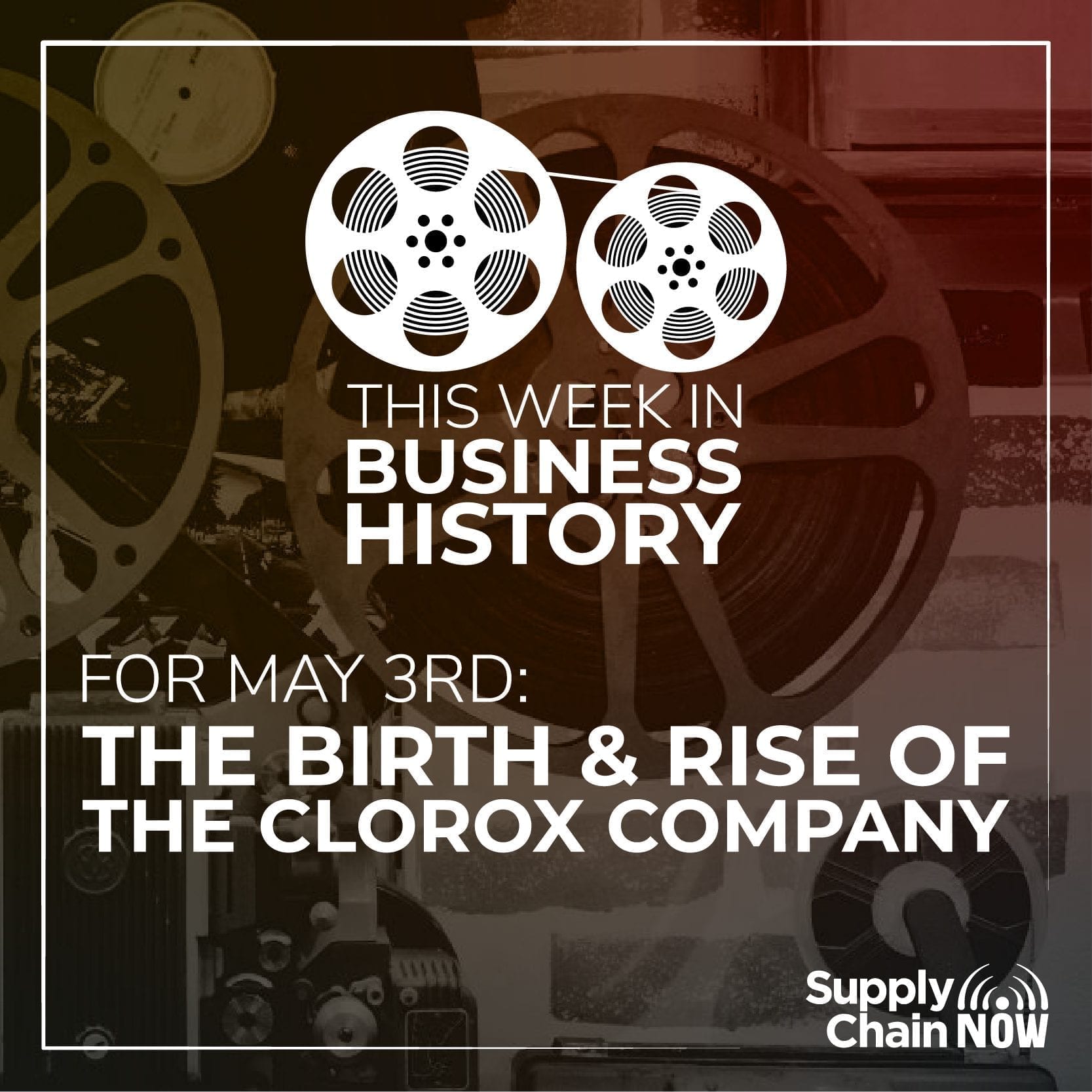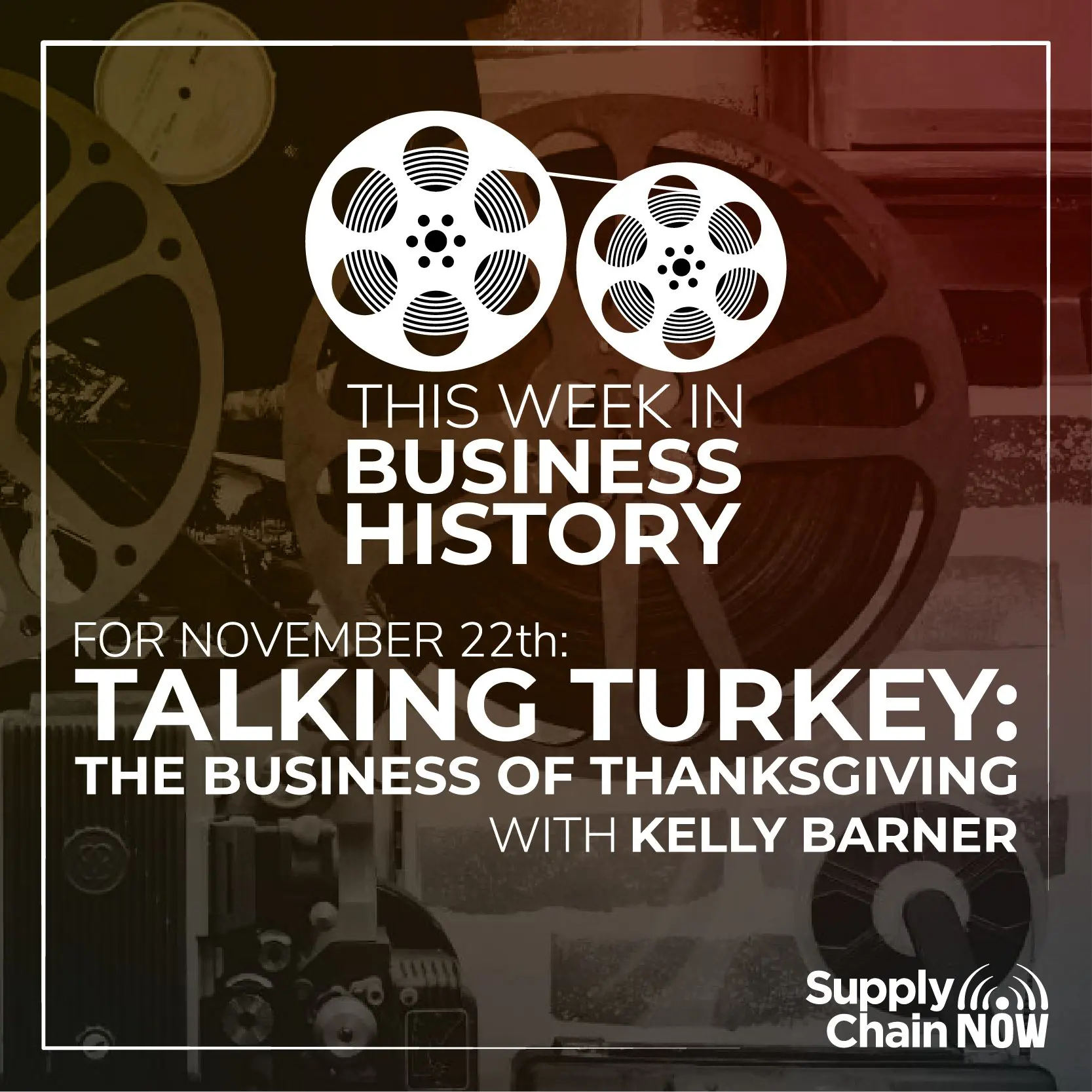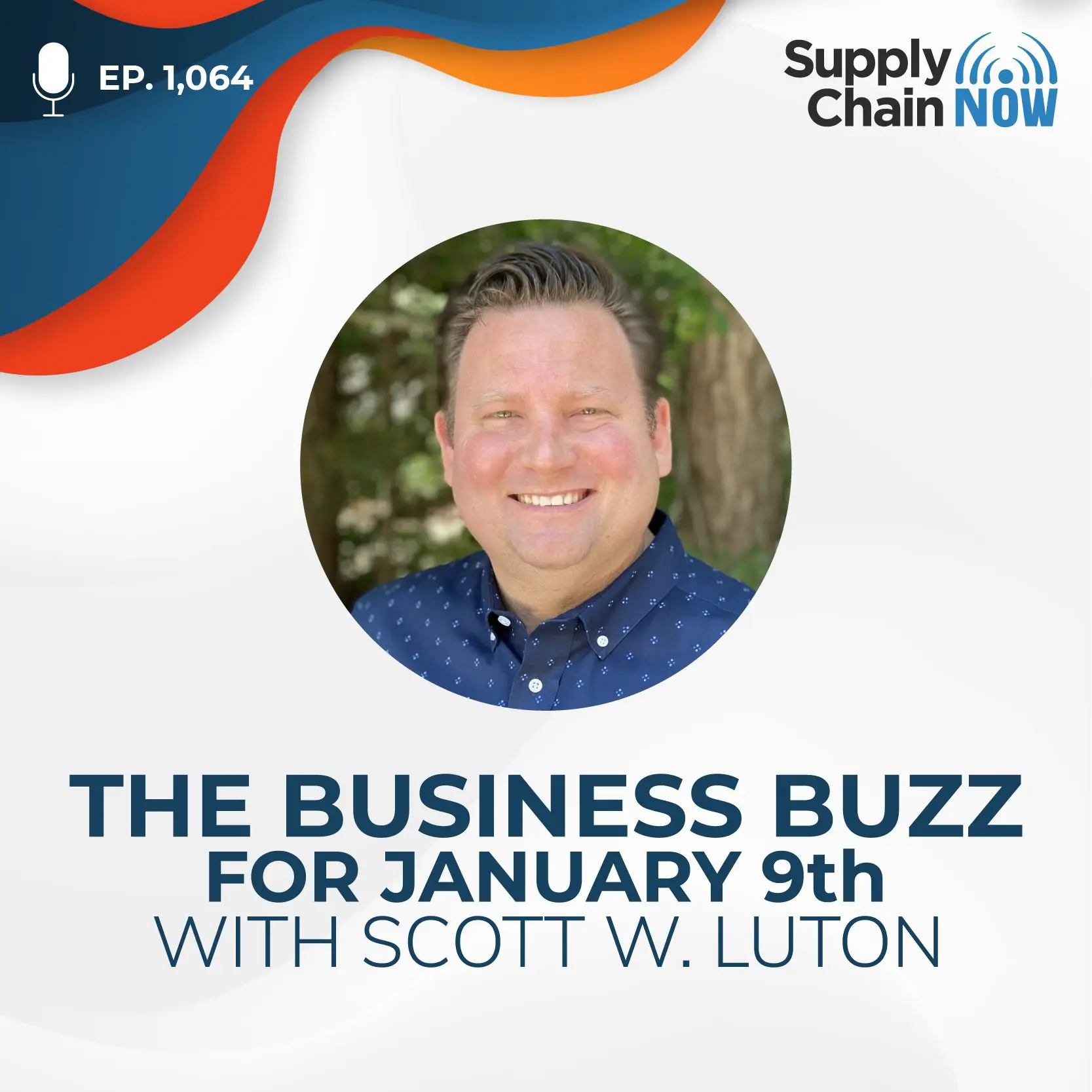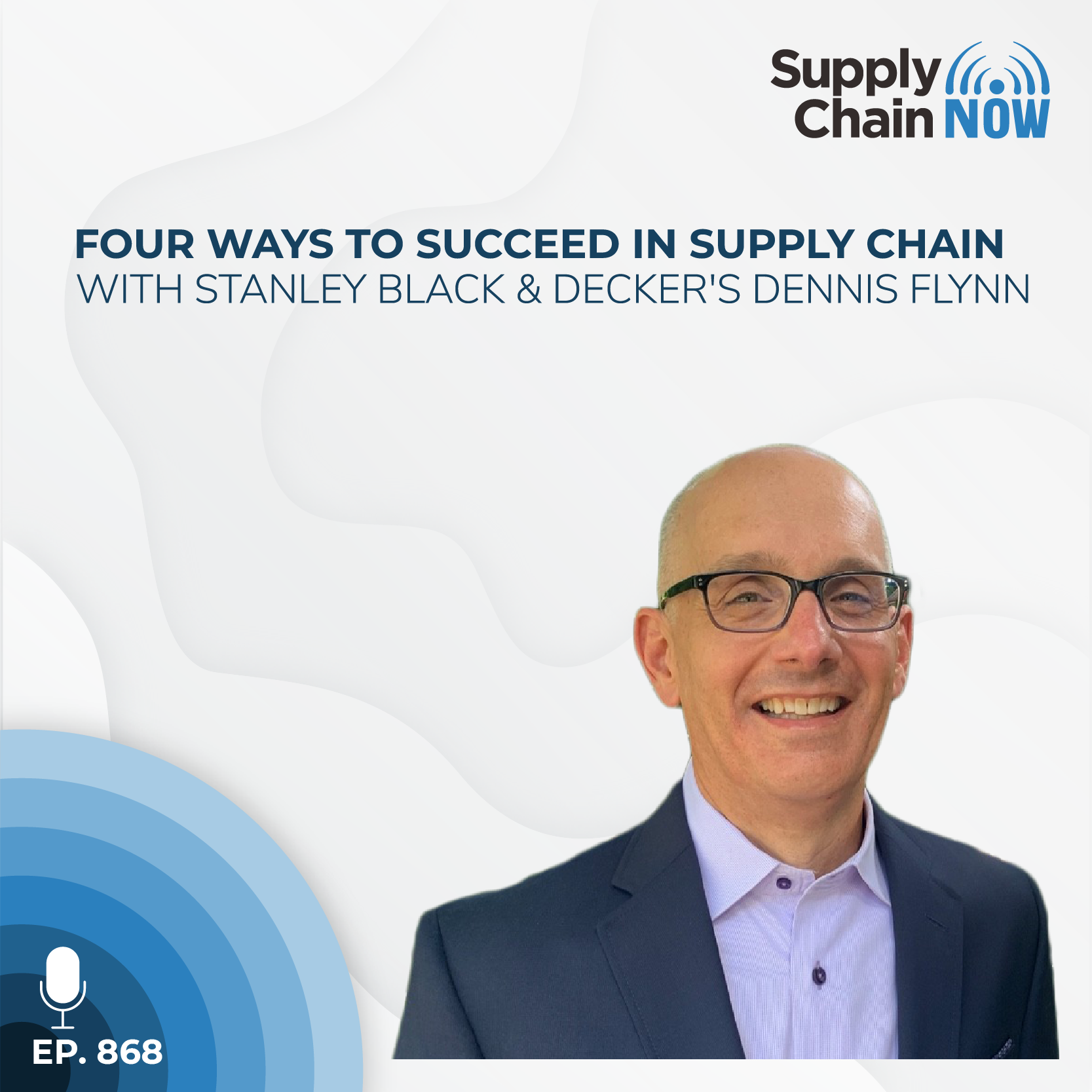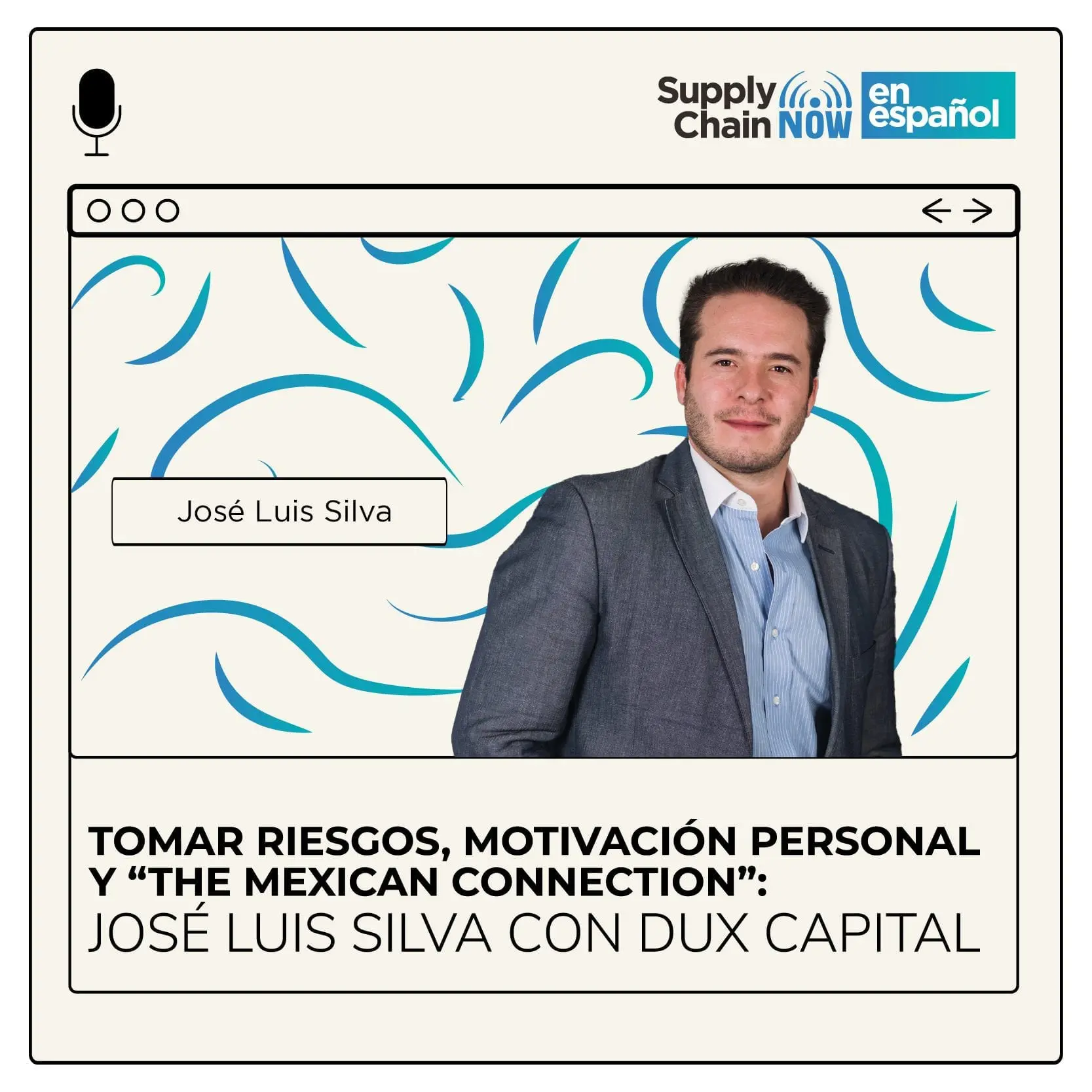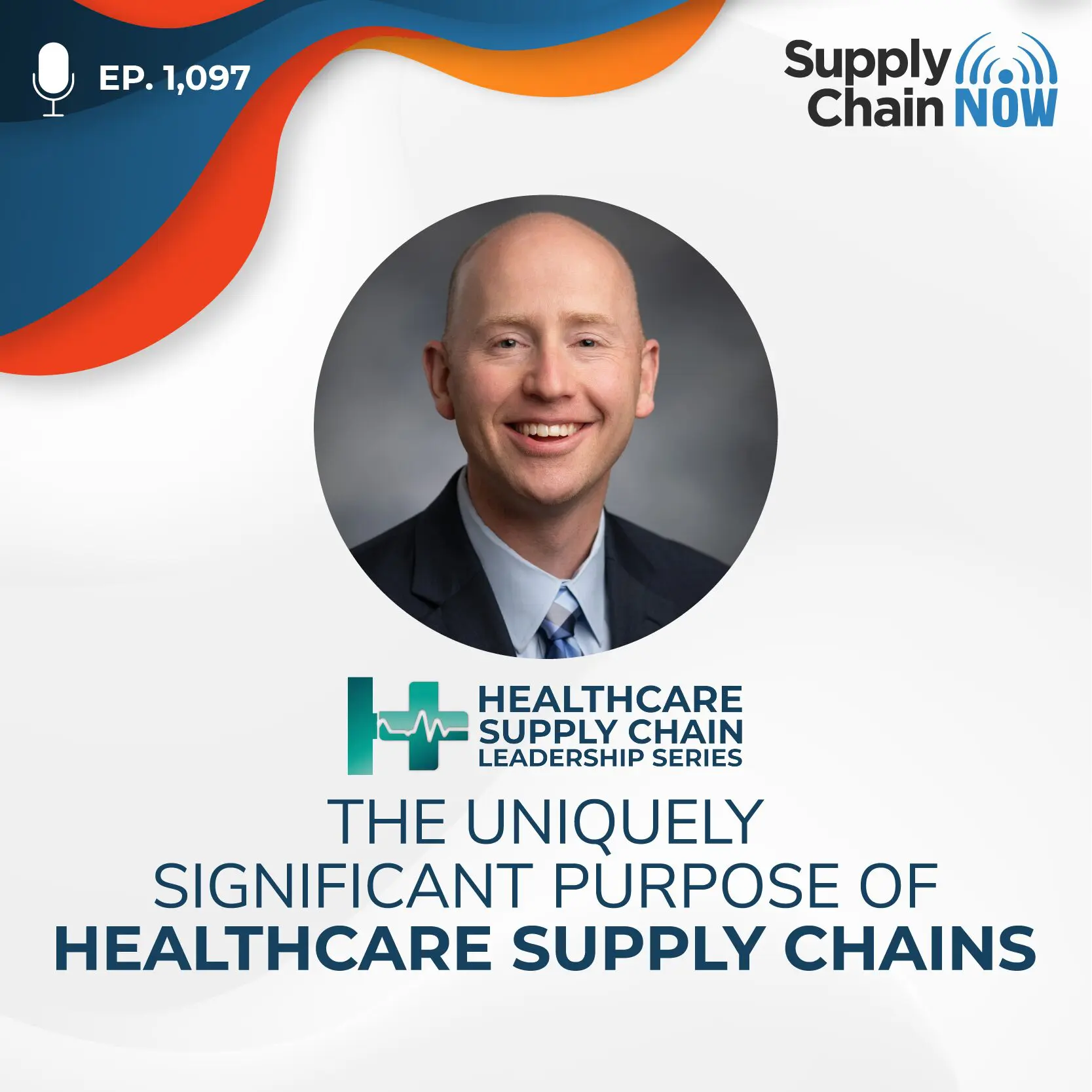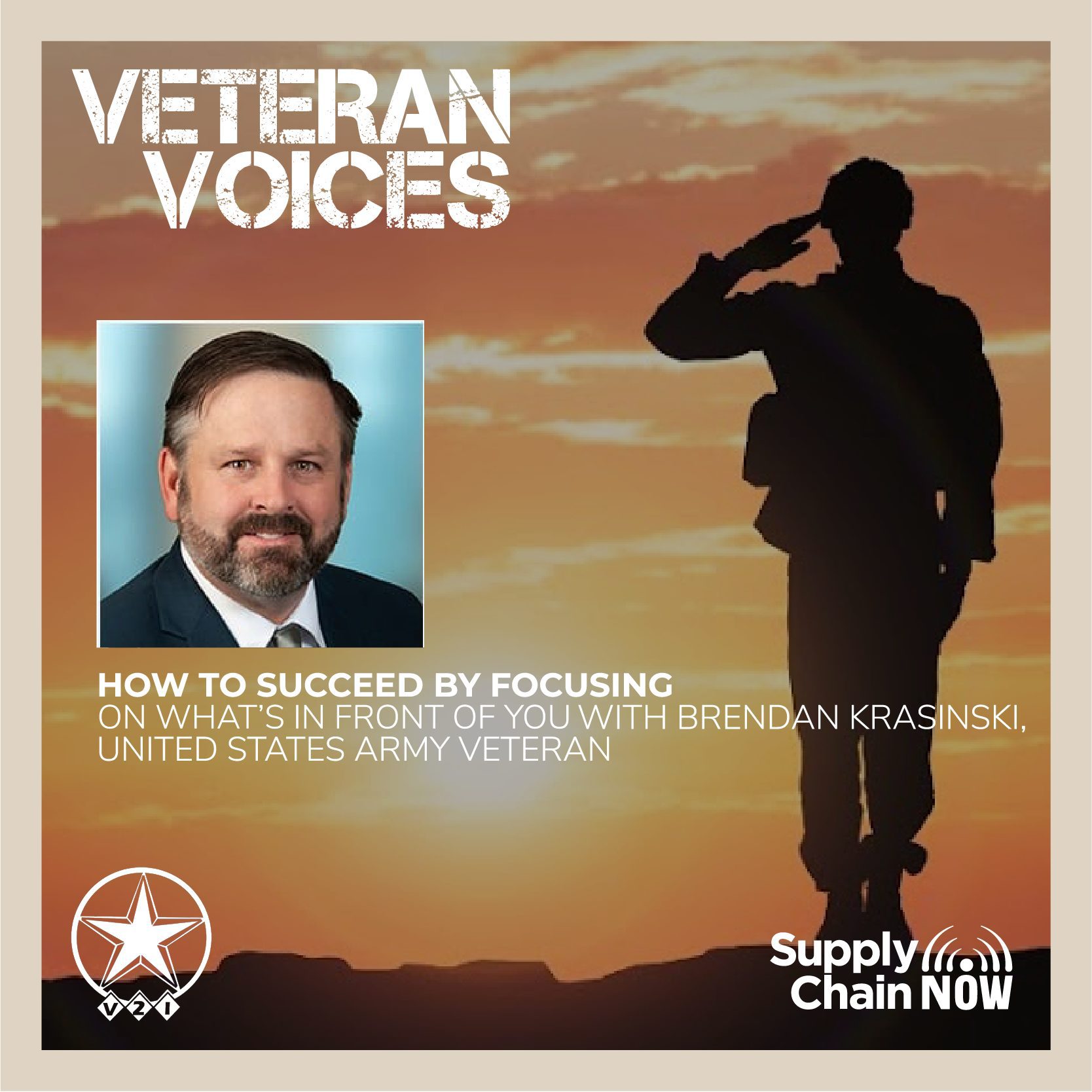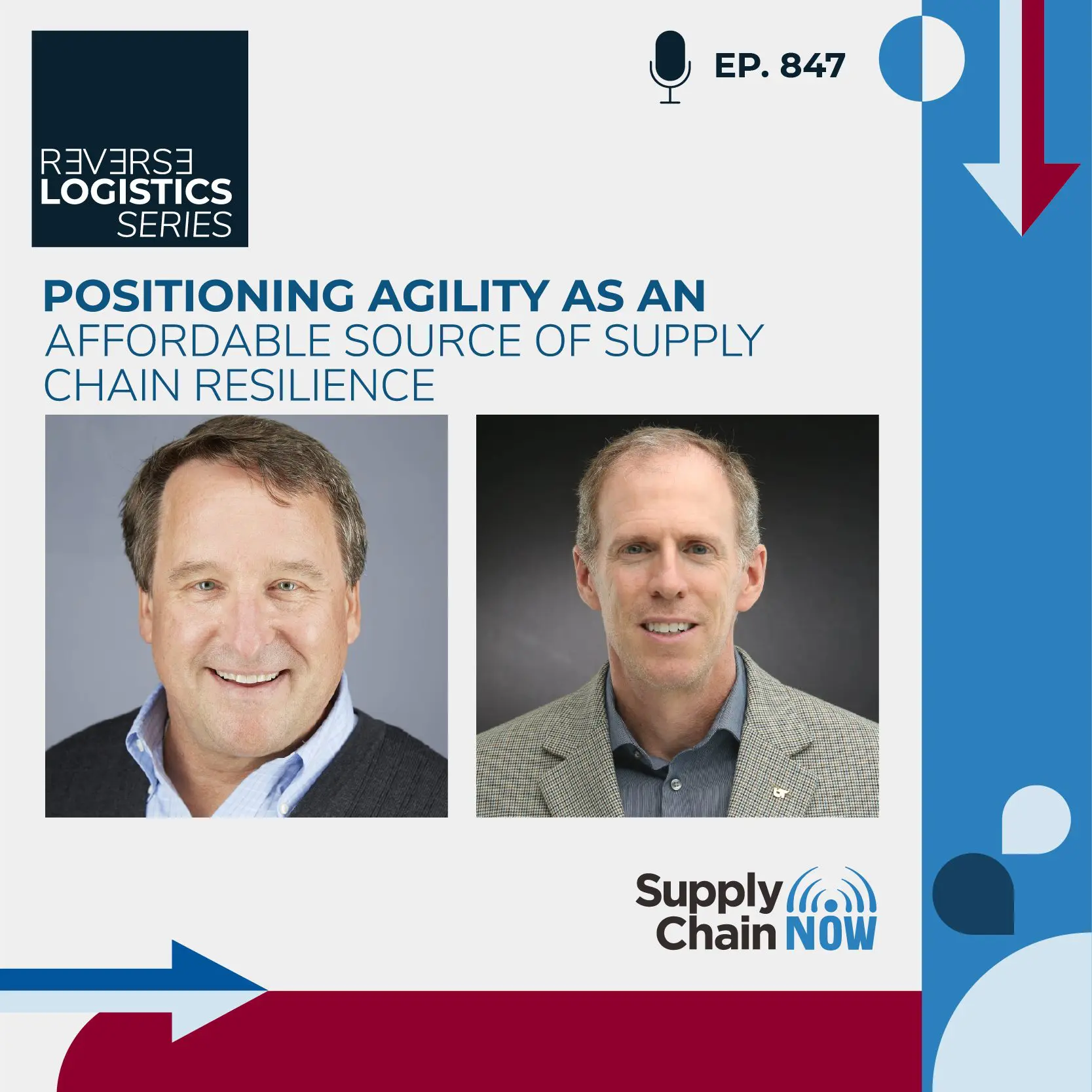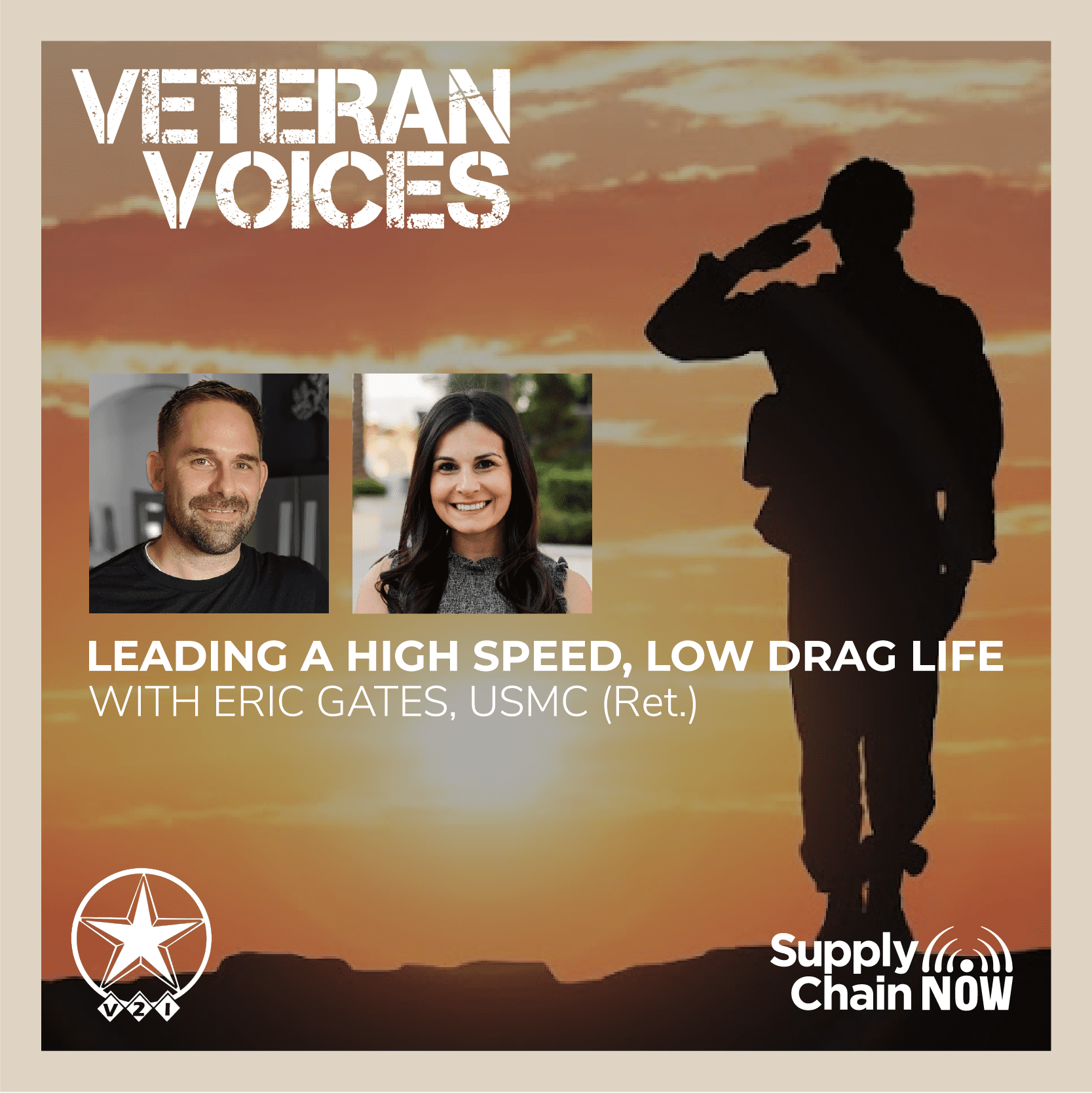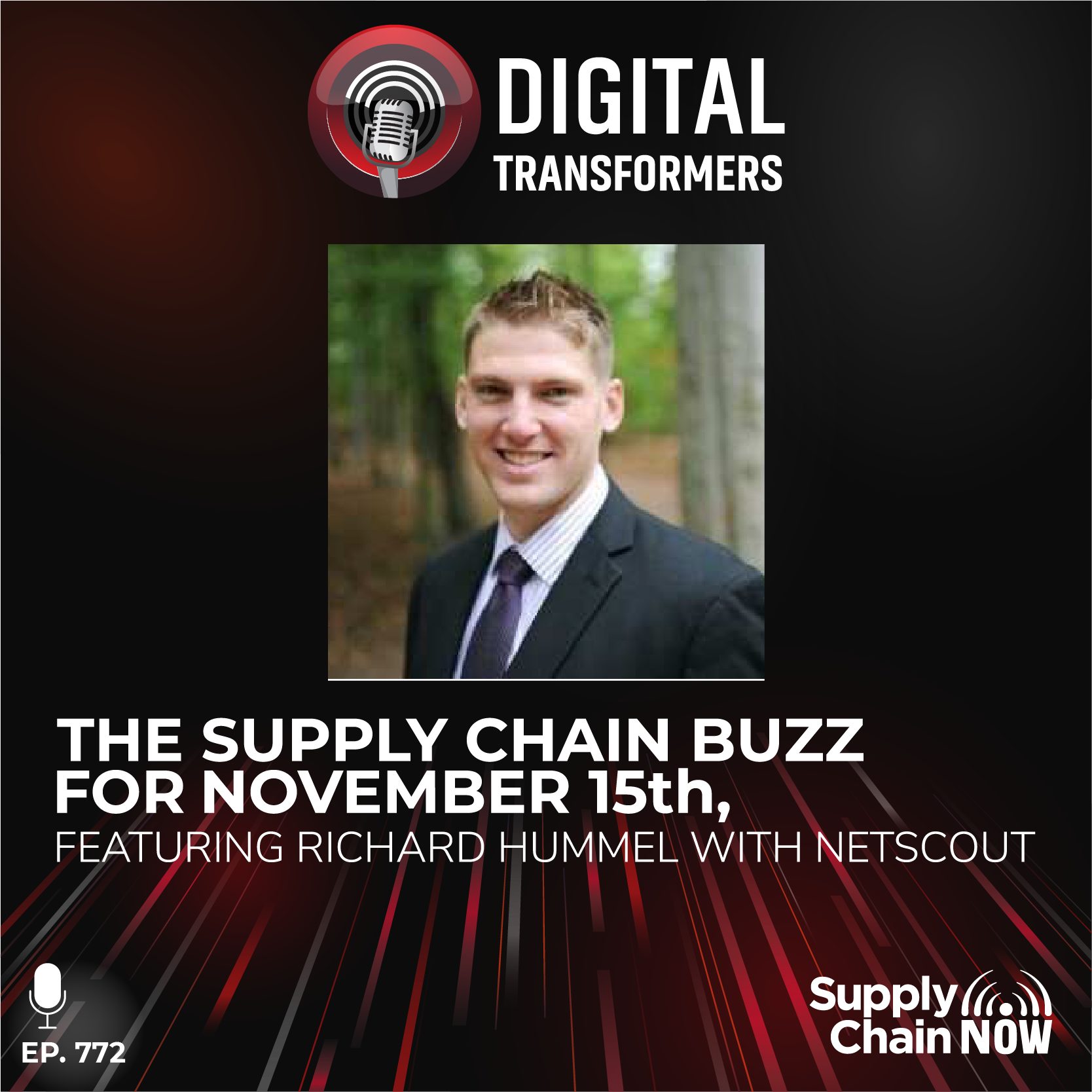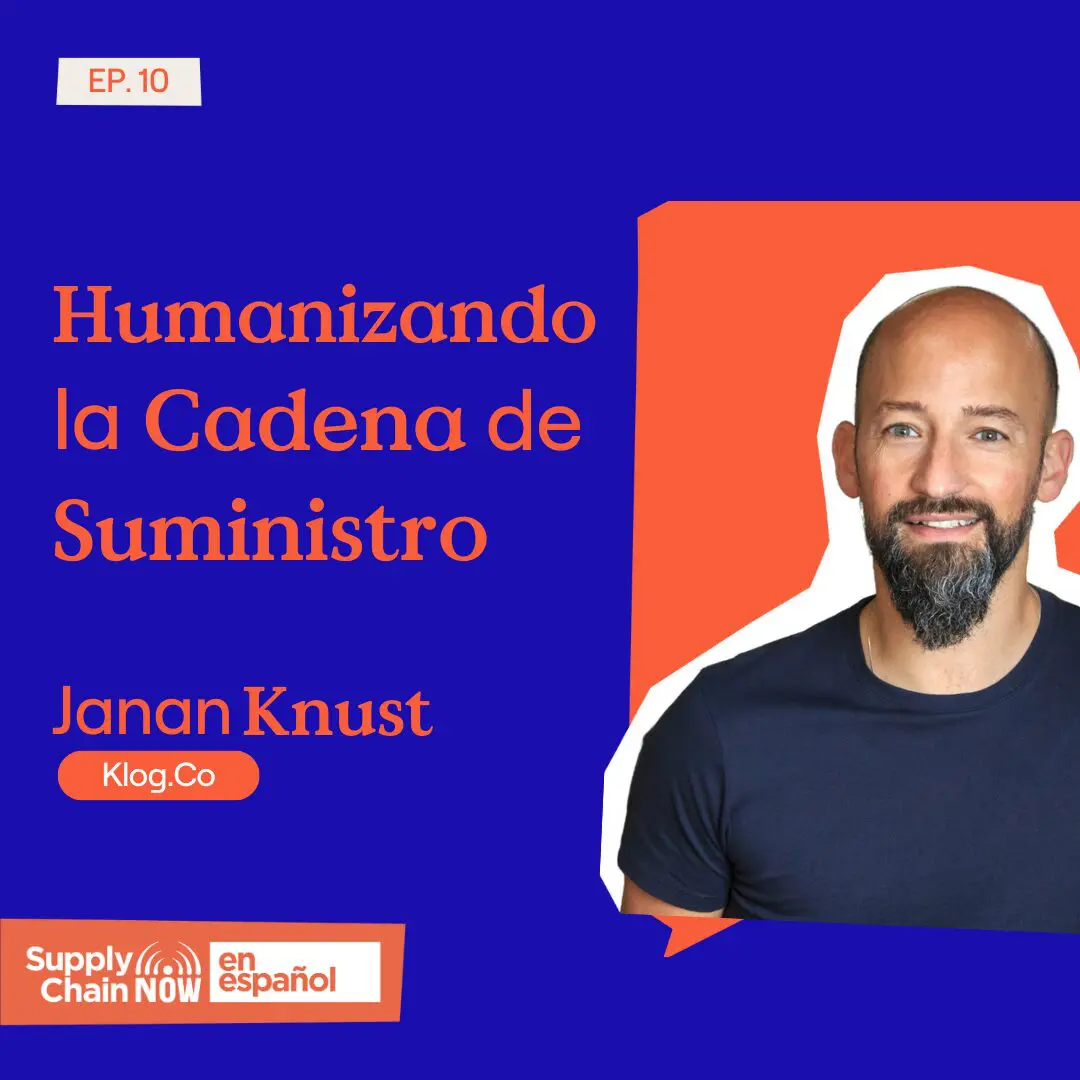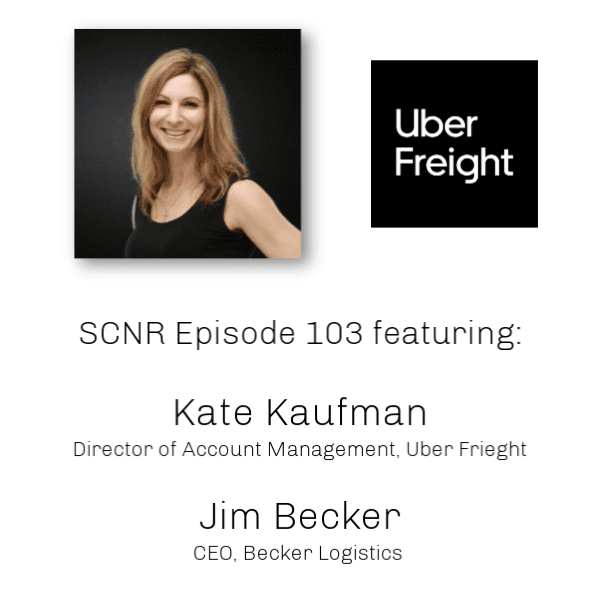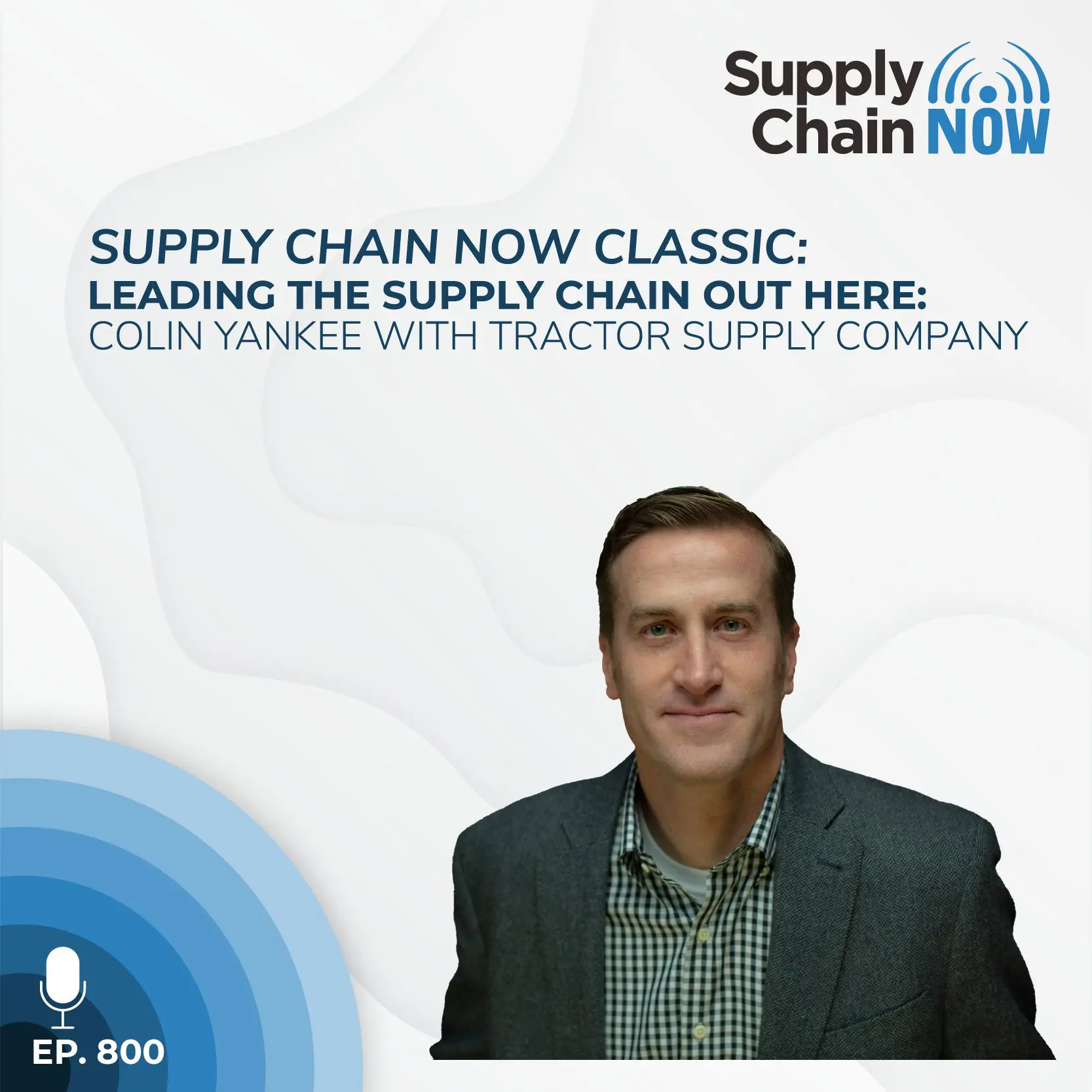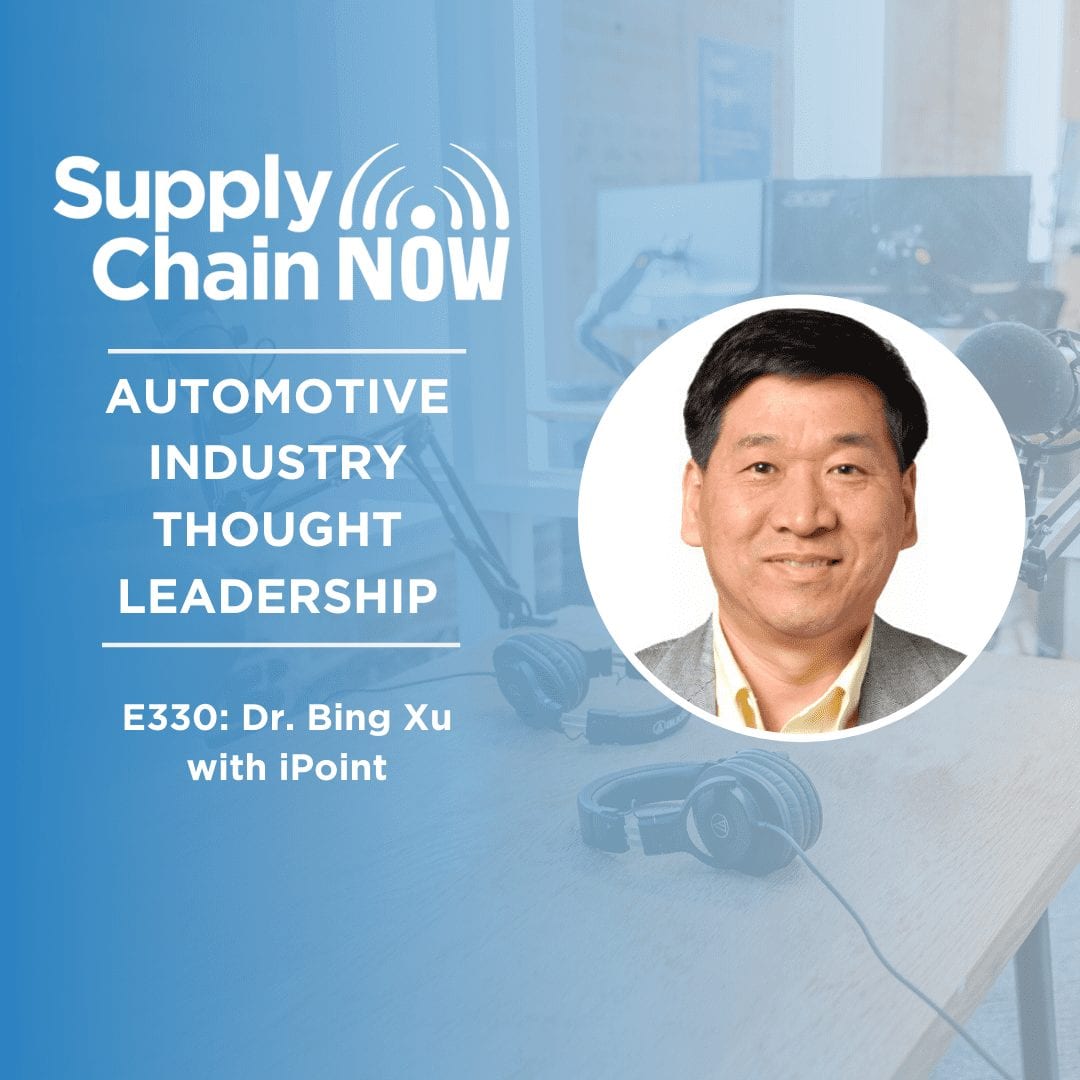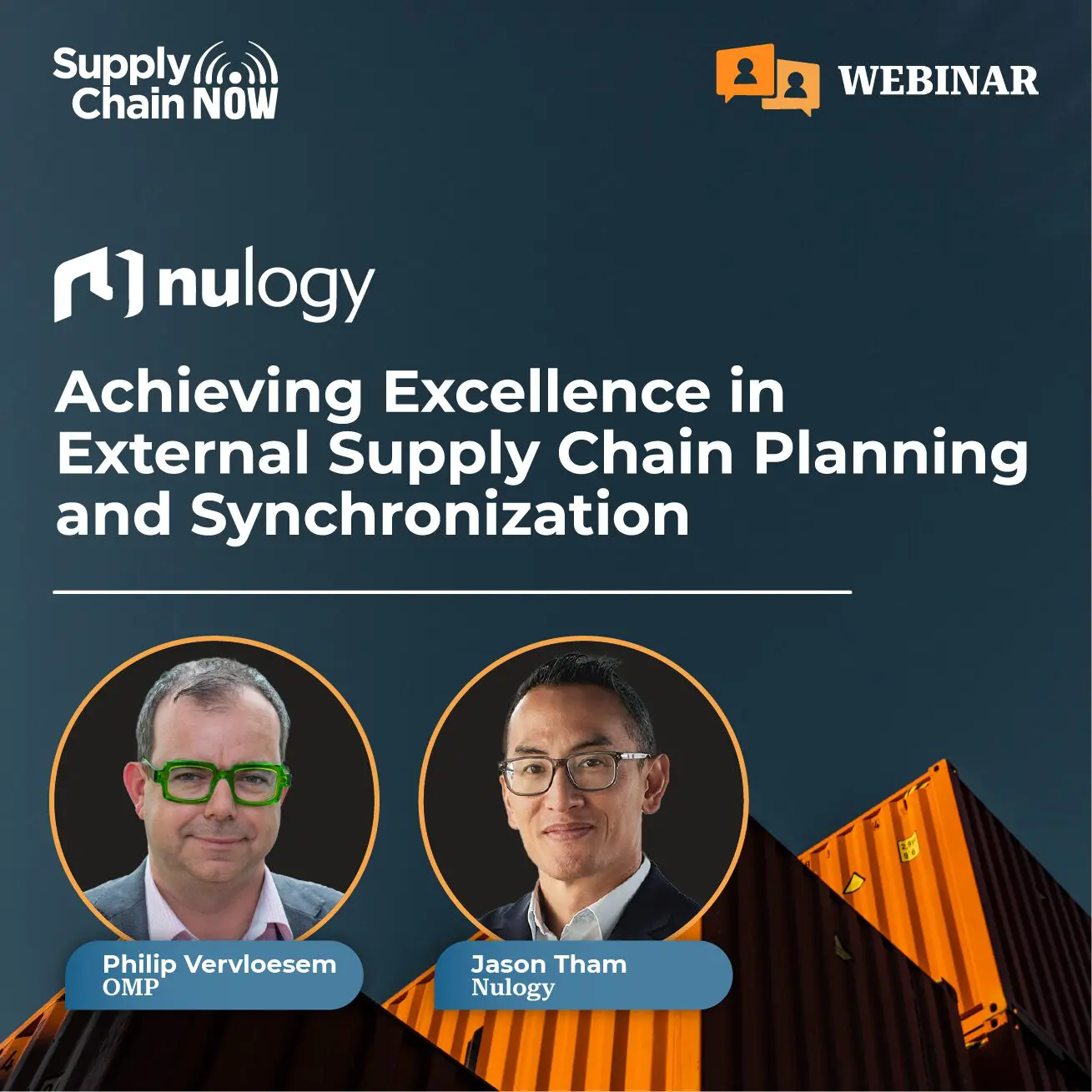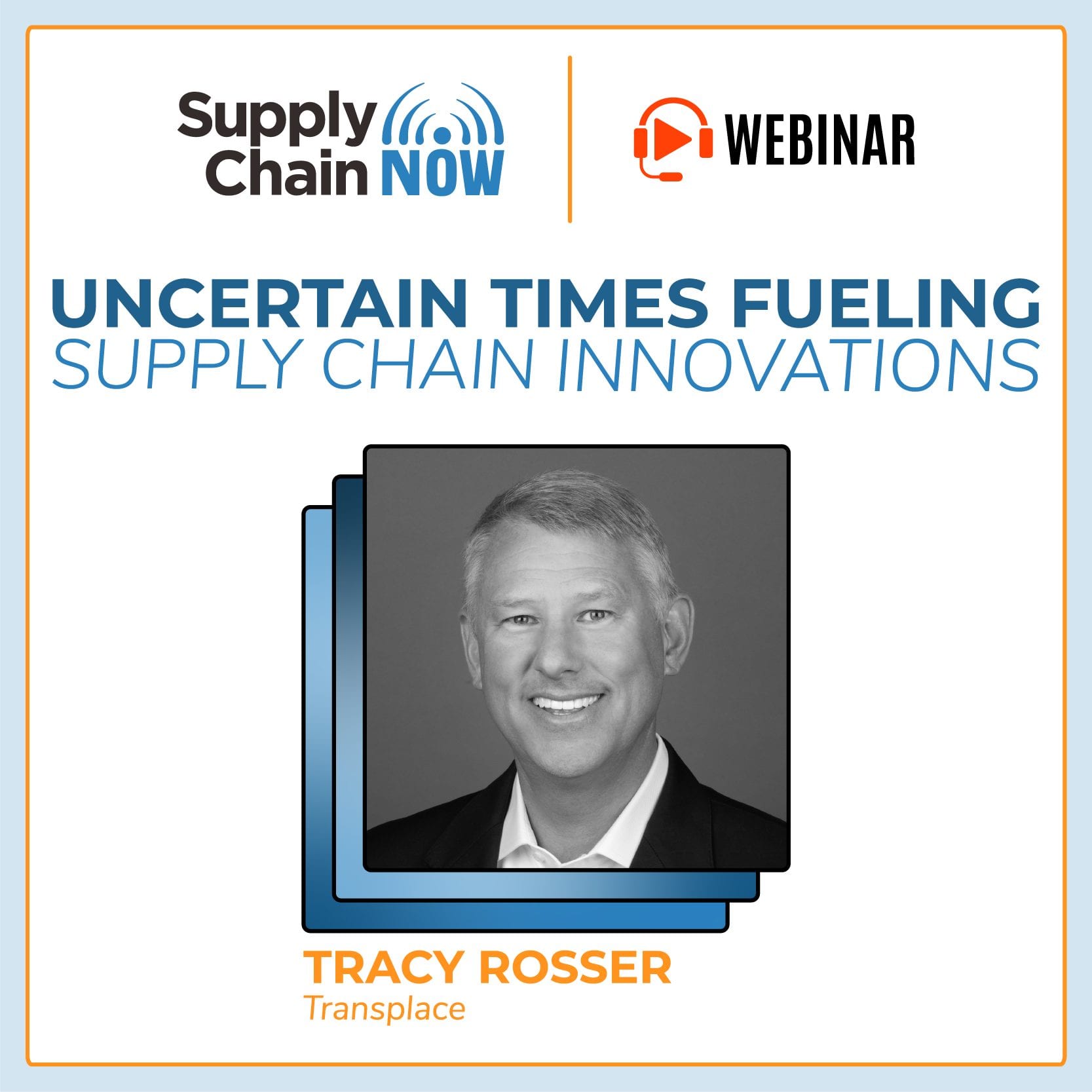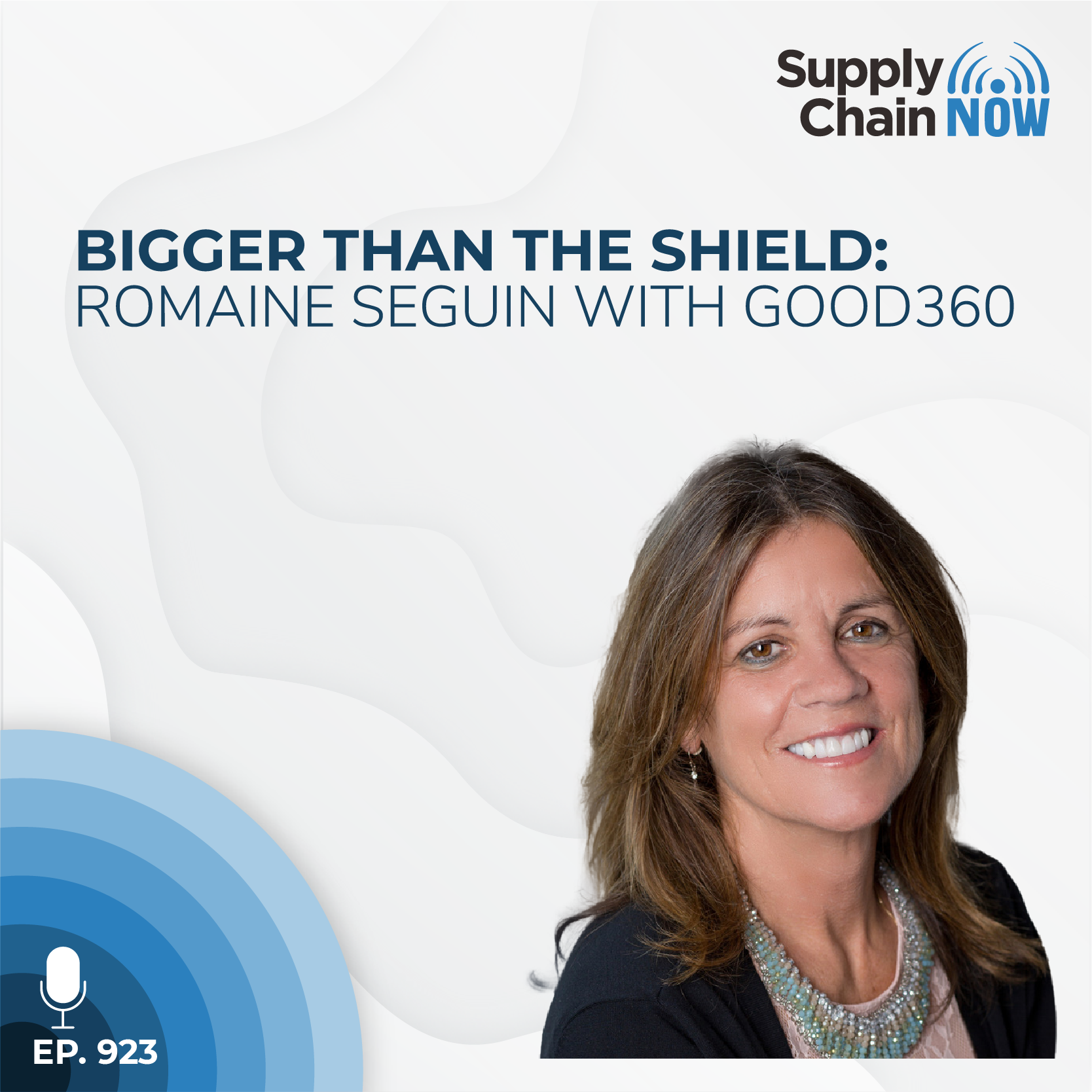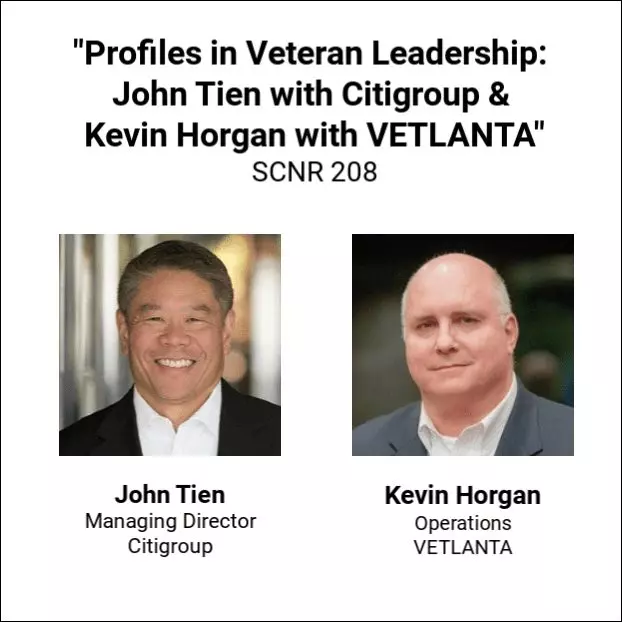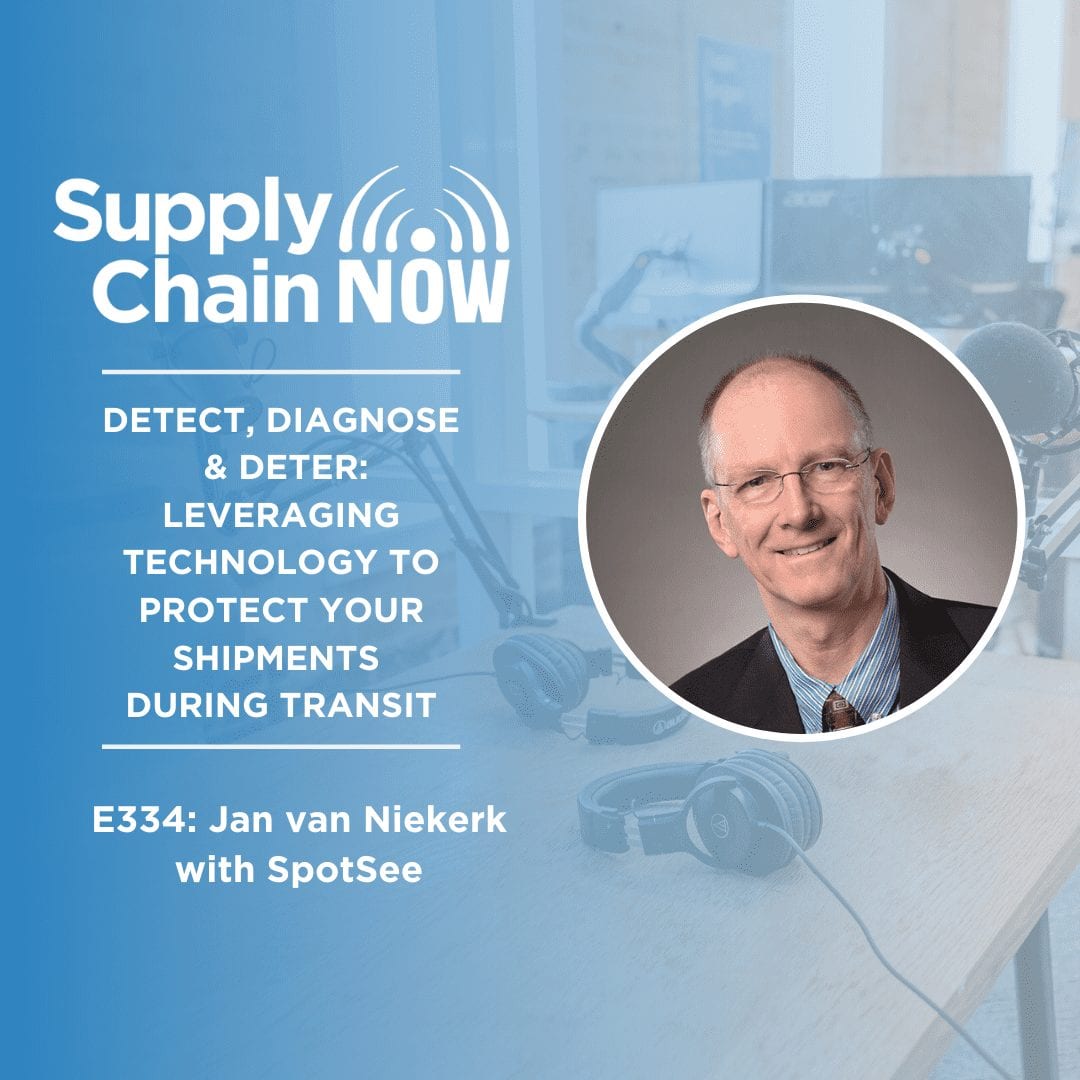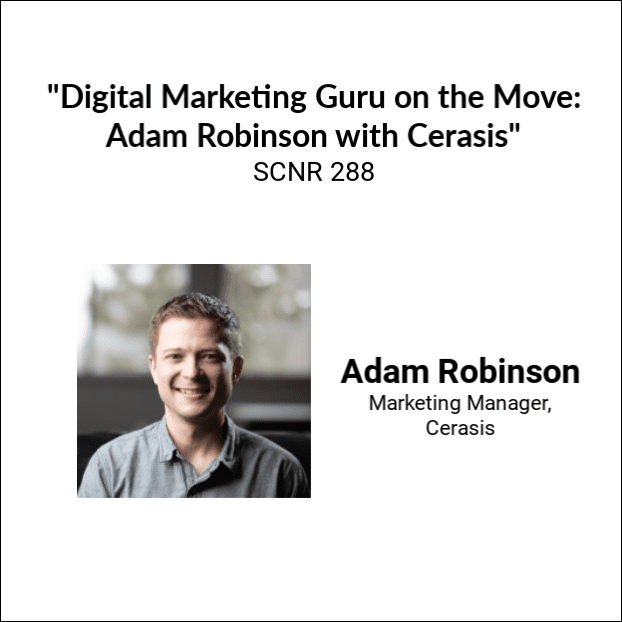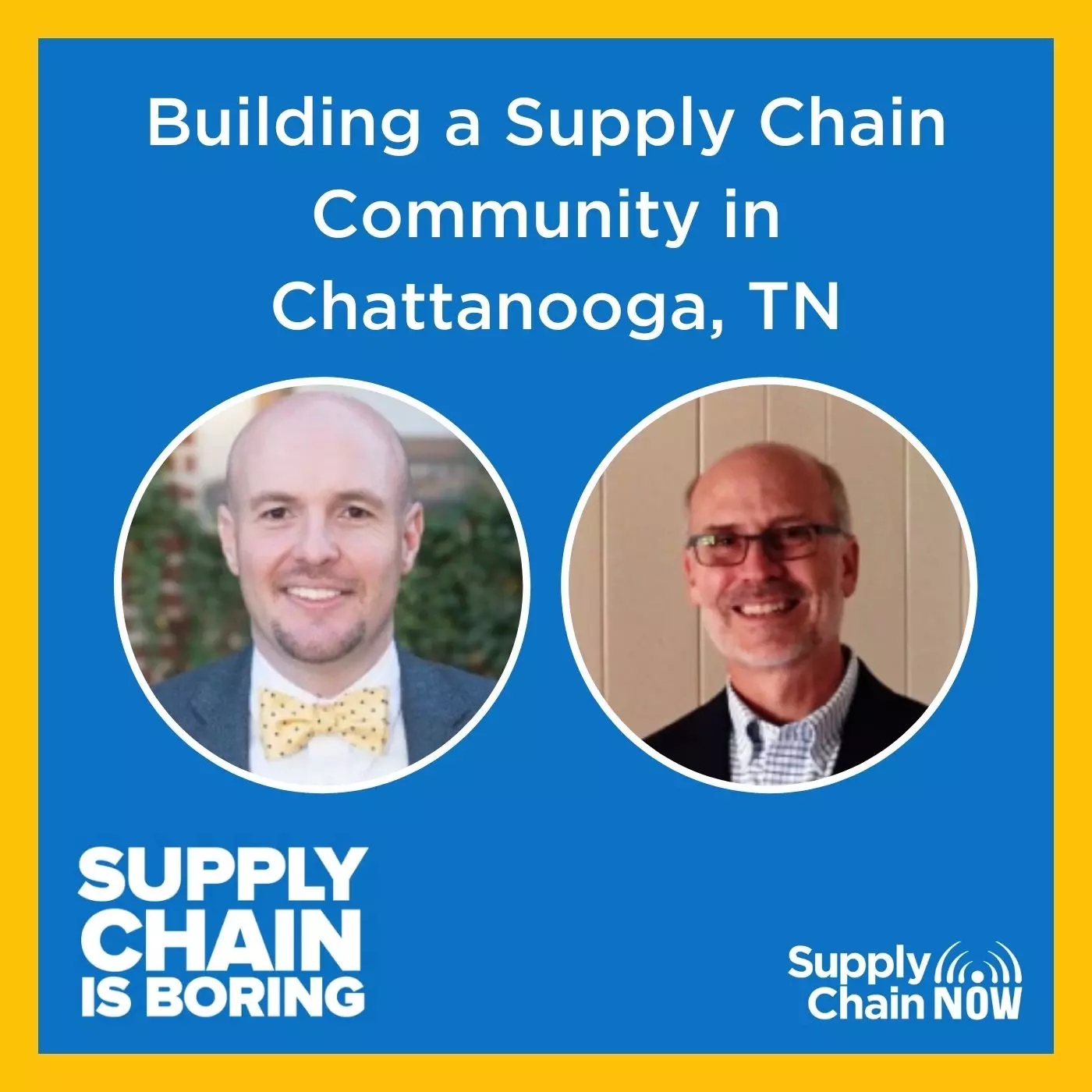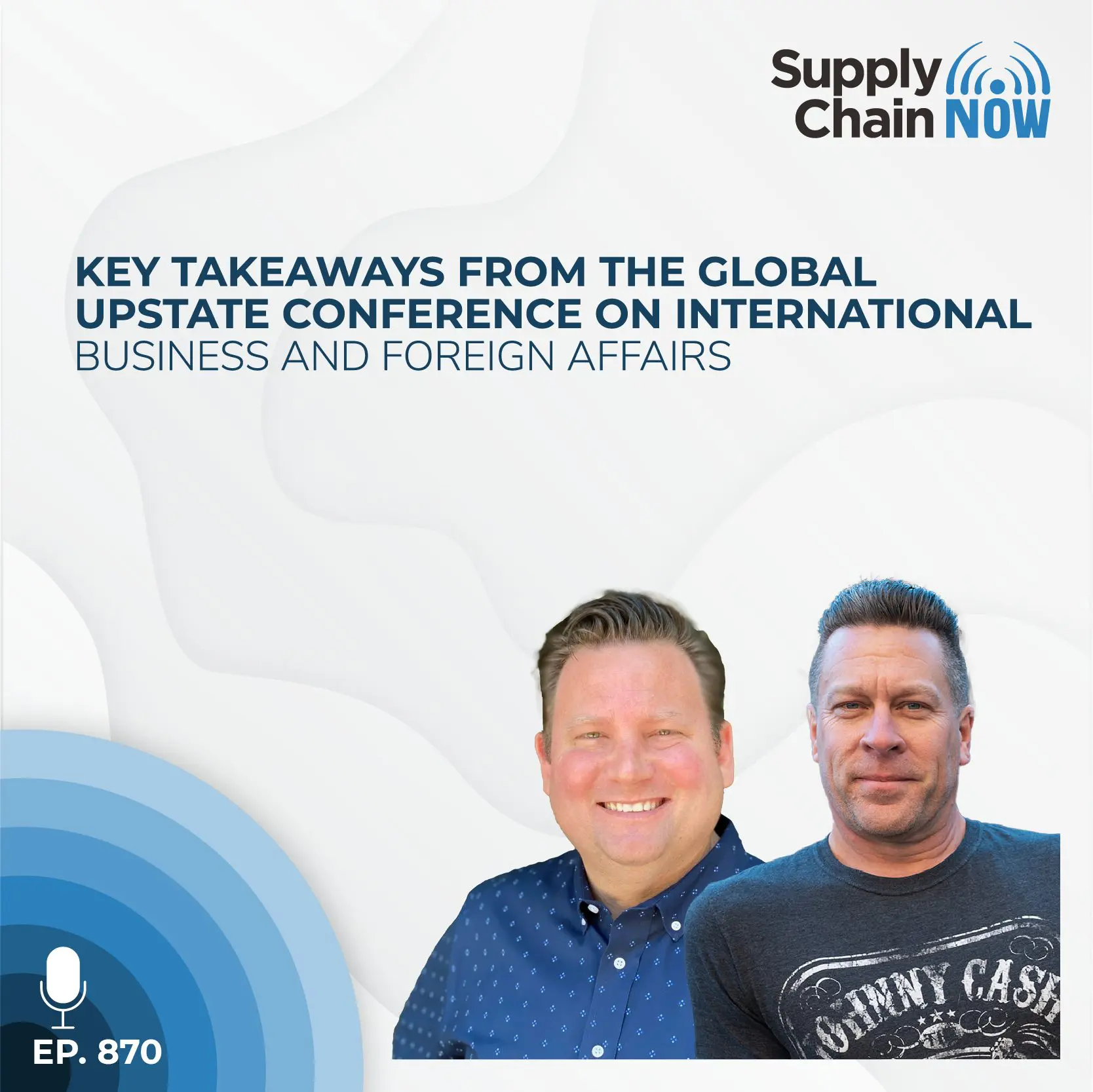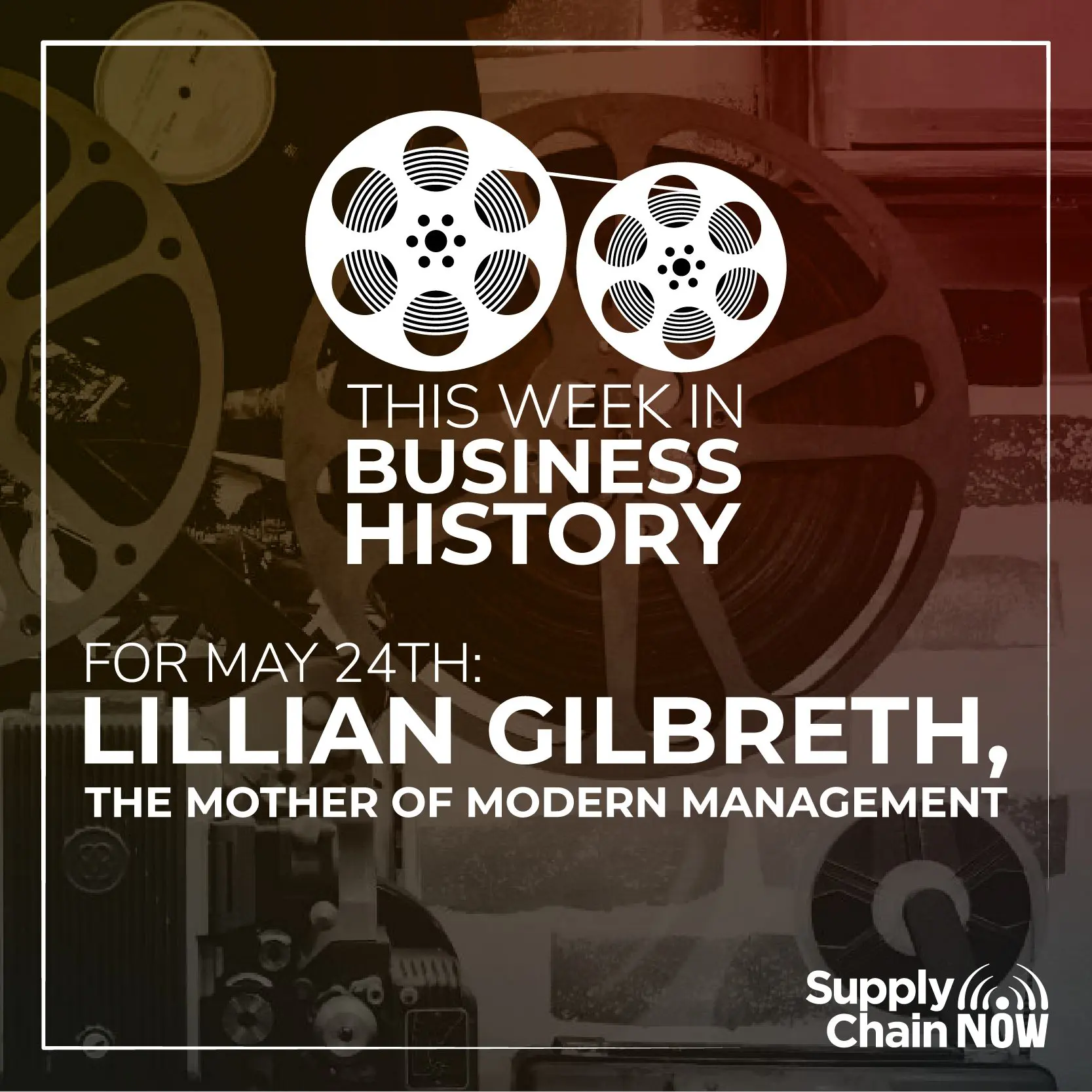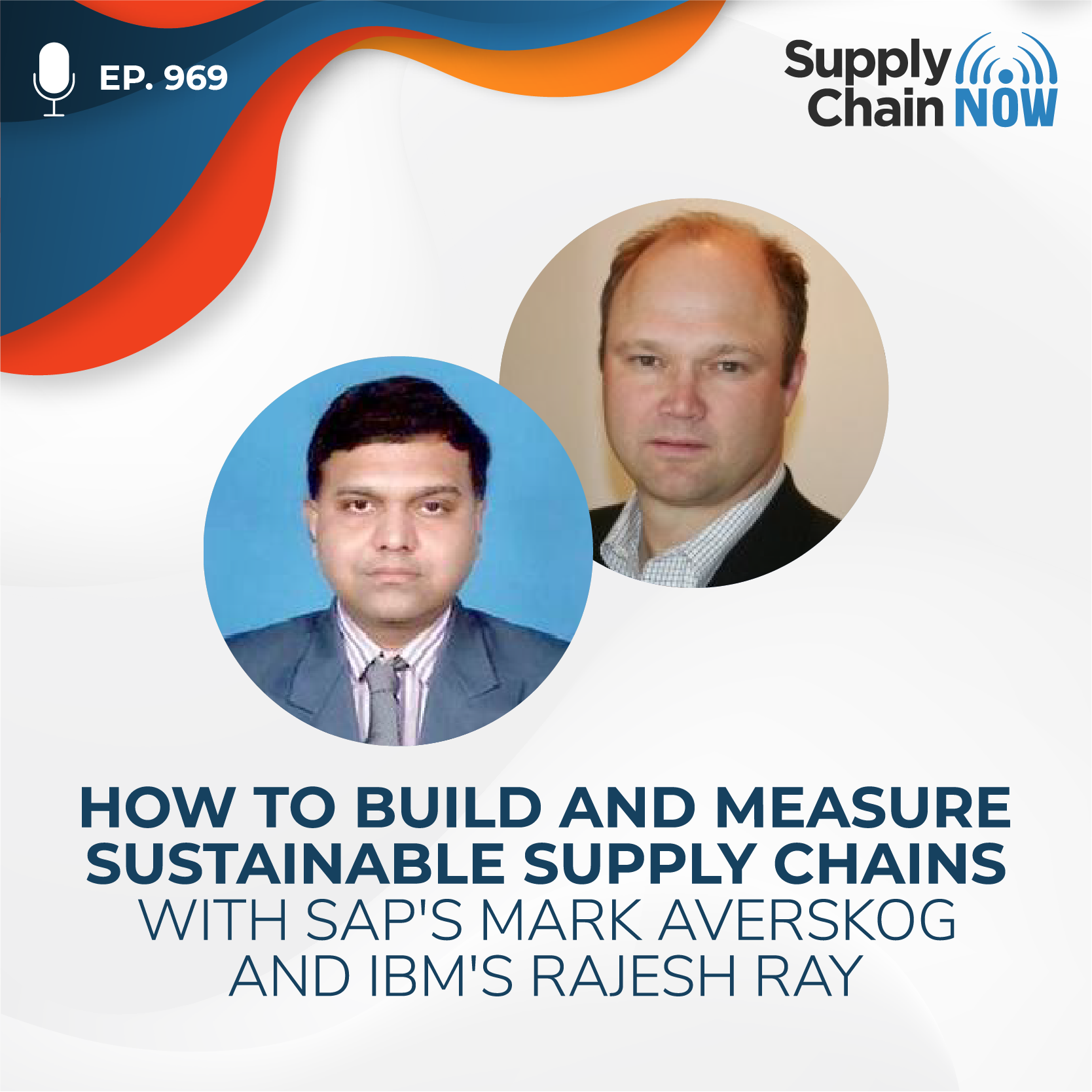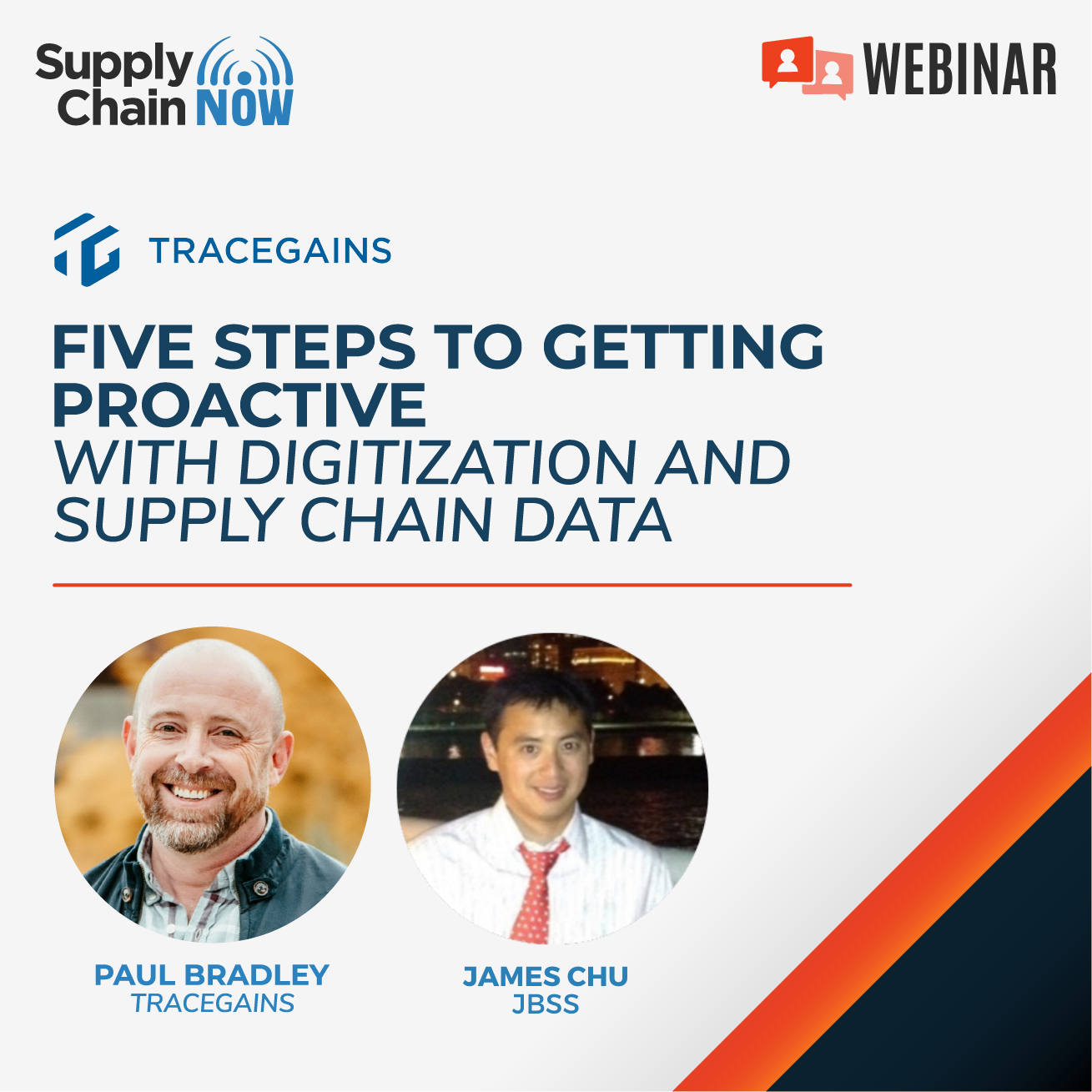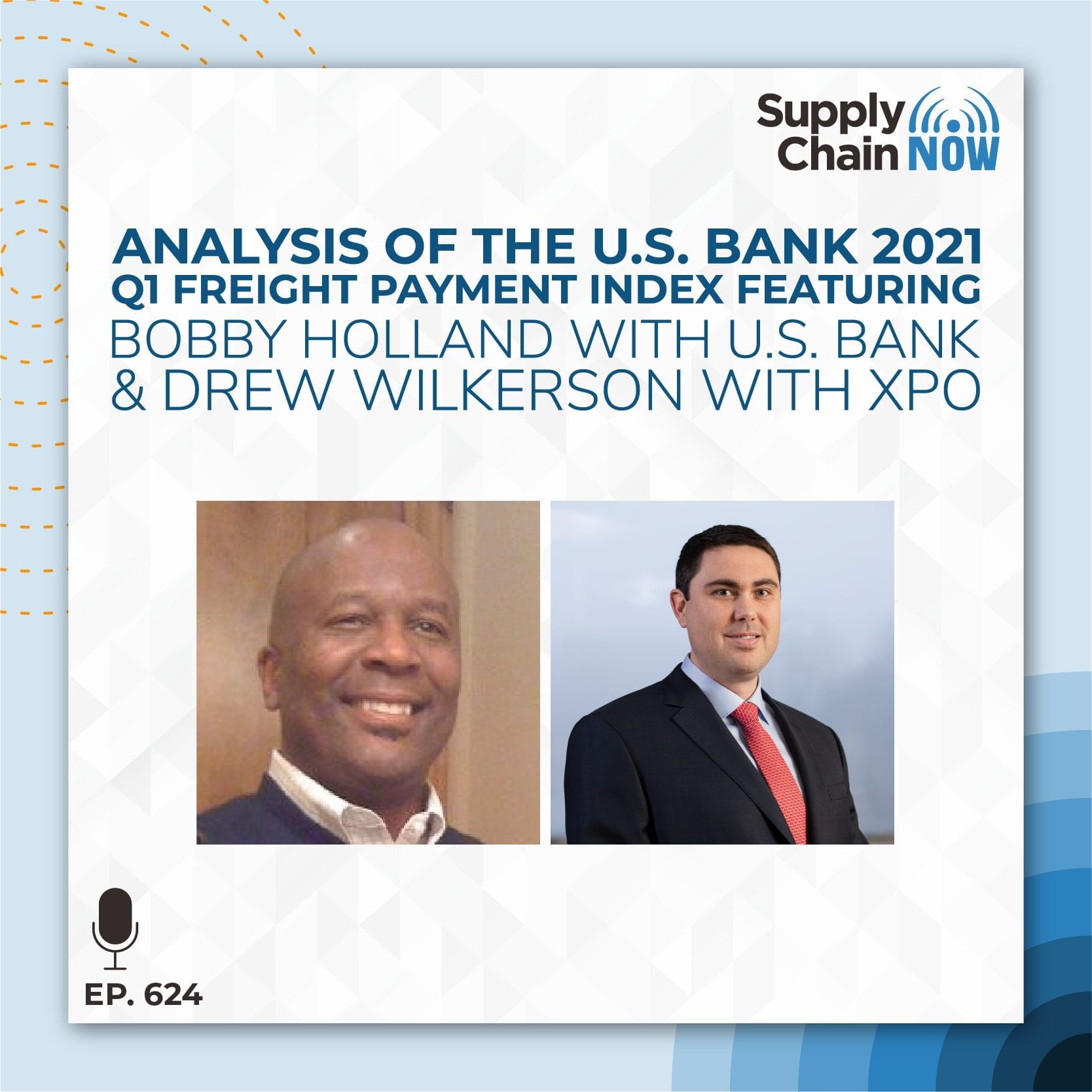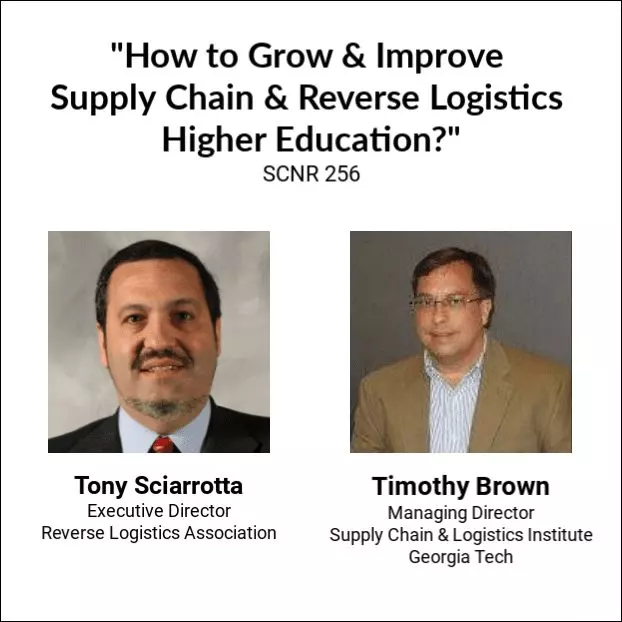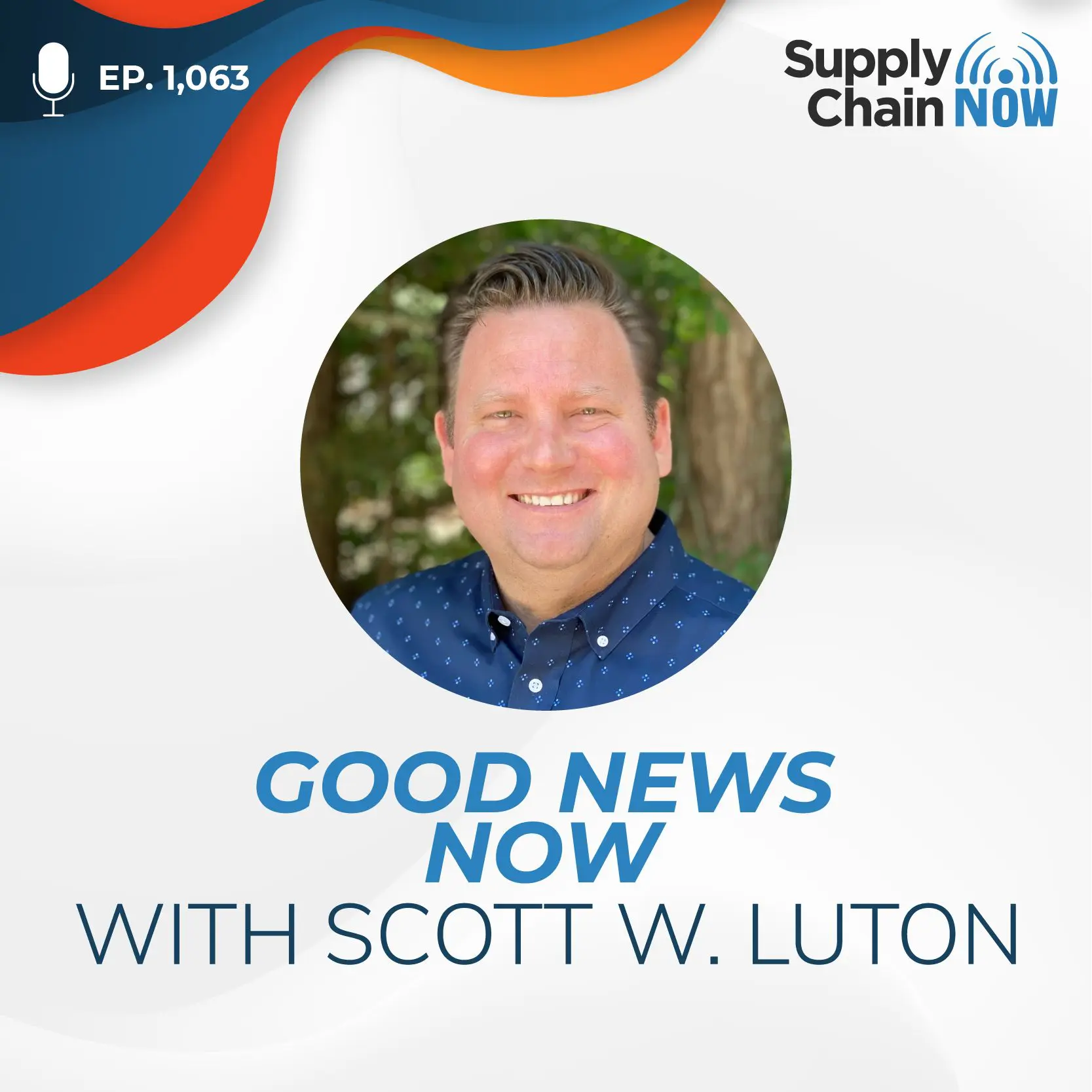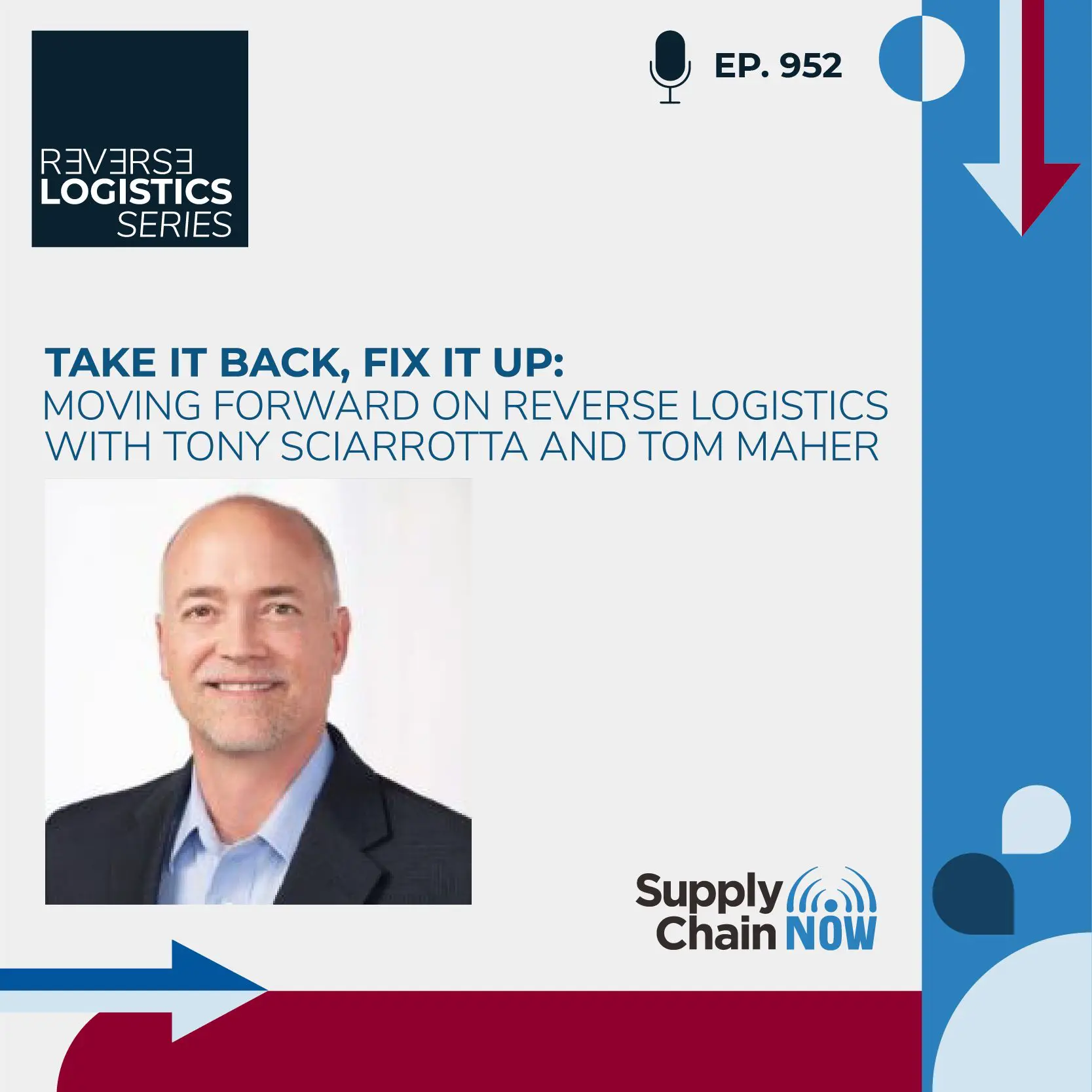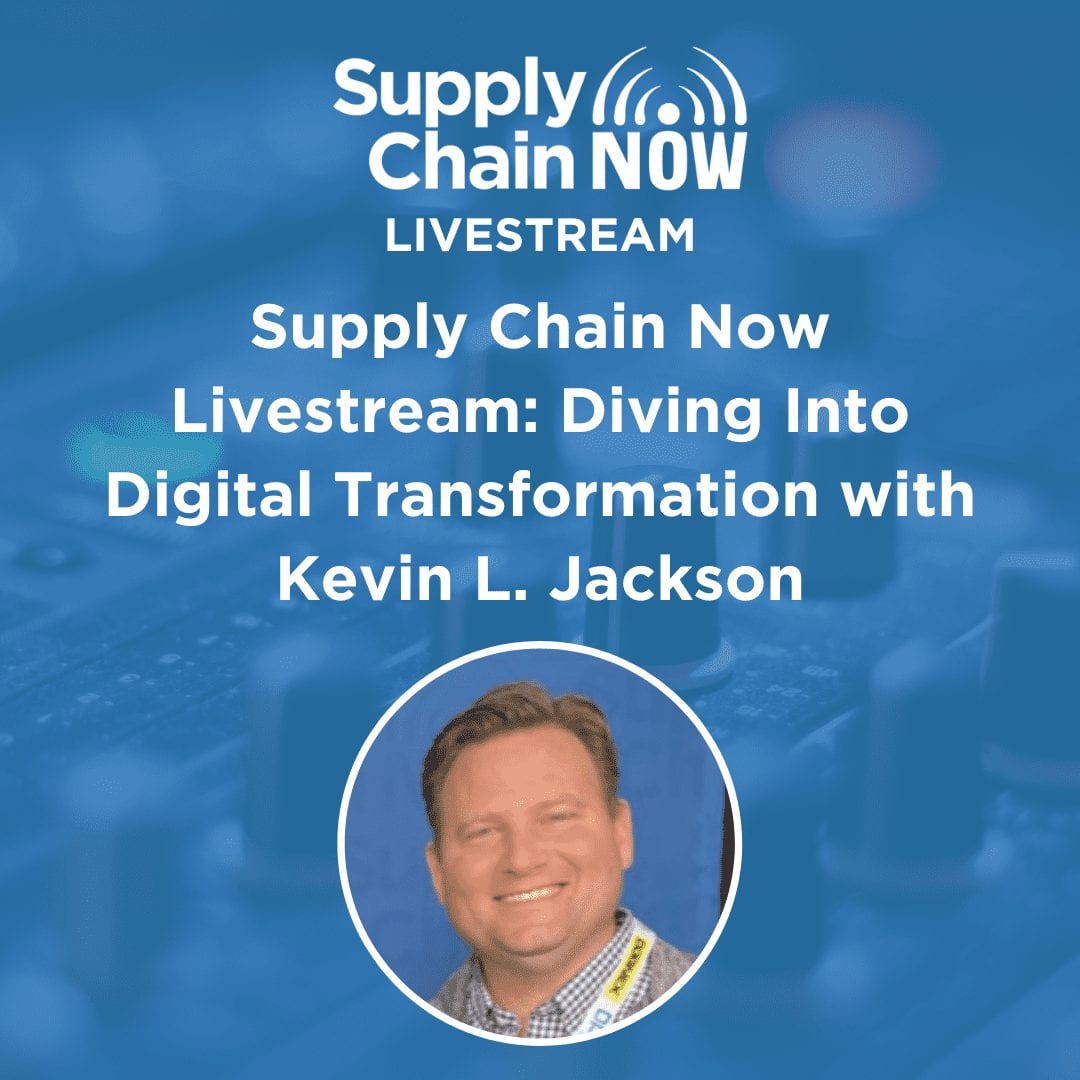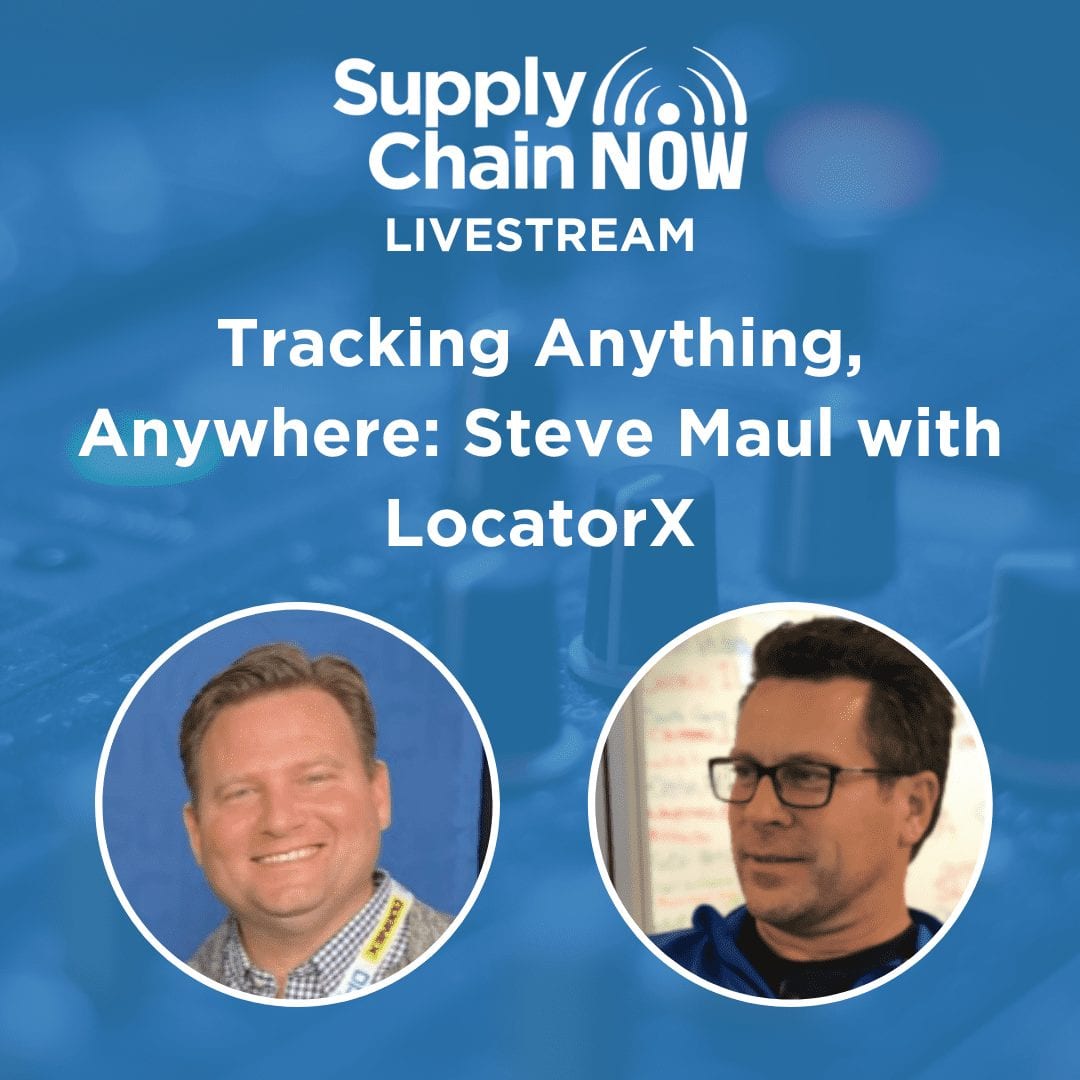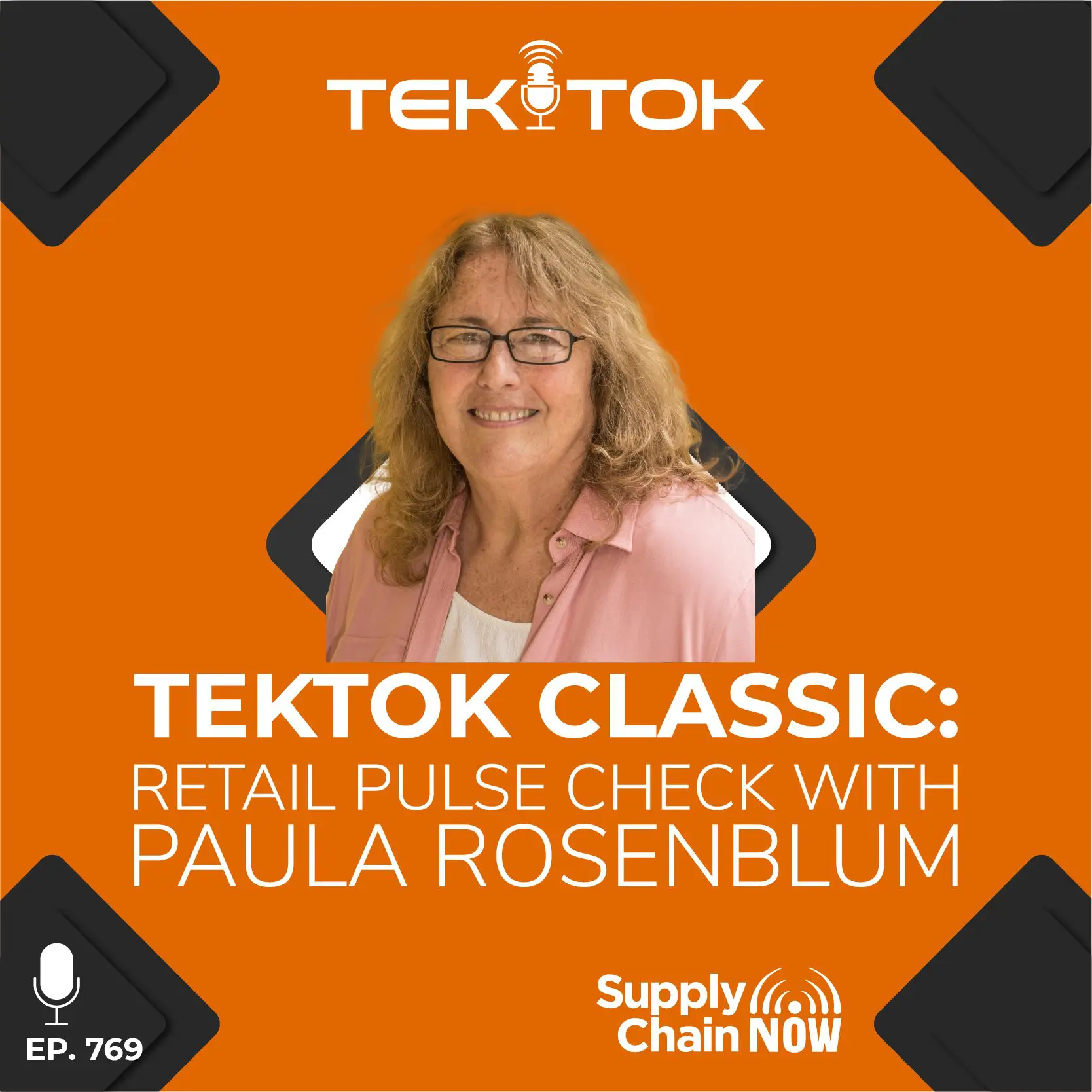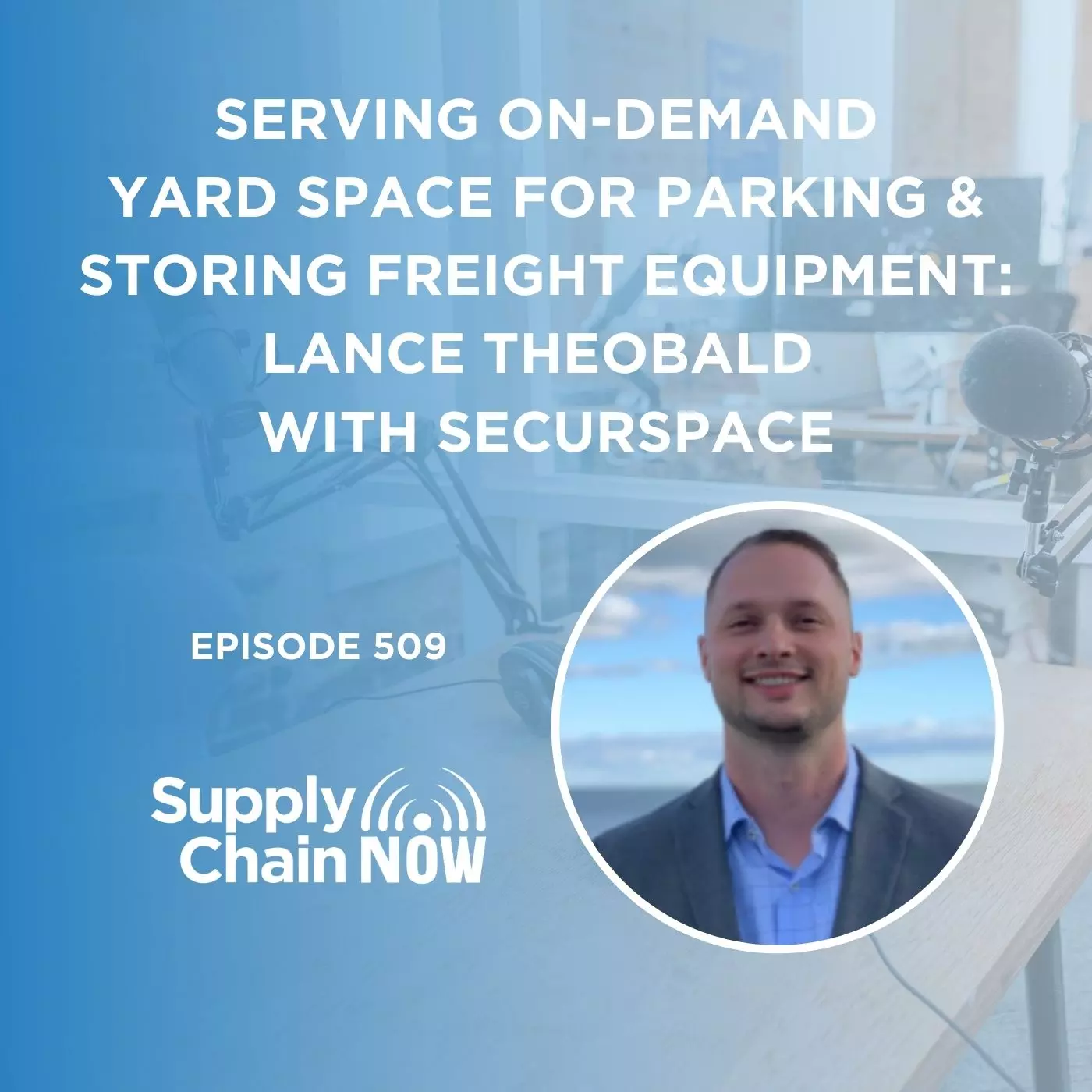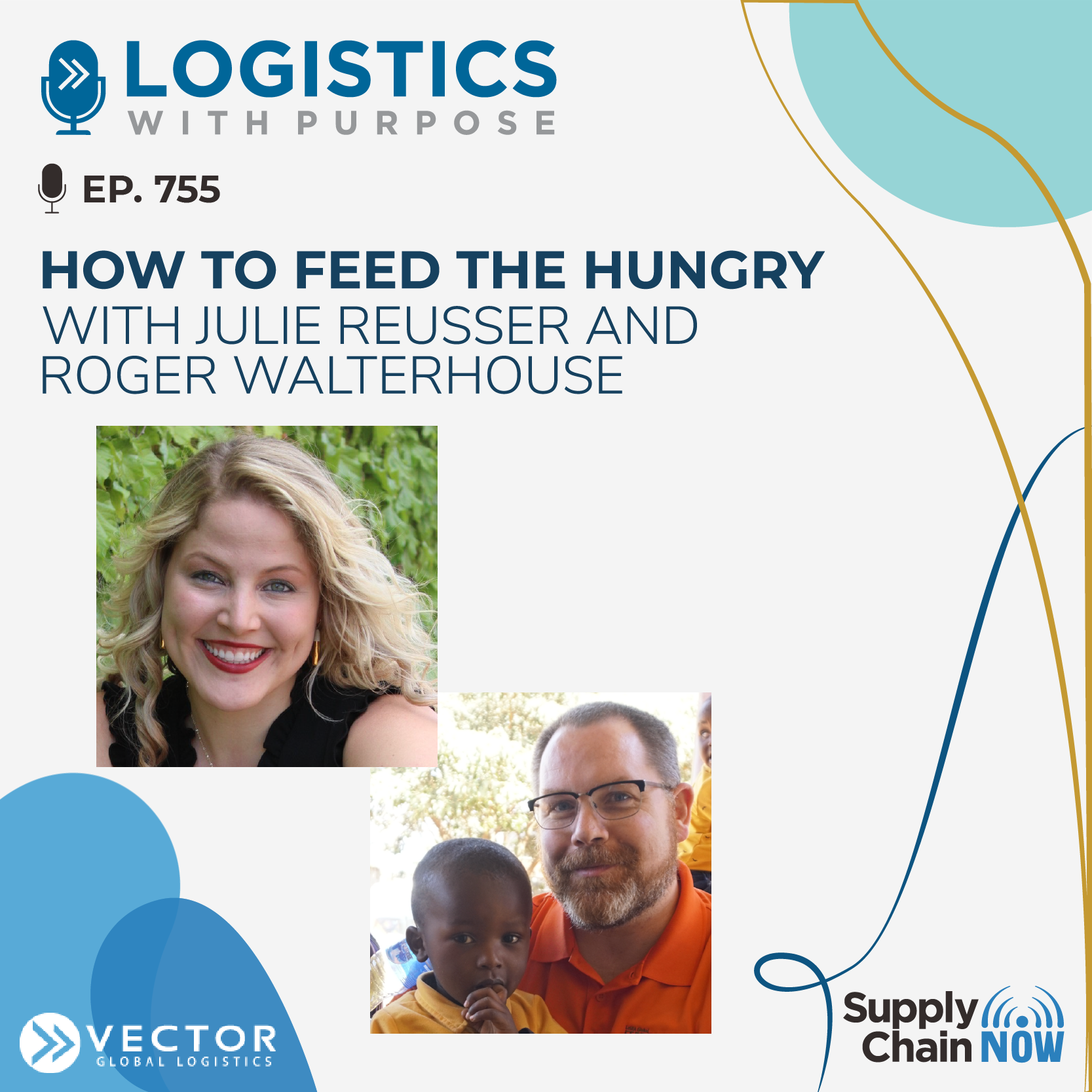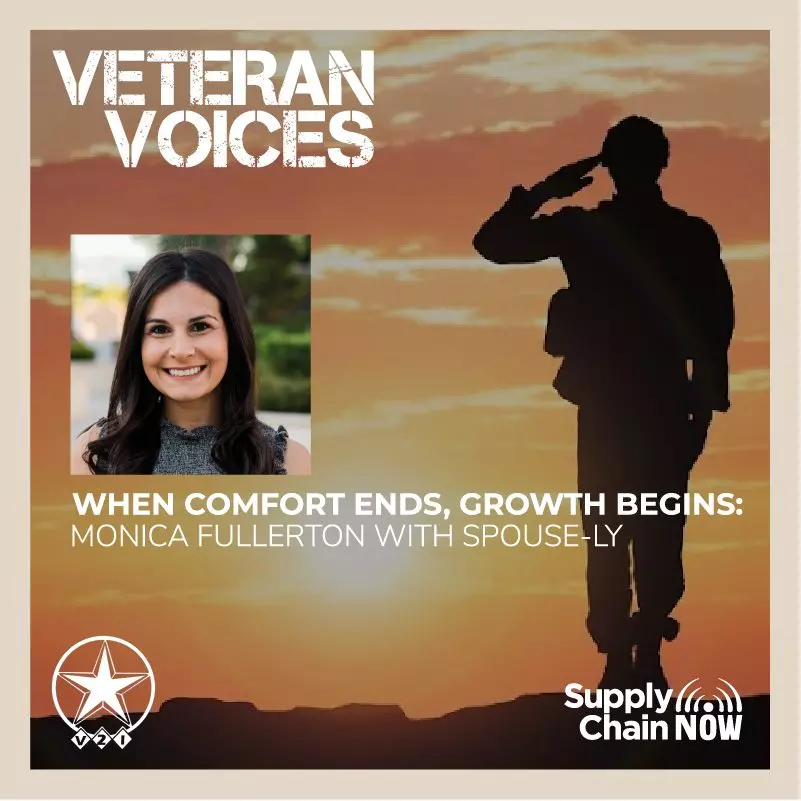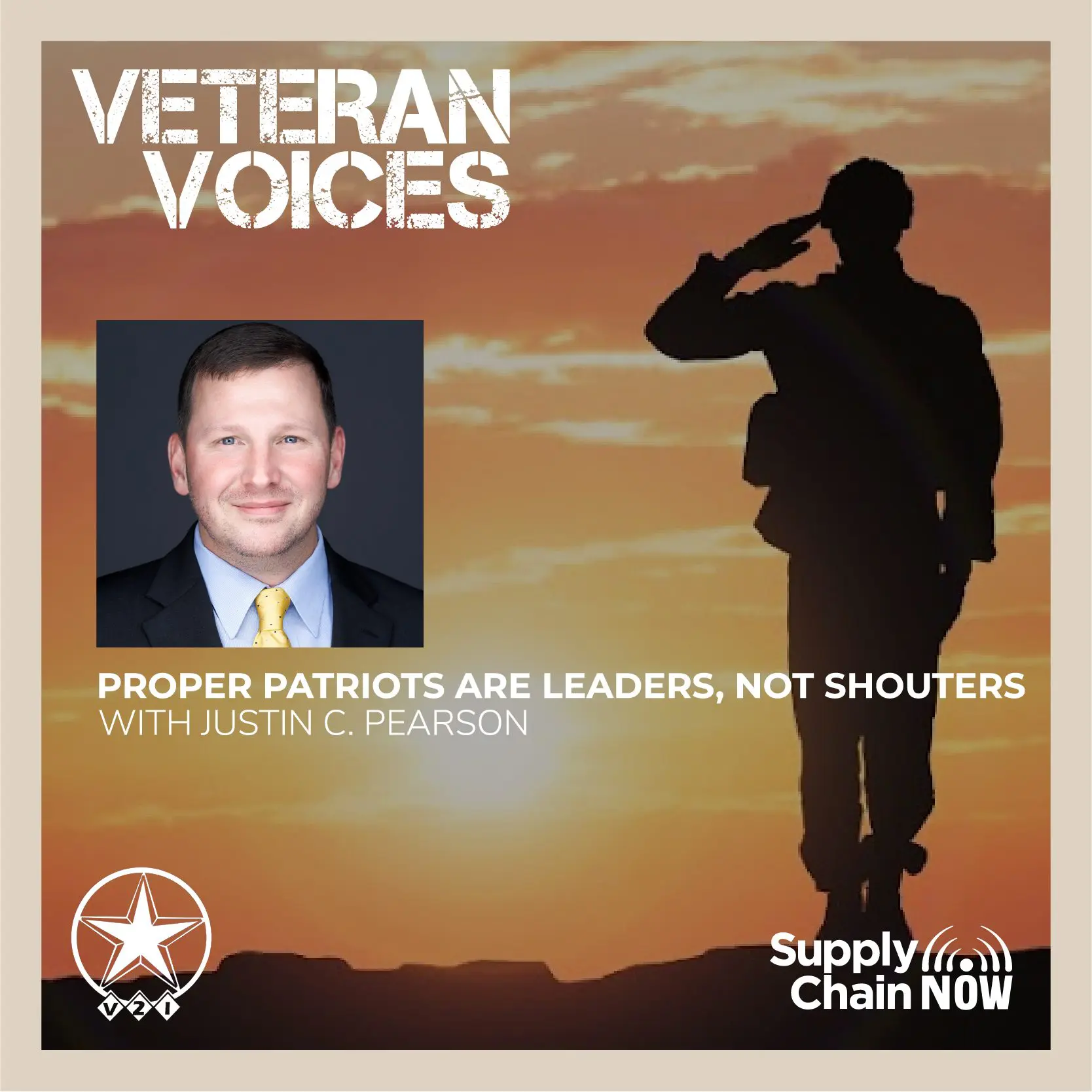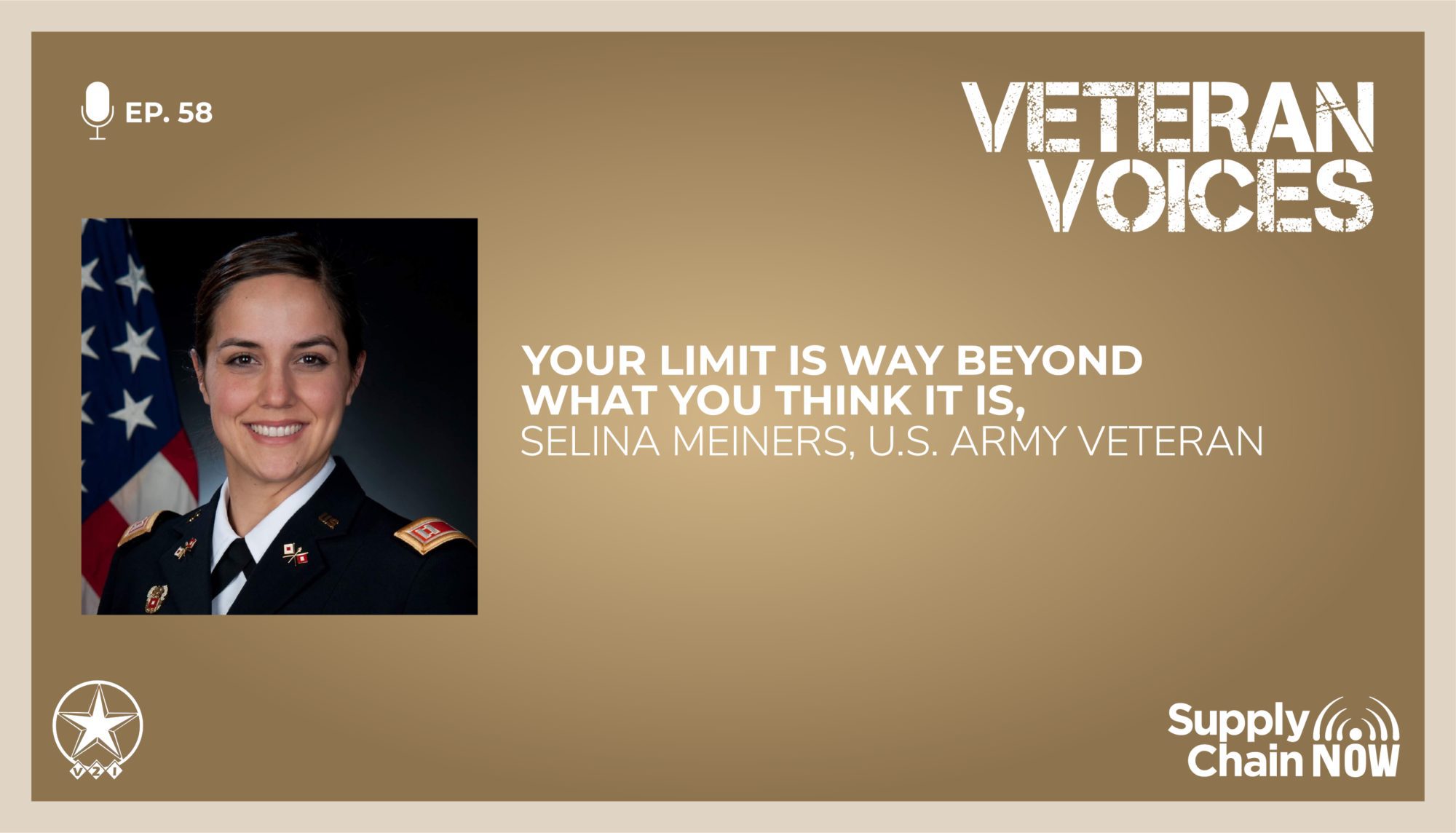
I think the biggest lesson I learned was what I think my limits are. I can't do this. I can't do that. There's no way I can finish this obstacle course. There's no way I can run five miles in under 45 minutes. There's no way I can do this 10-mile march with 70 pounds on my back and a weapon. There's no way I can go up this rope and ring the bell. By the end of it all, it was like, wait a minute. I did that. Not only that I did it well.
- Selina Meiners, Director of Communications for the Veterans’ Health Administration’s Office of Clinical Services
Episode Summary
Sometimes in life, when there is an important decision to be made, all you can do is sit down and make a list of ‘pros’ and ‘cons.’ Understanding the relative priority of short-term opportunity versus long term vision, or the kind of care you need versus what others in the same position will decide to do – those are hard decisions that decide the course a person’s life will take.
In this interview, Mary Kate Soliva and Scott Luton welcome Selina Meiners. Selina is the Director of Communications for the Veterans’ Health Administration’s Office of Clinical Services, part of the U.S. Department of Veterans’ Affairs. She served in active duty as a U.S. Army officer for more than 10 years, and during that time she learned what she was capable of as well as the direction she wanted her life’s journey to take.
Selina shares her honest reflections with Scott and Mary Kate about:
- The value of flexibility and self-determination, even when it comes at a great cost
- What she really thinks Veterans should do with the window of time between when they leave service and when they enter the private sector
- The dedication she has had the opportunity to experience and show towards Veterans in her time working for the Veterans’ Administration
Episode Transcript
Welcome to veteran voices. A podcast is dedicated to giving a voice to those that have served in the United States, armed forces on this series, jointly presented by supply chain now, and vets to industry. We sit down with a wide variety of veterans and veteran advocates to gain their insights, perspective and stories from serving. We talked with many individuals about their challenging transition from active duty to the private sector, and we discuss some of the most vital issues facing veterans today. Join us for this episode of veteran voices.
Scott Luton (00:40):
Hey, good morning, everybody. Scott Luton and the one only Mary Kate Soliva with you here on veteran voices, Mary Kate, how you doing?
Mary Kate Soliva (00:47):
Great Scott. Thank you.
Scott Luton (00:49):
It is so good to see you. Uh, I’m such, I’m the biggest Mary Kate Soliva fan. I love what you’re doing as hosting and leading veteran voices. And thanks for letting me make an appearance with a, a special guest here.
Mary Kate Soliva (01:01):
I always thank you, Scott. Well, I appreciate you joining me on this, this fine day. <laugh>
Scott Luton (01:07):
It is a gorgeous day out there. I was just outside looking at our flowers, but I digress. Uh, we have got a great guest here today. Uh, wonderful conversation teed up with a us army veteran, doing big things now in the public affairs, public relations and communications arena, and one that continues to serve our veteran community. So stay tuned for a great discussion. Uh, Mary Kate, as you know, this program is part of the supply chain now family programming, and we conduct it in partnership with our friends at vets, two industry, a powerful nonprofit doing big things for the veteran community. Right? Well, Brian and the whole team over there, uh, were big fans,
Mary Kate Soliva (01:43):
Big fans, big fans. They helped me so much during my transition from the military. So lots of love for vets industry.
Scott Luton (01:50):
Yeah. And that’s how we met Mary Kate. And you know, we’re gonna have to do a future show on some of the, not, uh, not to call ’em case studies, but just some testimonials of how they’ve helped so many people in their transition. So we’ll have to tee that up for a future episode, but
Mary Kate Soliva (02:04):
Love that
Scott Luton (02:04):
Today, Mary Kate today, uh, wanna walk him in our guest. Uh, are you ready?
Mary Kate Soliva (02:10):
I’m ready. Yeah, I’ve been ready. I’m waiting for this for a while. <laugh>
Scott Luton (02:15):
So, uh, our guest we’ll introduce her, serve an active duty as a us army officer for more than 10 years. She currently serves as director for communications for the veterans health administrations office of clinical services, which is part of the us department of veterans affairs when welcome in Selina Meiners. How you doing?
Selina Meiners (02:35):
Hi, Scott and Mary Kate. Thank you so much for having me. It’s great to be here.
Scott Luton (02:40):
You bet. Well, Sina, it’s great to meet you again. We had a little technical, uh, on my end last time. So it’s so great to have you back.
Selina Meiners (02:48):
It’s great to be back. Thanks.
Scott Luton (02:50):
So Mary Kate, we’ve already kinda, you know, I’ve got a sneak peek on Celina’s journey. I’m, I’m really excited of diving in here and sharing it with our veteran voices, community and ecosystem. Are you ready to get started?
Mary Kate Soliva (03:01):
I’m excited. I, I love, I love where this is going already and I love welcoming in a veteran sister cause see sky, I keep inviting my veteran sisters on, on veteran voices.
Scott Luton (03:11):
You know, that’s such an important, uh, element, you know, for so many different reasons. You know, I think our last guest RA last, I can’t remember her first
Mary Kate Soliva (03:20):
Name marina. Marin
Scott Luton (03:21):
Marina. Yes.
Mary Kate Soliva (03:21):
Marina the us Navy. Yes.
Scott Luton (03:24):
Powerful story. And, and she also much like Selena here continues to serve, uh, the veteran community. So I loved that discussion, but so Selena, as we dive into your story here today, before we talk about, and Mary, Kay’s gonna talk about your time in uniform. Let’s get to know you a little better. So tell us, where’d you grow up and give us an anecdote or two about your upbringing?
Selina Meiners (03:43):
Well, I grew up in Niceville Florida. It, yes, it is very nice. It is on the panhandle, um, right underneath Alabama, essentially. Okay. And so a little bit about my upbringing is, you know, I even came from a military family. My dad is retired air force and he retired as a master Sergeant and he really instilled in me a lot of values and personality traits that I carried on. It’s one thing that I remember is every weekend, every Sunday morning, 5:00 AM, he’d wake me up really. And I’m thinking yes, all through my teenage years and everything. And I didn’t realize that this isn’t really normal until later, but he would wake me up and we would, we had a little routine where we would go to Denny’s for breakfast and then we would go to Walmart or, and he would buy some fishing supplies and he would let me buy school supplies, which was like, I was obsessed with school supplies and, you know, we would do different things. Like he would teach me to drive. He would teach me how to get my oil changed, um, or how to change my oil in my car. And, you know, I remember even when my car broke down, he was like, well, I hope you have a great pair of running shoes.
Scott Luton (05:15):
<laugh> Chevrolet.
Selina Meiners (05:16):
Right? I mean, it was, he, he knew how to fix everything. He know, he knows how to fix everything still. And he is just a good hometown, Michigan, you know, American boy <laugh> basically mm-hmm <affirmative>. And so I love,
Scott Luton (05:32):
Yeah. I love those Sunday mornings, as you described, seems so instrumental in your upbringing, Mary Kate, how special it would that be? Huh?
Mary Kate Soliva (05:41):
It is. And I think that you said in the, in the moment in your teenage years, waking up that early is probably not, but I mean, looking back on it now, like you say, you got those memories going to Denny’s how to, I mean, those just life skills, right? Teach. So that’s special,
Scott Luton (05:59):
Mary Kate, I’ve got a special question for Selena. Were you into trapper keepers? Like I was as a kid.
Selina Meiners (06:06):
<laugh> uh, trapper keepers. Lisa Frank. I mean, you name it. I was into it if it was yes. Yeah. Stuff at yes, yes, definitely. Um, but my dad, I think is the reason why I am so tough. You know, people always say, oh, you’re so tough. You’re so tough. I’m not, I don’t think I’m really that tough cuz my bar is high or then it probably should be. But whenever I’m around people, you know, even if it’s lifting one of those big water jugs onto the thing. Oh no problem. And people are like strong with you. Like
Scott Luton (06:42):
<laugh> it sounds like, sounds like to me, Selena, uh, is that your dad was a kind of a hammer meat nail, make it happen, fix it, you know, in the, you know, very practically minded and, and that’s kind of some of the things I’m picking up a as you describe, um, what he taught you and kind of how you are now. One quick question. Before we switch over to your time in the military, what what’d your dad do in the air force?
Selina Meiners (07:04):
He was an electrician. Mm. So even today he like, I have these snowflake Christmas lights I’ve had ’em since 2008. They like flash whenever they break, like, you know, one snowflake doesn’t work anymore. I’m like, oh my gosh, dad. And he’ll fiddle with it. He’ll fiddle with it. He’ll fix it. Yeah. He can fix anything electrical. Really?
Scott Luton (07:28):
Yeah. Those are valuable. That’s
Mary Kate Soliva (07:30):
A good guy have around.
Scott Luton (07:31):
No kidding. Mary Kay. You took the word right outta my mouth. Well, um, so in your dad’s name,
Selina Meiners (07:36):
Selena, his name is John.
Scott Luton (07:38):
John. Well, John big shout out from Mary Kay and the batter better voices. Thank you
Mary Kate Soliva (07:43):
For your service
Scott Luton (07:44):
Family. That’s right. So Mary Kate speaking of service, that’s a great segue, man. You’re reading my mind. Where are we going from here? Yes.
Mary Kate Soliva (07:50):
Let’s talk about your time in uniform. What branch should you serve in what’d you do? And definitely gotta know about where you, where you went. Cause I know that we don’t always go to the nicest places, but we’d love to hear about your uniform.
Selina Meiners (08:06):
Well <affirmative> well, so surprisingly surpris to everyone, uh, in my family, I joined the army. I did try to join the air force first. And my, so my undergraduate degree is in broadcast journalism from the university of central Florida. And when I graduated, I was interviewing to be a TV news reporter. I did get an offer in Dohan Alabama. I remember. And it was just not gonna make ends meet. So I was like, you know what? This isn’t gonna work for me. I need healthcare. I need stability. I need, you know, so I went to the air force. I said, well, they have broadcasters. Let me try to join the air force and was just a very long process with the air force. And it didn’t really work out in accord with my accordance, with my timeline. And my dad was like, okay, that’s cool.
Selina Meiners (09:06):
You wanna be a broadcaster in the air force? Is that an officer? Or is that enlisted? And, and I didn’t know, honestly, anything about the rank structure at all. Like I had no idea until, you know, I was already in the army, what ranks really meant. And um, he said, I said, oh, I think they, they said, they’d bring me in as an E three. You know, I was happy to be considered to be a broadcaster. Yeah, I was. And he was like, no, I did not help you get through college. Mm-hmm <affirmative> to, to not go the officer route. And I was like, okay, I dunno what that means. But I went over to the army recruiter and they were like, you know, this was 2006. So they were like, come on in, <laugh> see, we say going over to the army, they’re like literally across the hall, they’re just like standing in the doorway.
Selina Meiners (09:58):
Right. They were trying to the actually they literally were standing outside. They, you know, they have those arm forces recruiting centers where there’s the air force, Marines, all the branches. And I was walking back to my car and the army recruiter was like, Hey, where are you going? You know? And, and I was like, nowhere <laugh> and then they kind of dragged me in kind of day by day. The recruiter was very good. She was like, you know, every day she’d be like, now army values, you know, you you’re gonna come back tomorrow. Right. With this paperwork filled out. And every day it was like, you’re gonna come back for this physical. You’re gonna come back for the next thing. You know, I was in the army. So <laugh>, I, I was like I said, I’d come back. I was okay. And so next thing you know, I went to basic training at Fort Jackson, um, the regular basic training because they had this option, um, where you go to basic training and then you go to officer candidate school at Fort bending, Georgia.
Selina Meiners (11:00):
So I went to basic training and graduated that. And then I went to, uh, officer candidate school, Fort Bening. I was 22 years old. I had no idea. It was the hardest thing I have ever done in my life. Go how we live <laugh> seriously. I mean, I was always an athlete growing up. Um, but officer candidate school was like physically the hardest thing I ever did in my life. So wow. It was a shock to the system, but yeah, then I, I went on to serve 10 over 10 years and, um, I was a signal officer. So I worked in it for the first three years. And then the last seven, I worked in public affairs and I served at Fort Riley, Kansas, and second brigade, first infantry division, the big red one and did two, one year deployments to Baghdad, um, 2008 to 2009 and then 2010 to 2011. And then I was an instructor at Fort Mead, Maryland at the defense information school, which is where all department of defense, public affairs professionals are trained. So, um, that’s, that’s the gist of my army career.
Scott Luton (12:20):
Wow. That
Mary Kate Soliva (12:20):
Was a whole lot of fun. Scott, what you think about that? Your, your air force buddies missed out, man. They probably went to the bathroom and locked up <laugh> and she just went across the hall.
Scott Luton (12:29):
They, we took a long coffee break and missed people, missed good people like that. But Hey, uh, ele, I gotta ask you, as you kind of paint your picture of these different, um, uh, stops you made when you, when you started and you hit Fort Jackson, which is just out, you know, Columbia, South Carolina, and then Fort bidding is down in Columbus, Georgia. What time of year was it?
Selina Meiners (12:48):
It was spring. It was March of 2006 when I got to Fort Jacksonville. So it was pretty cold.
Scott Luton (12:55):
Okay.
Selina Meiners (12:56):
So you beat, but in the summer, yes, it was definitely hot. I remember my sweat was sweating <laugh> I mean,
Scott Luton (13:03):
Yes. Well, you know, thing. So some people have referred. I I’ve some time in Columbus, love Columbus and Columbus is not cool, but for some reason, Mary, Kate Columbia, some people call Columbia and, or Augusta the armpit of the south based on kind of, it just attracts all the heat right there. I’m not a meteorologist, but there’s something about Columbia and or Augusta GA where Fort Gordon is that it just brings the heat. It, it just attracts even more heat. It’s like a, uh, you open the oven and, uh, even the wind is hot. Uh, but so, so
Mary Kate Soliva (13:35):
Your sweat is sweating. That’s what I’m hoping sweat
Scott Luton (13:36):
Is
Mary Kate Soliva (13:36):
Sweating. I went to L and Jackson too. So I can, I can definitely, I got, I got fond memories, but see you, you got to go to the sweeter shine at better side of the, the line there, but, uh, they give you a little bit of taste about how we live before they send you off.
Scott Luton (13:54):
Well, that’s right, Mary Kay. I forgot you. You spent time, I guess your basic was in, in Columbia at Fort Jackson’s. Well, huh?
Mary Kate Soliva (14:00):
It was and, uh, lost, lost of sausage gravy. I, you know, they had us in height order and I remember like in the food line they would give the, the tall guys extra, like bigger portions. And I’m like, I did the same number of pushups as these guys, my scoop of food they’re was always at the end of the line, cause my height. And then the time I get to sit down, the drill instructors are already making us get back up again.
Scott Luton (14:25):
Oh man, I don’t miss
Mary Kate Soliva (14:27):
Look. I really didn’t get to eat basic training.
Scott Luton (14:30):
I don’t miss those days. You know, I love the regularity of basic from my time way of forever ago. But man walking past, uh, what do we call it? The VI Viper pit, you know, the rounding off your bite. You don’t wanna be picked on Celine. Is this, is this stoking any memories?
Selina Meiners (14:49):
Oh, I mean, it was, it was tough times. I remember basic training being, I was cold, tired, sick. <laugh> I mean, I had no idea, you know, what, what was, what at that time? Mm, I mean, I think it didn’t hit me until midway through basic training that what I was gonna be doing next. I had no idea. So <laugh>
Scott Luton (15:13):
A lot of folks have that epiphany.
Selina Meiners (15:15):
Yeah.
Mary Kate Soliva (15:16):
Yeah. Did you have that? Did you have that guidance from, from anybody? Like when you, that epiphany moment, like, did you have any sort of mentorship throughout your time in the early stages of your career that helped guide you? Anybody that sticks out to you?
Selina Meiners (15:29):
Oh, so many everybody really played a role in it. It’s just such a personal and professional growth journey from the beginning. Absolutely. And I think the, the biggest lesson I learned throughout, especially the initial training environment was what I think my limits are. I can’t do this. I can’t do that. They’re nowhere near that. So I remember always thinking, there’s no way I can do that. There’s no way I can finish this obstacle course. There’s no way I can run five miles in under 45 minutes. There’s no way I can do this. You know, 10 mile road, March with 70 pounds on my back and a weapon. There’s no way I can go up this rope, ring the bell. And by the end of it all, it was like, wait a minute. I did do that. Not only that I did it well. And so I think it was just a really big learning lesson for me that it’s it. It’s not about I can’t because what you think that’s not your limit, your limit is way beyond that. And it’s all up here. A lot of it’s mental actually. And so you just have to push through it and push through it and it’s through pushing through it. Cause if you’re not willing to put the work in, you’re not gonna get anywhere. But if you put the work in, eventually you will get there. So that was, yeah.
Scott Luton (16:56):
Do the
Mary Kate Soliva (16:56):
Work. That’s so funny, right? When you, uh, yeah. When you get to the end of basic training that people are actually banking, the drill instructors, it’s like you, you almost get to a point where you appreciate going through all that and, and the bond that you make from, with the people that you’re there with. So I, I agree with you. It’s tough to pick just, uh, one or two, uh, mentors from that time. But those lessons learned Scott, those sound, uh, really useful just in life, right? Oh yeah. You gain from that service and that training.
Scott Luton (17:26):
I think what just shared there in the last couple minutes, I think it is it’s, it’s a universal solvent, right? You do the work, you do the work, you don’t get distracted. Yeah. Sometimes, some days are gonna stink more than others, but you keep doing the work and doing the work and holding the faith and, and you’re gonna eventually gonna benefit. And, and you’re gonna, especially if you don’t give up while others do, cuz you’ll along the way, folks, you’ll see other folks give up and just maintain that focus and put in the works. I love, love, love that message Selena. So let’s talk about, uh, your transition to private sector, right? We’ve spent a lot of time here at veteran voices. Uh, one of the things we’ve talked a lot about and thanks to Mary Kate for leading the conversations is about transition. You’re still, you know, I, I think my observation is I think there it’s gotten better. I think, I think corporate America to some degree has kind of wrap their head around how to lean in more to transitioning military members, but we still have lots of heavy lifting and, and a lot more work to do. Tell us about your transition.
Selina Meiners (18:26):
My transition was, I was hustling and I mean, I, when I decided I was going to get outta the army, which was months before I was going to pin major. So I, I had been selected for promotion and I, and that was a hard decision to say, you know, Hey, I’m at the 10 year mark, you know, that’s usually where people decide kind of what to do. And I thought, man, I’m leaving so much opportunity here on the floor, but it just, I felt like it was time to take care of myself in different ways. And it, I just felt strongly for that. So I wrote a pro and con list. A lot of times you have to put it on paper to see what are the pros of me getting out, what are the pros of me or the cons of me getting out. And here’s the thing too. Everyone in the service is gonna tell you to stay in and probably people that are very close to you because they’ve seen, they, you know, they’ve seen the benefits of it.
Scott Luton (19:30):
Well, and Selena, if I can, if I could button for just for a second, you can’t go anywhere. And it’s, it’s a lot of pitches and some salesmanship, at least it was during my time. And, and really you’re in the moment you’re living in the moment. And then you start thinking about some of those pros. I came really close to reenlisting and Mary Kay, I’m not sure if, if this kind of resonates with your experience too. Yes. But very much. So you kind of need, I love this pros and cons approach because for all the good, good messages you get from, from those that are, that are, you know, wanna keep you as part of the team. You gotta gotta balance that with that outside view as well, Selena. Right. Cause it depends on what’s right for your journey. Is that kinda how you kind of felt about it?
Selina Meiners (20:11):
Yeah. And the thing about it is, is the pros and cons were pretty equal. And so for me, the deciding factor really was, you know, I, I need to take better care of myself and I need the flexibility to do that. And you know, when you’re in the military, it’s 24 7. So if you’re not feeling good, too bad, you can’t take sick. Leave that morning. No they’re gonna make you get up extra early to go to sick call. So it’s gonna be extra uncomfortable. You know, you can’t always be there for your family, your friends. I mean, think about all the things that people miss out on when they’re in the military. So I just, I did the pro and con list and it was pretty equal. Of course there was this big risk of, I have no job lined up. <laugh>
Mary Kate Soliva (21:03):
That’s the big one
Selina Meiners (21:04):
That was a risk.
Mary Kate Soliva (21:05):
Your dad. How was that for your, your dad who had, who had done served 20, 20 years. And did he, did he weigh in at all about you getting out? He did, especially over the halfway point, right?
Selina Meiners (21:16):
He did. He, but you know, Scott, you can relate, you know, Mary Kay and I, we were tough. We were in the army. And so Scott, you were in the air force. My dad told me he’s he never even blinked an eye. When I said I’m thinking about getting out, because he’s watched me go through back to back deployments and they were not easy. They were not easy deployments. So he was very sympathetic. Like, yeah, go ahead. You know, get out. You’ll be fine. But yeah,
Mary Kate Soliva (21:53):
That’s great. I absolutely think it’s, um, that’s the part that I found played in, in my transition were kind of the, the voices of other people that are trying to weigh in on what’s best for you. And of course you have your family weigh in, but there were some folks that I’d only met a couple times, or maybe even just once I reached out to them on LinkedIn or whatnot to say, Hey, could I meet you for a virtual cup of coffee? And sometimes the advice they gave me was just so out in left field from what I was, but I was taking it to heart. Cause I’m like, they obviously know better because they’ve already transitioned. And so I think it takes a lot to just, uh, take that step back. Like you said, the pros and cons list for yourself and your family, as opposed to that list, thinking about it for everybody else, cuz people’s opinions are gonna be different.
Selina Meiners (22:39):
Oh yeah. And I always tell people that, you know, my friends who are still in and, and they’re like, oh, I’m gonna stay. And I guess I’ll stay in two more years. If I stay in two more years, I go, everybody you talk to in the service is gonna try to get you to stay in. Cause, but they’re not living your life. They’re not inside of your body. They’re not living in your family life, you know? Right, right. And so I’m not saying it’s a bad option because I would say that after I made the decision, it was like a lot of stress, right. Because it’s not like a regular job where you, you give two weeks notice and you quit. It’s like this transition period where you’re like, you can’t get a job, but you also know that you’re not gonna have one. So it’s very stressful.
Selina Meiners (23:21):
And during that time, you know, I was hustling. I was, you know, working on my resume. I was trying to figure out the timelines. Okay. When can I apply to government jobs and get veterans preference? Like what, you know, what are, what is all of that? What does it look like? And that, that was very stressful. But, um, and it took about four years after getting out for me to kind of, I would say, not miss being in the army because it was really hard at first that was like my tribe, my identity, my, that was who I was, I wasn’t Selena, I was captain minors. And I felt like, you know that. And so to kind of leave that environment after being in it for so long, it was a shock to the system. <laugh>
Scott Luton (24:13):
I believe it, I, I think I can certainly relate to that, that, that tribe, that family, that even, even if that consistency in terms of what to expect, you know, E even though, you know, every day wasn’t just like the other, but it was, it was really tough, tough decision, I think for any, any, uh, uh, military member before, you know, maybe perhaps the easier decision when you hit your 20, I don’t know you, maybe your, your dad has talked to you about that. That might be the easiest decision to get my 20 <laugh> then I’m, you know, I’m out, I’ve heard a lot of people talk to me about how easy that decision is. Of course you gotta get there. But, uh, anyway, so let’s, um, you, you were just as minute ago, uh, Selena kind of thinking about, you mentioned your advice to others. So if, if, you know, we were, if you were addressing a room full of active duty military members going through that same, you know, pro and con you know, internal, uh, decision, critical decision, uh, and maybe they opt to transition, what advice would you offer them?
Selina Meiners (25:14):
It’s twofold. Cuz we just talked about hustling and you know, constantly kind of planning the next step for, for later. And so it’s twofold. Uh, that’s what I did. I was highly stressed and I didn’t need to be, that’s what I learned. Hmm. If I could turn back time, I would have used all of my transitional leave and gone on a gigantic trip for 90 days. I would’ve spent time with everyone that I wanted to and woke up late, stayed up late, did everything I wanted to do. And I didn’t, I didn’t, I took a week of leave and then I started working and I regret that mm-hmm <affirmative> because it would’ve been okay. And I think that’s my advice is that it, it will be okay. You know, if you did the work, just enjoy your terminal leave. Mm. Because you’re never gonna get an opportunity for that much vacation time at once. And I wish I could turn back time. I always say, I wish I can take weight. I wish I could take a month off anytime. Just, you know, don’t even pay me. I just want a month off.
Scott Luton (26:31):
So, you know, <laugh> so, you know, I love in Mary Kay. I wanna get your, your, if you look back, uh, I wanna ask, get your take in just a second, but you know, one of the things I heard there from, uh, Selena is, you know, a lot of times the stress we’re feeling is the stress we’re putting on ourselves and that’s within our control. Uh, and I think that is, you know, that’s more universal advice, uh, whether you’re, you know, supply chain professional, uh, and you’re grappling with, you know, uh, our day to day or you’re in the military or you’re a veteran or whatever, you know, a lot of these things are within our control that we can, we can, uh, directly address. But Mary Kate, looking back when you exited and separated from the army, what’s one thing you would’ve changed?
Mary Kate Soliva (27:14):
Well, I, I, I definitely have to piggyback off Selena when I actually, I, I didn’t even take a week. I was, I was thinking that we must have been so nice that you even took a week because I, I got off active duty on a Saturday and I started my new job that Monday. Wow. I, I literally rolled right into it, but I, I was losing, I don’t, I didn’t even think that I’d be able to enjoy vacation without having a job lined up. And I didn’t get an offer letter until 10 days before my last, I had 10 days left on active duty. And when I got that offer letter and I was just, I think all the, the nerves, but I, I would say my advice is really about finding your why, because to Salina’s point about taking that time off, I was meeting with so many other people who didn’t understand really where I was at, cuz everybody’s unique situation.
Mary Kate Soliva (28:00):
It’s your journey with your family and what’s best for you and your family. And I was taking in so much advice that I didn’t stop to pause and say, what is my why first? So I could be deliberate, more deliberate with the conversations I was having and be more deliberate with my time. So I think I was running out of time at the end and it was kind of rush, rush, rush, and then no vacation. So just Lay’s point. I would, I wish I would’ve taken that time to really step back, find my why earlier on
Scott Luton (28:26):
Love the advice, both of y’all are offering up here and y’all had me beat, I didn’t, I couldn’t find a job to save my life when I got outta the air force. Uh, I didn’t know what I was. I mean, there was a lot of stuff that, that, uh, I should have been more prepared for, but it took me like six months.
Selina Meiners (28:41):
I think that’s a really important point. And Mary Kay kind of alluded to it, it depends on your situation because there are some Moss that are not as job transferable. And so, you know, you, that needs to be in your pro and con list. And so you have to be prepared for that. Um, so it’s, it’s definitely a case by case basis because as they always say an infantry man is not as transferrable as an it professional or a logistics or admin or, you know, we like to make fun of the support staff when we’re in, but it’s the support staff that <laugh>, you know, may have an easier transition.
Scott Luton (29:25):
Excellent. Such a great point. Yes. Excellent point. Okay. I love the advice. I, I appreciate the Frank conversation we’re having about our, our, our different, uh, journeys and experiences, especially with, with the critical topic of transition. Let’s move forward a little bit. Uh, cuz I think got Mary Kate and I both think you’ve got a fascinating role now, as you mentioned, kind of in the pre-show you’re usually on the other side of the mic or the camera, which we’re gonna talk about in a second, but what do you do now?
Selina Meiners (29:51):
So I am blessed to work at the department of veterans affairs. I love the VA personally and professionally. It’s a fantastic place to work and the VA care is bar none. So I’m the director of communications for the office of clinical services within the veterans health administration. VA of course has veterans benefits, administration, veterans, health administration, national cemeteries, and the program office that I work for has many heavy hitting programs within it. The homeless program office office of mental health and suicide prevention, spinal cord injuries and disorders, surgery, primary care, specialty care and diagnostics. And so it’s a very large program office over 40 sub specialty offices. And um, my role is to tell the office’s story. So, um, in short that includes getting the word out on all of the great things that the VA is doing and that the, the services that are available, um, and making sure veterans know VA is there for them,
Scott Luton (31:11):
Just a breadth, what you described there. Uh, it, it, it, it’s, uh, remarkable and, and I appreciate what you do and, and the rest of the, the VA to massive VA team, Mary Kate, before we talk about chats with the chief, uh, would you hear there about what, what Selena does with the VA and, and, you know, gotta get the word out, huh.
Mary Kate Soliva (31:31):
Again, I think it’s great to hear the inside scoop from someone who is working to, to hear that you, there is a good culture and that the, you have a, you’re having a positive experience working from the inside cause in the, the media tends to spin things all kinds of ways. And I think just hearing that, um, that’s what I, I really captured is just getting a, a deeper look into veteran affairs and knowing that there’s all these resources available. And I have to tell you that even filing our claim, I know we didn’t touch on, on that really in the transition, but that process to, to file your VA disability claim. Um, and then knowing that there’s all, you just mentioned a list of all the, the great things and there’s specialists that are focused on that. They’re doing research and they’re there for us.
Selina Meiners (32:18):
Mm-hmm <affirmative> and
Scott Luton (32:20):
That’s a great point. Uh, and, and I, we should also, we, we, we mentioned vets to industry on the front end. I think the awareness of course, of all, everything at the VA, but, but beyond, uh, you know, in this, in this ecosystem of, uh, of veteran services, you finding and being aware of a resource for a need, you have it’s so, uh, helpful to have org, to have people like Sina, but also to have organizations like vets to industry that kind of vets all these things out there. Cause unfortunately as the three of us know in the last, you know, 20 some odd years, there’s been a lot of bad actors, you know, set up shop for profit shop and kind of, and kind of use that, uh, veteran services organization that VSO as a, um, almost like a Wolf in sheep’s clothing, right? Uh, and we gotta vet the real resources and the real, the folks are there to help veterans from the folks that are there to make, make a buck. And, and it is so disappointing to make that observation, but it’s reality from what I’ve seen, at least, uh, Selena, any thoughts there,
Selina Meiners (33:22):
I just encourage all veterans to choose VA, give VA a chance. I will tell you firsthand that these people who work at VA, they are so dedicated. A lot of ’em. Let me tell you, they could make double, triple the amount that they make at the VA on the outside. And they serve in the VA because they want to serve veterans and they are the best honestly, and truly it’s the best care that I’ve received. And I have a civilian healthcare, you know, my husband’s still active duty. Wow. And it is the VA is bar none. All of the programs, the VA offers, not just, uh, the healthcare side, but the home loan, the GI bill. I mean, I used the GI bill after I got out and got a master’s from Georgetown, that’s $30,000. Wow. That’s a $30,000 program, you know, so the VA facilitates all of this and they are, uh, truly amazing for, for every negative story that may be out there that you have to really peel back the onion and kind of say, okay, well, what, what is being said here? And what’s not because there’s a lot of things that people don’t hear. They don’t get to hear the VA side of the story. A lot of times, due to privacy, HIPAA due to, you know, and there’s probably a thousand good stories for every bad, uh, story that you hear that isn’t being told. Mm
Mary Kate Soliva (34:55):
Let’s tell you. I had a chance to, to have breakfast with, uh, secretary McDonough one time, my opportunity with hives. And he took the time to have breakfast with us, but being able to talk to, especially the man himself, when you were talking about VA, the VA and, and women’s health, um, was one thing that I brought up and it was, he, he looked, he looked at me and sort of did this, like, you know, email me kind of thing. And, and I did, and he actually had a, a doctor reach out to me, a woman doctor, reach out to me to talk about some of the things that I was concerned about for myself. And so the fact that the secretary that took that time, I mean, that was, yes, that was huge. I mean, and I let speak over and over again about that. I mean, how often do you get that? But he really took it to heart. He didn’t just say, reach out to my people. He’s like contact me directly. And he put me directly in touch with the professionals. So
Selina Meiners (35:49):
That’s how he is. And he is, he is fantastic. We’re very lucky to have him,
Scott Luton (35:55):
Man. Uh, there’s so much Mary Kay, you keep surprising me, but all this stuff you’re up to at elbows, you’re rubbing. All right. So let’s, let’s talk, uh, Selena about this podcast. I know that there’s a bunch of different things on your play, a bunch of cool things that you do clearly. You love what you do. And, and I love that, um, that resonates with a bunch of us here. Um, talk, talk to us about this podcast chats with the chief. What is that
Selina Meiners (36:19):
Chats with the chief is a podcast that we started, um, with Mr. John Jensen. He actually, his last day was Friday. Um, but he was the veteran’s health administration’s chief of staff for two years. And he said to me, Selena, I wanna do something that really showcases all levels of VHA, really connecting people, focusing on employee engagement, getting to know each other as people, but also how we interface in the system. And so that podcast is real, was really, we did 21 episodes, um, total, and we’ve had the most wonderful guests like Dr. Norman Putin. He was in black haw, the actual event. Um, and he got outta the army was very much impacted by the opioid crisis. Seeing a lot of his friends suffering from that. He decided to go and become a pharmacist. So he got his pharmacist credentials, and now he’s a pharmacist in the VA.
Selina Meiners (37:32):
And I don’t know if you’ve seen Blackhawk down, but he is a true, bad a <laugh>. So I love him. Right? So hearing his story and we just, uh, last week broadcasted our episode with Dr. John Perlin. He used to be the under secretary for health, and now he’s the president of the joint commission, which is the governing body that, you know, makes sure that quality and safety throughout the healthcare systems across the country are, are good to go. And he is a phenomenal guest. Mm. I mean, again, not a veteran, but has deep roots in the military community and cares so much about veterans. So hearing these stories, we’ve also had secretary McDonna on the show and, and many, many others. So that’s always been a great project to work on to tell those stories,
Scott Luton (38:30):
Love it. So chats with the chief, I’m assuming you can find that wherever you get your podcast from, and of course, we’ll try to include some links in the show notes of this episode to make it really easy for you. I love, love those conversations. Perfect. You described Mary Kate black Hawk down. One of, you know, I think of when I think of recent military movies, you know, saving private Ryan, certainly black Hawk down, there’s a few others that come to mind, but these are, these are compelling movies that tell such a story that everyone needs to know, because it, to me, at least it really captures in, in a way that only Hollywood can that the sacrifice and the images of the sacrifice that that folks are making when we’re sleeping in our bed. Right.
Mary Kate Soliva (39:12):
Yeah, absolutely. And I think even we talk about like all the, the training that the military puts us through to prepare us for moments like that, but you really don’t know Dew and how we’re gonna act in that moment when literally your life is on the line. And that’s when you really get to see with the men and women on your left and right. And to your rear, like, are they really gonna step up? And, and it’s in those moments, like you say, where they’re total bad age, as Celina said, <laugh>, uh, they think about like how, how far they have come, um, to get where they’re at now. And, and they didn’t do it for the fame and glory to get a movie in Hollywood after them it’s. And, uh, it, it, it was there for, for them and their team. They were there for them and they, they were there for themselves, for their team, mainly their team. And, and I think that that just goes to show, uh, what makes us second to none compared to other professions out there. Mm,
Scott Luton (40:07):
Well, man,
Selina Meiners (40:08):
Blackhawk down, I just wanna add is probably my favorite military movie and it’s not a story. People go, oh, that, that, that was a happy ending. That was a great story. That is a story about improvising, adapting and overcoming based on the ever changing environment and the unexpected actually happening. And most importantly, never leaving a fallen comrade mm-hmm <affirmative> that’s to me, that’s the story in that particular movie, never leaving a fallen comrade, no matter what, even though it was, it was, you know, almost a death wish to go back into the fight to get to recover battle buddies. Yes. Didn’t matter. Never leave a pollen comrade, and that’s easier said than done. And so I admire everyone who was involved in that, for sure.
Scott Luton (41:03):
Can’ agree more with both of y’all and, and I, I appreciate how both of you have eloquently, uh, shared these important lessons to learn from these stories that, that really we’re obligated. And it’s our duty to make sure that the now generation next generation who’s to come, that these stories stay alive and well. Right. Cause there’s so much to learn. We gotta honor these folks and we’ve gotta act on their, their sacrifice. So, right. So let’s talk about, let’s switch gears for a second. Let’s talk about this point in time, count that you were, uh, part of in Washington, DC, I’ve been a part of, uh, same thing a couple years ago here in Atlanta. What was your, tell us what it is and what were your experiences there?
Selina Meiners (41:41):
So this was not my first time participating in the point in time count either was my first time participating it in D and what that is is, uh, the VA community partners and, and the department of housing and urban development. And they, they lead the, the point in time effort. Uh, you go out on one night, usually in January, but you know, it can vary based on the community and you survey people who appear to be homeless. And so this time actually, I got, I, I, I signed up like I normally do. And someone said, oh, secretary, McDonough’s going to do the point in time, count with you. I was like with me, wow. Like, you know, and so, uh, he walked around, uh, the streets of DC with me for five hours. And this was between nine, 9:00 PM. And, you know, one, 2:00 AM, it was 16 degrees.
Selina Meiners (42:49):
I believe that night it was really cold. And, um, we walked around the, the streets of DC. You know, when we, we, you approach someone, you, you have some questions that if they agree to answering them, and it’s all in an effort to understand how have homeless Le uh, levels changed from year to year across our country. So it’s not just for veterans, it’s for homeless people who appear to be homeless across our country. And it’s a very special event because it, it ends up helping get people off the streets so that I always like to do the point in time count. And it’s just, it’s just a, a very humbling experience as well. And, and you really just feel like you wanna help. And that, that is what you’re doing to help you’re, you’re going around and asking them questions and seeing kind of what the situation is and connecting them to resources hopefully. Right.
Scott Luton (43:49):
I, I completely agree with you. Uh, you know, I served with, uh, we have a great organization called vet Atlanta here in Atlanta. It’s a big shout out to Lloyd Knight and Mary Kay, you may be familiar with that organization. Awesome team, uh, very powerful action driven. So as part of some, my volunteerism with Atlanta, I took the midnight shift for the point in time count here in Atlanta a couple years ago, it was, it was a, also really cold night, but, you know, the awareness you leave with, and, and I, I was kind of sharing a little bit pre-show, it took me a while to digest what I saw, right. Because I think when you hear the word homeless, we all, probably, as humans, we make certain, you know, uh, thoughts in our mind, right? Subconsciously, but man, those interactions with, with all of those people here throughout Atlanta, it really opened my eyes up to, to not only some of the challenges, but their journey and, and some of their needs that aren’t unfortunately, always thought about. So if you get a chance to volunteer in this point in time, count that they take place across the country, they always need volunteers do it. Mm-hmm <affirmative> you, you will thank, you’ll be thankful. You’ll learn so much. And you’ll be in position kinda what Selena’s talking about to help more after you, you know, kind of seek first to learn. So, um, appreciate you sharing that Selena.
Selina Meiners (45:02):
Yeah. I just wanna reiterate it is our duty, like you said, nobody should be homeless. I mean, can you imagine being outside the entire month of January, nobody should have to, nobody should be homeless. And so we have to, we have to end homelessness and we can, and there are a lot of people hard at work on this. A lot of great people. Um, our homeless program office is phenomenal. They do phenomenal work, always focused on, on this. So it is our duty
Scott Luton (45:36):
Agreed point in time count. So listeners y’all check that out. All right. So Mary, Kate, we’re coming down the home stretch with our wonderful guest here. Uh, Selena miners, where are we going next?
Mary Kate Soliva (45:46):
Yeah. Celina, thank you so much for, for sharing that. Gosh, I, I was already just getting chills, listening to you describing that. So Scott, yeah, I can, I can totally relate that. I probably would’ve taken time to digest seeing that. Mm. Uh, cause usually like underlying issues, but the fact that you continue to serve beyond the uniform is so commendable. And, um, I, I heard that you were the, the first female to serve as the MC of the veterans day services at Arlington national cemetery this past November. So could you tell us a little bit about that special honor and how special that was and, and what it meant to you?
Selina Meiners (46:21):
Oh gosh, that was just the greatest honor. I, I, where do you want me to begin? Um, <laugh> I, I, I couldn’t believe it. They had a tryout for the role of the master of ceremonies and I, I didn’t think, you know, I didn’t think there’s so many great people who are good at that kind of thing. And so when they told me, I said, oh my gosh, I’m so excited. And I, um, my dad, uh, I had him fly down for it so that he could attend. And, um, my husband came also, he is a still active duty army, as I mentioned. And, um, I remember just thinking, oh, wow, this is nationally televised. This is a big deal. I can’t all of these veterans, everybody, all the veteran service organizations. I mean the secretary of defense was there, like sitting right behind me.
Selina Meiners (47:20):
I was like, uh, don’t mess this up for, you know, the people there’s so much work that goes into it with the band and, and all of the, the people who help with veterans day. It’s incredible. So, um, did a lot of, uh, a few rehearsals with the, the military district of Washington and their team and they are true professionals. Um, they run, you know, they run all of that and, and Arlington cemetery is amazing. Of course. So, yeah, they, they, there was this part in the speech that I distinctly remember of course, because I’ve never been anywhere close to the president before. And it’s where I introduce him and, and I look over and I’m like, oh wow. He is right there. <laugh>, that’s kinda crazy. Um, it felt, it didn’t feel real, so, but I got through it without, without any mistakes. And I, it was kind of a blur and I was like, wow, I can’t believe that happened those crazy. I don’t know what to say about it. But, um, the veteran’s day is, is obviously always special because it’s our chance. Unlike, you know, Memorial day is more somber to, to remember, you know, those who’ve lost their lives, but veterans days for, for all veterans, um, past present. And so it’s, it was great to, to fill that role. And I was very honored to be the, the first female, uh, veteran, too, to, to do that. <laugh>
Mary Kate Soliva (48:50):
Absolutely incredible. And I just thinking, like you just described, mentioning Arlington, even just looking to the riot of Arlington cemetery at the gates is the women in military service Memorial
Selina Meiners (49:00):
Yes. Is like
Mary Kate Soliva (49:01):
Right there and people walk right by it all the time to go straight to the cemetery. Yes. In fact, you being the first woman and, and being at Arlington and with the women’s Memorial right there, very powerful.
Selina Meiners (49:12):
Yes. Actually the, the, um, the post launch, uh, brunch was hosted there, and that is an amazing, amazing, um, Memorial and, and museum to, to check out highly recommend. I wanna go back and really digest more of it because it was so wonderful and touching, cuz I don’t even think we, when we were in the military, you know, you kind of, I wanna say felt like you knew your place and I know that’s bad to say, but I distinctly remember so many times thinking, oh, well, you know, I’m a woman and it’s just not a woman’s place. You know, it’s not a woman’s career. So of course we’re not depicted. We’re not, you, you kind of like accepted it almost. And to see now that it’s, uh, becoming more common for people to understand, Hey, women serve too. Women have been serving, they’ve been serving forever. They’ve been serving in combat and forever, you know? Um, I was in a combat unit.
Mary Kate Soliva (50:18):
I hope you’ll share this story with them.
Selina Meiners (50:20):
Yeah,
Mary Kate Soliva (50:21):
Yeah, absolutely. I, I, I really can relate to that. I hope that you’ll, you’ll contact to share how you’re the first, because Scott, if you don’t know that women in, in military service Memorial is like the first women on submarines, the first women, uh, fighter pilots, like there’s so many, um, that, that Memorial in that museum just captures so many of the first for women in service of, of the branches. And it’s just absolutely incredible. So ele a little bit more about the, the ceremony. Um, H how did that, that go? Was it, was it really long? Was it, was it short? What was, what was the service? Could you tell us a little bit more about that?
Selina Meiners (50:57):
Oh, well, there was a lot of prep work that went into it, you know, uh, the VA in partnership with the military district of Washington, you know, the army they’re working on veterans day and Memorial day all year long, and to make it, you know, special. So of course you have to get there far in advance, go through special security, you know, get a special pin and all of that stuff. So you don’t get tackled by the secret service cause they’re everywhere, which was really cool. I was like, can I walk here? Can I walk there? This is so cool. Like, am I okay? You know, I had never been around that kinda environment before, so, but it was wonderful. Um, no, it was not long. It was, I enjoyed the day I enjoyed the day. I just talked to everybody I saw and, and it was just beautiful and to have my dad there and, and my husband that was really great. Very special.
Mary Kate Soliva (51:51):
Very special. Yeah. Well, what do you think about that, Scott? That was incredible.
Scott Luton (51:56):
Uh, it, it is incredible. It is incredible. And, and I appreciate, you know, the last time we were together, we didn’t get a chance to dive into this as much as you described it here today. And gosh, I’ve got just, um, uh, a much better visual and I didn’t realize about the Memorial right. Era as you go into the right. I, I missed that much. Like you described Mary Kay. I missed it. You know, we, we, we were, so, uh, I had a very little time and as we talked about, I think last time, Selena and Mary Kay, we, I think we’ve talked about this. You don’t wanna like book an hour for Arlington. You really want to give it, you wanna have plenty of time. Yes. To kind of, um, uh, uh, explore may not be the right word, but just to kind of soak it all in, it’s such a powerful moving experience. And clearly despite I spent, I think half a day there, maybe more I missed, um, important part. So Mary Kay, thank you for sharing that with me and listeners
Mary Kate Soliva (52:47):
Made and my reenlistment ceremony there. So I, I dragged my unit to come. I say, you wanna come see me reenlist? You gotta see it come to the Memorial. And I did that because I knew that I knew that so many of my soldiers didn’t know about the Memorial people go use it for the bathroom, but they go right by and totally miss it. And it’s right there. And they see the building and they don’t realize they have, they have uniforms of our women service members, our sisters who have been killed in action. They’ve got their uniforms and cases there. They’ve got so many photos of just the, the bad a women. I didn’t keep saying that Alison bad, a, the bad a women that are in that Memorial and now Selena, you definitely can get more memorialized there as the first, the Wellington event.
Selina Meiners (53:34):
That’s great. That does not even compare even, even like a little piece of my, my nail here in comparison to what they have done. But I did also wanna mention that the, it was last year was the hundredth anniversary of the tomb of the unknown. And it was the first time that people could go and lay, uh, flowers down and the old guard and the honor guard. They’re just, they’re just amazing, right? I mean, I, you can’t, I don’t know, it’s, it gives me goosebumps, even just thinking about what they do and all of the different things they do. So, um, that was another special thing. And, and we commemorated that on the cover of the program, uh, as well.
Scott Luton (54:21):
Well, uh, you’re gonna have to write a book about all the experiences that you’ve shared here today. I, I promise you it’s coming. I can see it now. I can see, I can already see the, the front cover, uh, one that would make your dad, John. Right. Very proud. So, John, uh, clearly, uh, I love, uh, how much, uh, your daughter spoken about your impact on her journey here today? Who knows about Tia episode Selena with you and your dad, maybe, but <laugh> Let’s, as we start to wrap, let’s make sure folks know how to connect with you first. Uh, Selena,
Selina Meiners (54:53):
I’d be happy to connect with people on LinkedIn. So just look me up Selena miners you’ll find me I’m there.
Scott Luton (55:01):
And that’s how I found I that’s what I was, I was, I was learning about, uh, that special veteran’s day ceremony. And that’s how we first got connected. So I’m so glad that you’ve taken time with us here, Selena miners. I really enjoy and appreciate what you do. And as Mary Kay pointed out your continued service to our veteran community, it takes, it takes those action organ leaders, uh, the need and our responsibility is so great. So I’m really very thankful for what you do. Selena. Thank you, Mary Kate, speaking of both of y’all are bad. A women, uh, bad, a fellow veterans uh, both of y’all continue to serve right. Mary Kate, as you know, we’re big fans of what you do, not just here at veteran voices, but everywhere and you see it, you see it in action. So Mary, Kate, how can folks connect with you?
Mary Kate Soliva (55:45):
Yes, absolutely. Definitely. On, on LinkedIn, I’m on LinkedIn as well. And, uh, Mary Kate saliva, S O L I V a and also, um, Vetro I’m also, I also volunteer there on, on Vetro free platform for you to sign up for mentors. So happy to help wherever you’re at on your, your journey.
Scott Luton (56:03):
Love that. And, and that’s a very sincere, I, I see it again. We all see it. So love what you do there. Uh, Mary Kate, and of course this is her show. So you can find Mary Kate regularly every other Friday, just about, uh, here at better invoices. So subscribe, uh, cuz you don’t wanna miss conversations just like this one here today we’ve had with Selena miners. All right, folks, Selena again, thank you for your time. We look forward to reconnecting with you down the road a little bit.
Selina Meiners (56:28):
Thank you so much for having me. Um, and thank you both for your service.
Mary Kate Soliva (56:33):
Thank you. Your dad’s your husband’s continued service. Um, and thank you, especially for continuing to serve beyond the uniform. I mean very powerful what you’re doing now. So thank you.
Scott Luton (56:43):
Couldn’t say it better. So big thanks to Selena minors with the director for communications, for the veterans health administration’s office of clinical services, which of course is part of the us department of veterans affairs, Selena that tried to trip me up there and I just about gave them, but I think we got it.
Selina Meiners (57:01):
I was holding my breath, huh?
Scott Luton (57:03):
No big. Thanks of course, to our host here at veteran voices, our fearless bad, a host Mary Kate saliva really appreciate all that. You do. Mary Kate.
Mary Kate Soliva (57:12):
Thank you, Scott. Thank you.
Scott Luton (57:14):
And to our listeners, you are why we exist. So if you’ve got story ideas, I bring ’em to us. Be sure to, uh, connect with us across social media. Uh, we’re active on LinkedIn and Twitter in particular. Be sure to connect. You’re not gonna miss connecting with both our guests, Selena miners and our host, Mary Kate saliva and fine us, uh, veteran voices, wherever you get your podcast from a big thanks again to our, uh, nonprofit partners over at vets to industry, but folks, whatever you do, Hey, be like ele be like Mary Kay, do good. Give forward. Be the change that’s needed. And on that note, we’ll see. Next time. Right back here on veteran voices.
Featured Guests
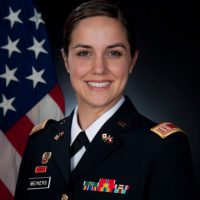
Selina Meiners is the Director for Communications for the Veterans Health Administration’s Office of Clinical Services. The Veterans Health Administration is America’s largest integrated health care system, providing care at 1,293 health care facilities, including 171 medical centers and 1,112 outpatient sites of care of varying complexity, serving 9 million enrolled Veterans each year. Selina joined the Office of Clinical Services from the VHA Office of the Chief of Staff where she served as the Deputy Chief of Staff’s Executive Assistant. She also previously served as Public Affairs Officer for the Bay Pines VA Healthcare System in Bay Pines, Florida, and in Washington, D.C., as a Public Affairs Specialist in the Veterans Benefits Administration’s Office of Corporate Communications and at the National Institute of Food and Agriculture (NIFA). NIFA is an agency within the U.S. Department of Agriculture focused on addressing societal challenges through research, education, and extension. For more than 10 years, Selina served on active duty as an officer in the U.S. Army. She was an instructor in the Public Affairs Leadership Department at the Defense Information School (DINFOS) from 2012 to 2016. DINFOS, located on Fort Meade, Maryland, is the Department of Defense’s (DOD) premier training institution for military, DOD civilians, international military and interagency students in the field of public affairs and visual information. From 2007 to 2012, Selina served in leadership positions within 2nd Brigade, 1st Infantry Division, a multifunctional, deployable combat arms unit at Fort Riley, Kansas. While with the division, Selina completed two year-long deployments to Baghdad, Iraq, in support of Operation Iraqi Freedom and Operation New Dawn. She was the brigade Public Affairs Officer, responsible for the organization’s internal, external and community relations activities. She also served as a Signal Network Support Company Manager, providing customer service to more than 3,000 users with tactical communications networks integral to combat operations. Selina graduated with a Master of Professional Studies in Public Relations and Corporate Communications from Georgetown University in May of 2019. She earned a Master of Science in Administration and an Education Specialist degree in Curriculum and Instruction from the University of West Florida. She also holds a Bachelor of Arts in Broadcast Journalism from the University of Central Florida. In her spare time, Selina loves to be on the beach in Florida, read fiction and work out at Orange Theory. She is also a certified personal trainer. Connect with Selina on LinkedIn.
